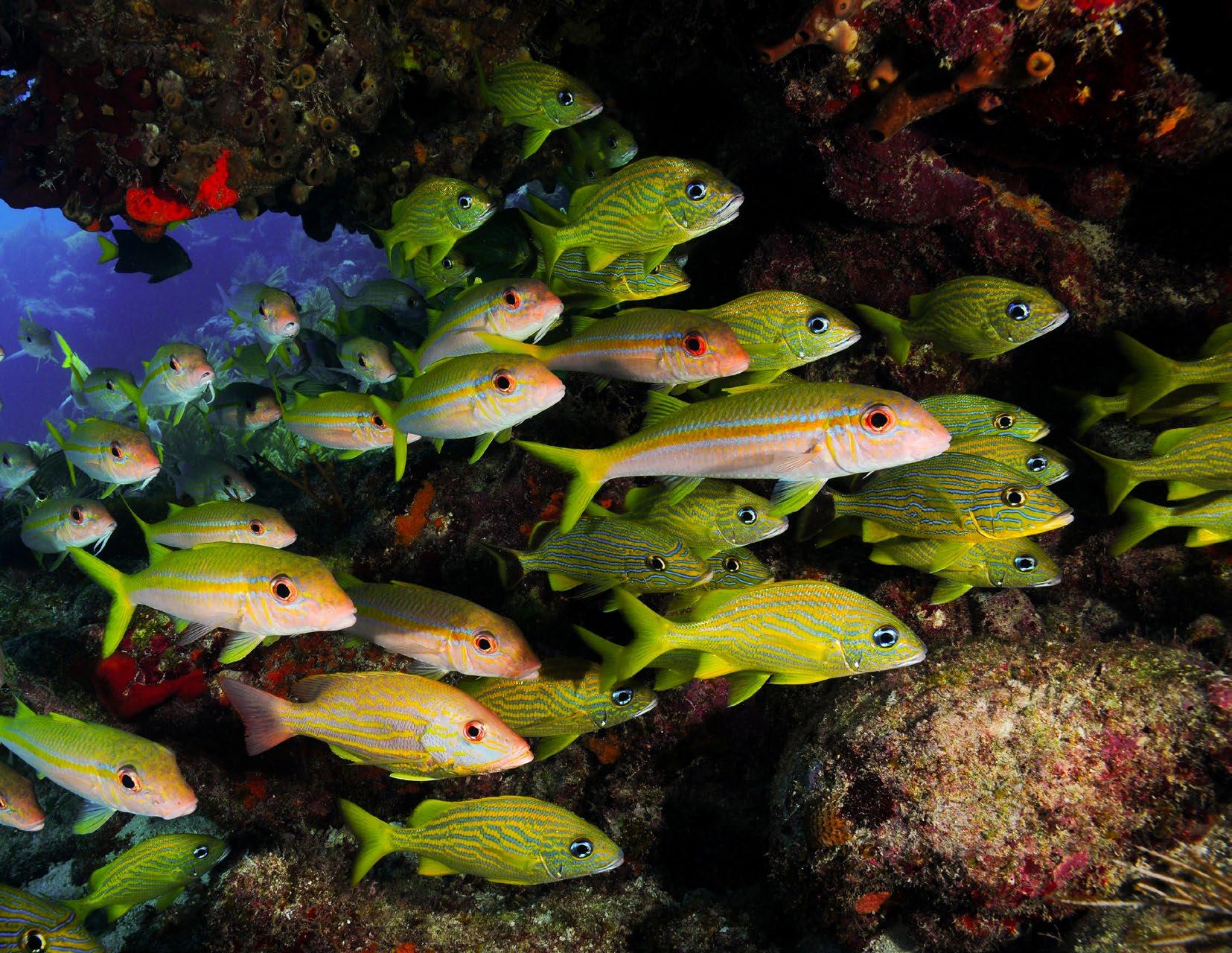

Annual Report 2024-2025*
This annual report reflects the combined operations of all Oceana organizations, including Oceana, Inc. and our affiliates, as well as information concerning Oceana Canada, an independent charity. Oceana campaigns in North, South, and Central America; Asia; and Europe. Oceana is the largest international advocacy organization dedicated solely to ocean conservation. We are rebuilding abundant and biodiverse oceans by winning sciencebased policies in countries that control over one-quarter of the world’s wild fish catch. With more than 325 victories that stop overfishing, habitat destruction, oil and plastic pollution, and the killing of threatened species like turtles, whales, and sharks, Oceana’s campaigns are delivering results to restore our oceans, support coastal communities, and protect the climate. Nearly nine million members, e-activists, and social media followers support Oceana internationally. Together, we can save the oceans and help feed the world. To learn more, please visit Oceana.org.
This report features campaign updates from July 2024 to June 2025 and financial information for the calendar year 2024. * A whale glides through the waters of Chile’s Humboldt Archipelago.
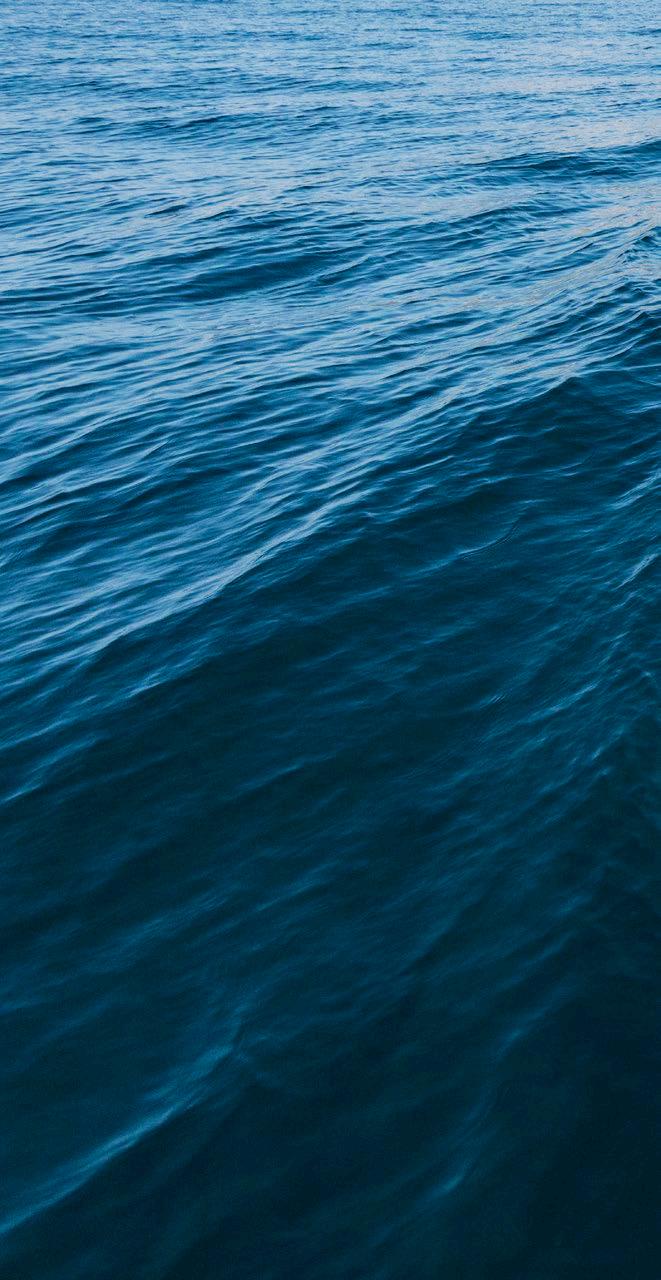
Cover photo © Oceana/Carlos Minguell
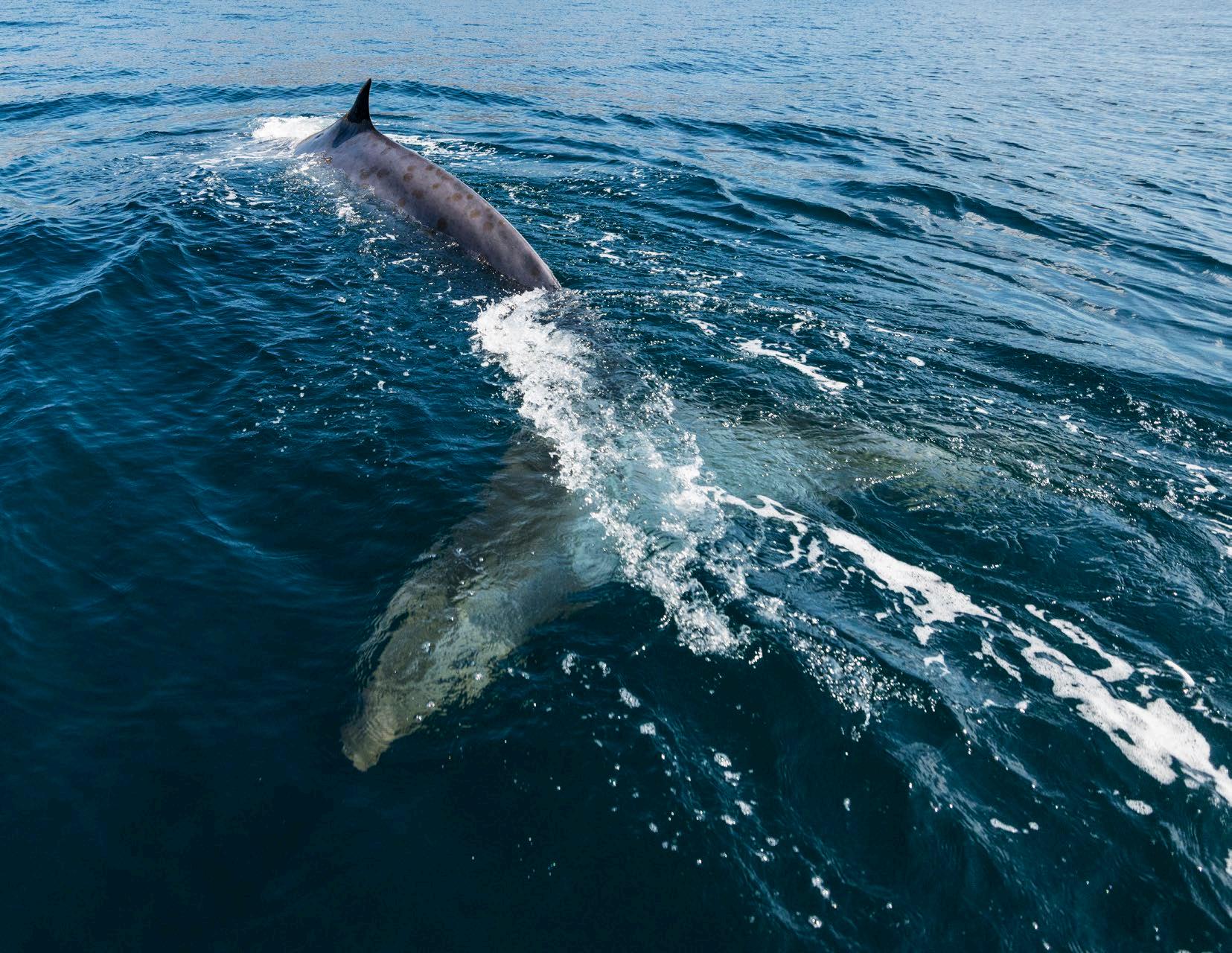
Letter From The CEO

Since Oceana’s founding, we and our allies have successfully protected over 10 million square kilometers of ocean — an area larger than Canada. This global feat is the result of specific, targeted campaigns aimed at changing policies in the countries where we work.
From campaigning to protect endangered species like the North Atlantic right whale, to preserving coastal livelihoods, to holding corporate polluters accountable for their ocean and climate impacts, we’ve mobilized individuals and communities to win over 325 policy victories that help the oceans and those who depend on them.
But passing a policy isn’t always the end of the story. As we target the largest threats facing
the oceans — like plastic pollution, overfishing, and offshore drilling, to name a few — these campaigns put us head-to-head with powerful industries and groups. Sometimes our greatest victories trigger the biggest backlash from those who benefit from the status quo.
In the Philippines, for example, we successfully campaigned for commercial fishing vessels to be equipped with required tracking systems. This improved transparency at sea exposes when commercial fishers illegally fish in municipal waters — areas where small-scale fishers are supposed to have preferential access. But this victory is now under threat. A recent court decision would strip away artisanal fishers’ existing rights to fish in municipal waters. Oceana is now appealing the decision and organizing on-the-ground with fishing communities to push back.
Meanwhile in the U.S., Oceana and our allies are standing up to the new administration’s attempts to dismantle hard-fought, bipartisan protections that safeguard coastal communities and keep the waters off the East Coast, West Coast, eastern Gulf of Mexico, and areas around Alaska off limits to new offshore oil and gas drilling.
These are two cases out of more than a dozen in which Oceana is defending ocean protections around the world. Our campaigners and legal teams work hand-in-hand to ensure that change is protected in the long term.
We’ve also seen victories create powerful ripple effects that lead to larger impact. Following our campaign targeting Amazon, the world’s largest online retailer, the company removed plastic air pillows from deliveries in North America — and then did so globally. Most recently, Amazon announced it reduced its single-use plastic packaging by 16.4% worldwide in just one year: a win for the oceans and the climate.
In Mexico, we successfully campaigned in early 2024 for the creation of Bajos del Norte National Park, which covers more than 13,000 square kilometers (over 5,000 square miles) of ocean. By the end of the year, Mexico created an even larger protected area, the Southern Gulf of Mexico Reefs National Park, connecting existing marine parks to form a conservation corridor. These wins not only preserve marine life, but also the livelihoods of fishers who depend on healthy, abundant oceans.
As we look ahead, we’re focused on protecting fish in places where local communities need them the most. We plan to expand our efforts to Ghana, working alongside coastal communities to rebuild fish populations that provide vital nutrition and livelihoods. And we’re raising funds to support campaign teams in Senegal and Malaysia: countries where artisanal fishing is important culturally and economically.
This is an exciting — and urgent — time to support the oceans. I hope the following pages inspire you. Every victory is made possible thanks to your generosity. With your support, we will continue to protect and restore the oceans for generations to come.
With deep appreciation,

James F. Simon CEO, Oceana
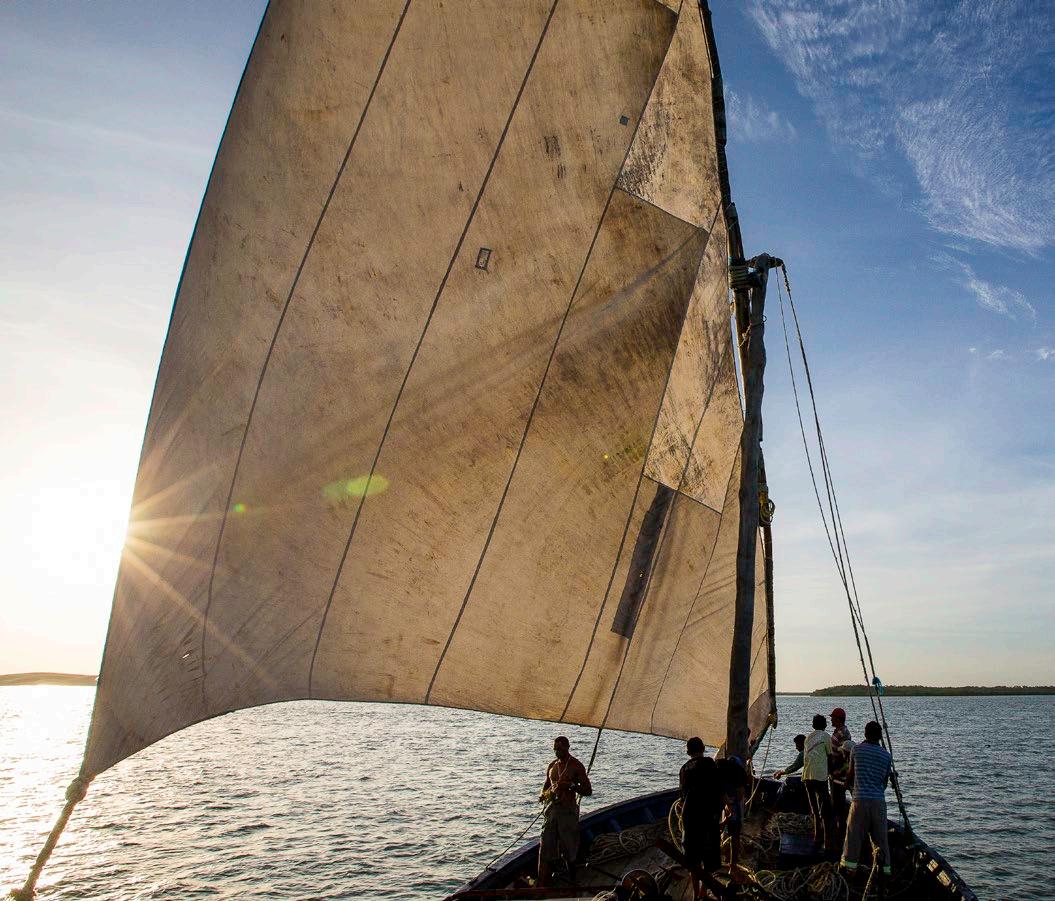
© Oceana/Bento Viana
Oceana’s Approach
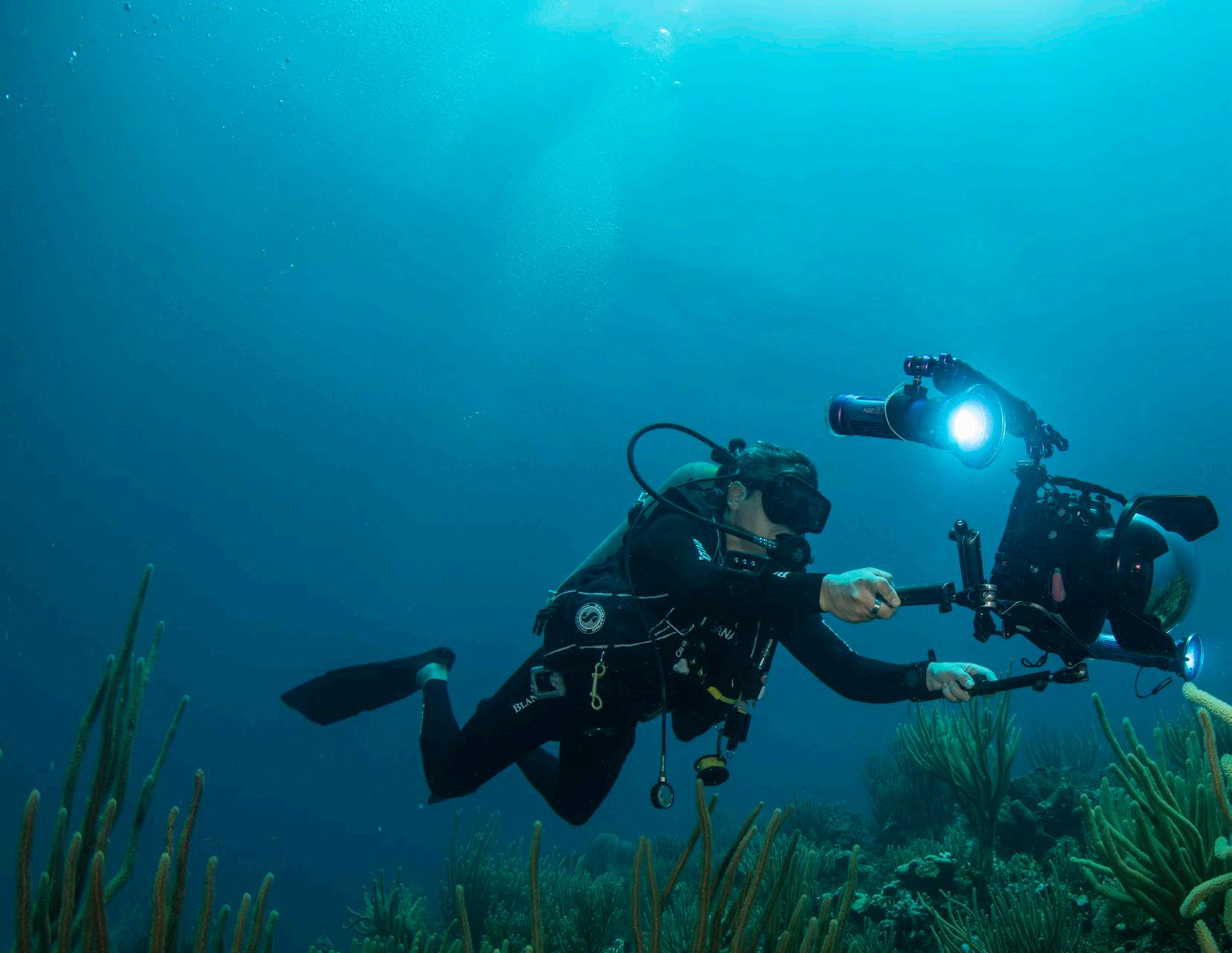
Oceana campaigns to win policy victories that restore abundance and biodiversity in the world’s oceans, which cover two-thirds of our planet and play a key role in mitigating climate change. Healthy marine ecosystems full of life support fisheries that can feed more than a billion people a healthy seafood meal every day, forever. We can preserve the oceans for future generations while protecting a critical food source — wild seafood — that requires no fresh water or arable land to produce, yields minimal greenhouse gas emissions, and provides an affordable, healthy protein to people who depend on it around the world. Just 29 countries and the European Union are responsible for nearly 90% of the global fish catch. We can — on a country-by-country basis — win policy victories that help protect and restore the oceans worldwide. Oceana campaigns alongside coastal communities for policies that are based in science and rely on five proven strategies that help restore healthy oceans.
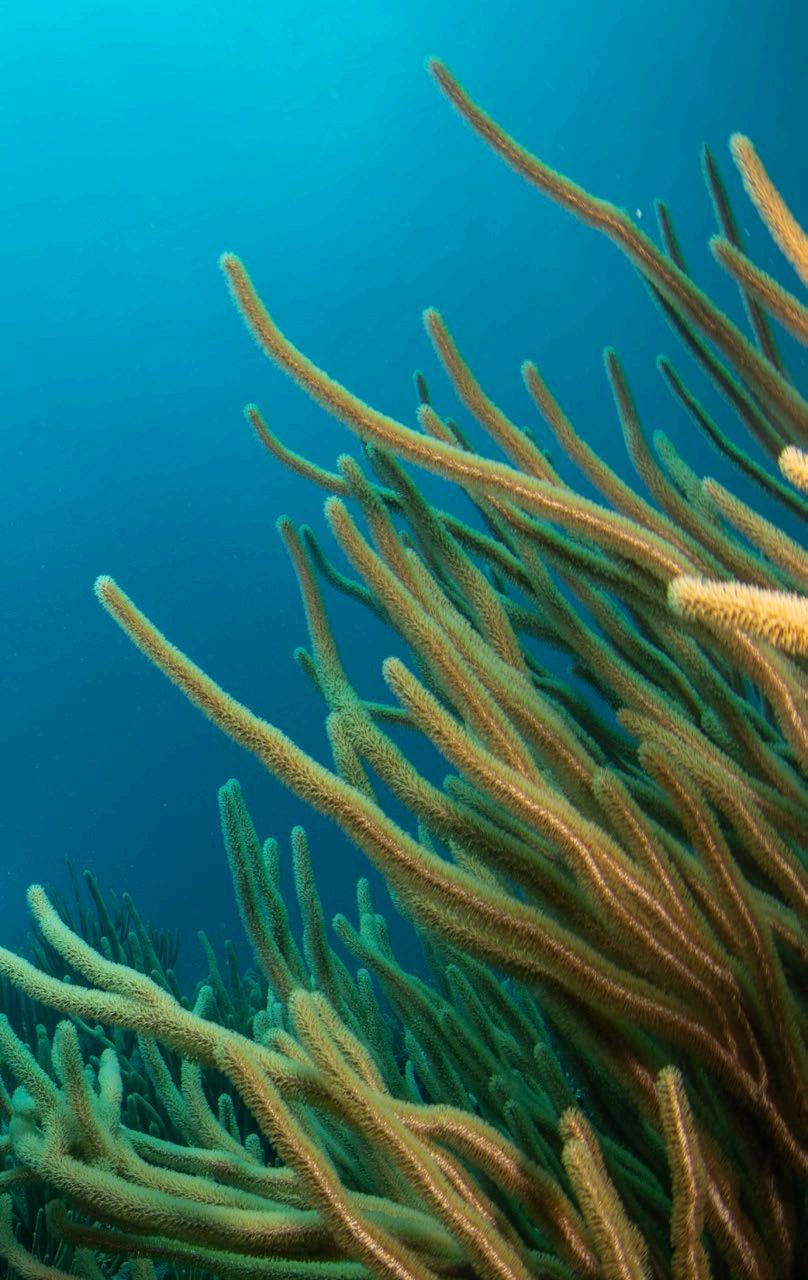
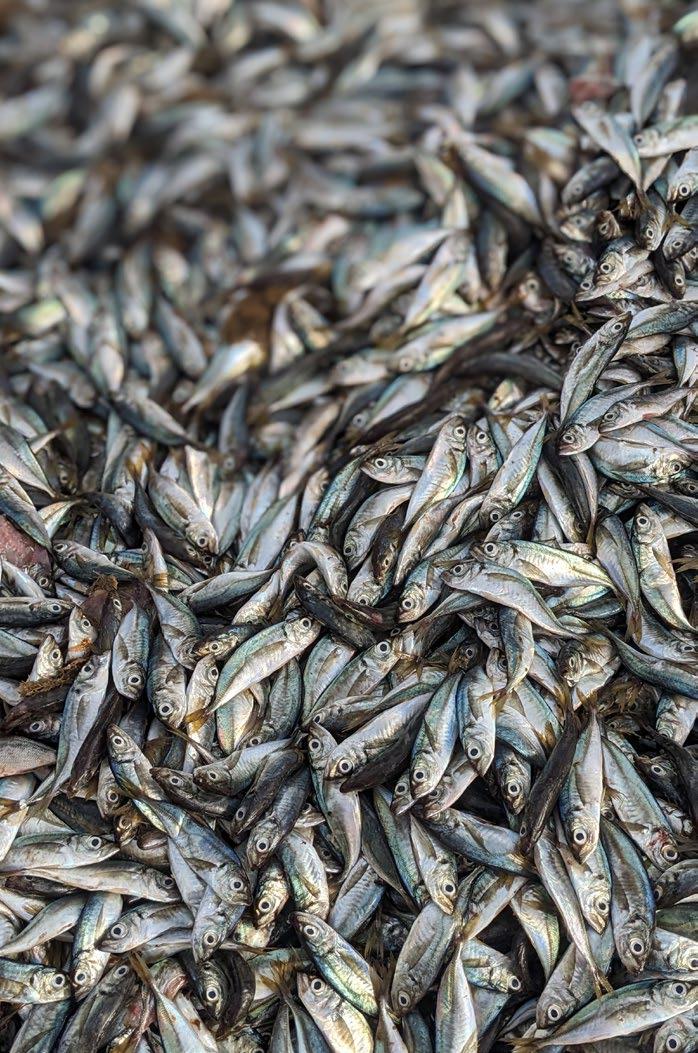
Stop Overfishing
Half of global fisheries are overfished, and another 40% are fished to maximum levels. When fisheries are properly managed, the fish come back.
OUR IMPACT: Oceana campaigns around the world to implement fisheries management plans and catch limits to stop overfishing and rebuild ocean abundance. In the United States, the European Union, the United Kingdom, and Chile, the number of fisheries with management plans has increased by 67% since 2000, and the number of fisheries with catch limits has increased by 77%.
© Oceana/Tess Geers
Protect Habitat
Stopping destructive fishing methods like bottom trawling and protecting vulnerable ecosystems will preserve places that are crucial to both marine animals and local fishing communities.
OUR IMPACT: Oceana mounts expeditions and collects scientific data to help win protections for key ocean habitats. In 2000, less than 1% of the waters off the countries where Oceana currently operates were protected. Today, about 19% of these waters are now protected.
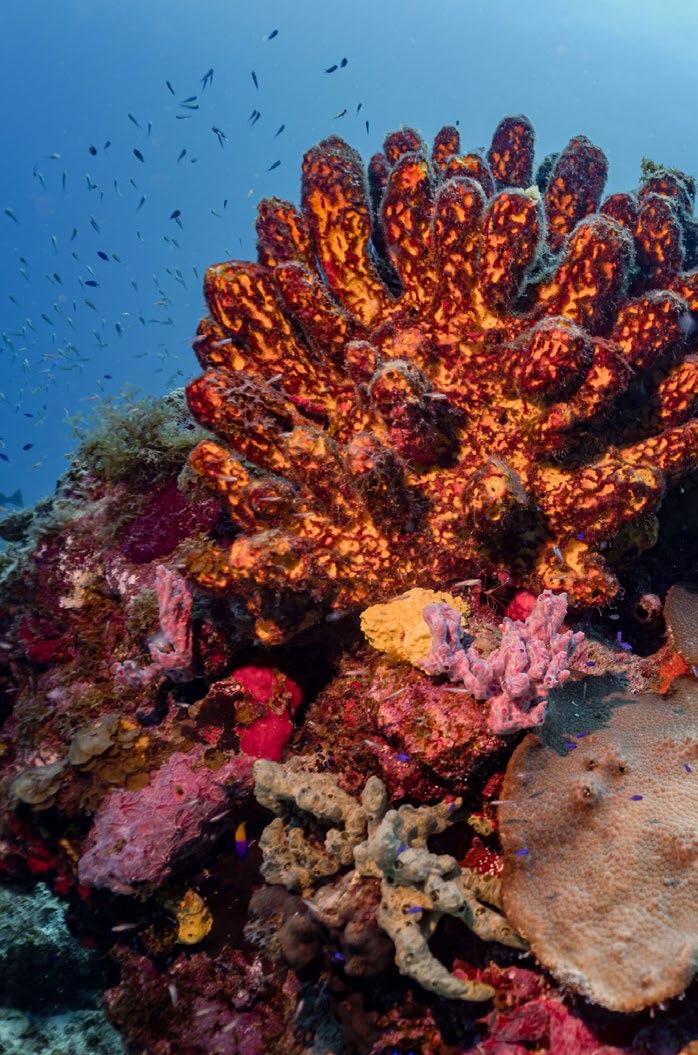
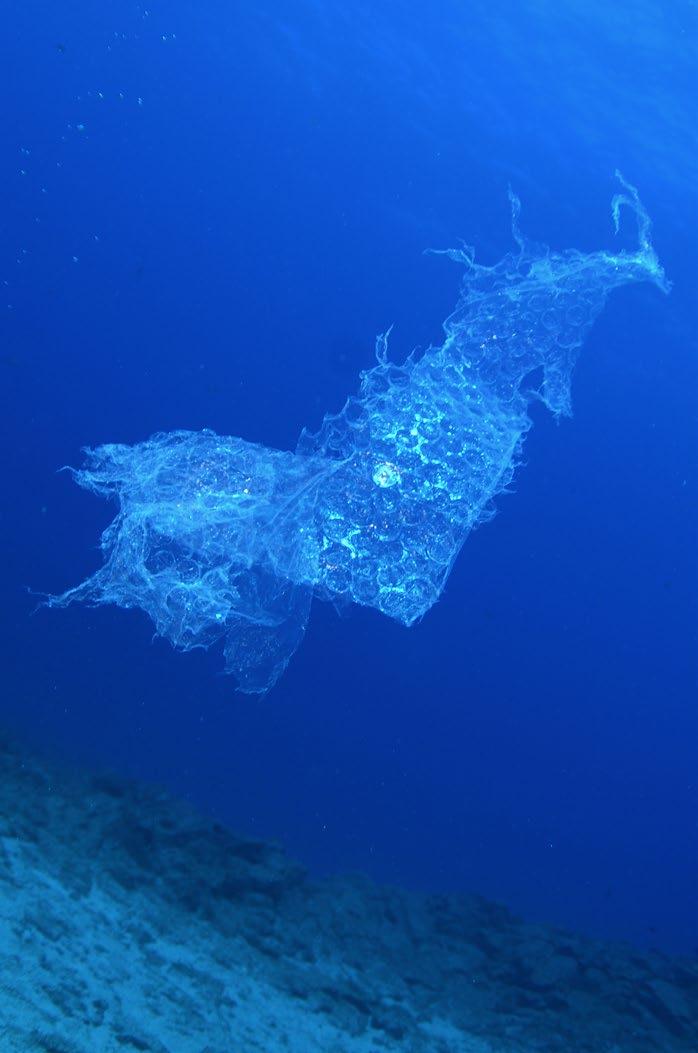
Curb Pollution
Pollution undermines the health of ocean ecosystems and accelerates climate change.
OUR IMPACT: Oceana fights offshore drilling to help prevent oil spills and reduce greenhouse gas emissions. Over 120,000 kilometers (75,000 miles) of coastline in the United States and Belize are currently protected from the threat of offshore drilling, covering more than 6.6 million square kilometers (2.5 million square miles) of ocean.
Oceana and our allies have also passed policies that would eliminate the use of more than 1.46 million metric tons of unnecessary single-use plastic each year by 2033.
© Oceana/Nelly Quijano
© Oceana/Enrique Talledo
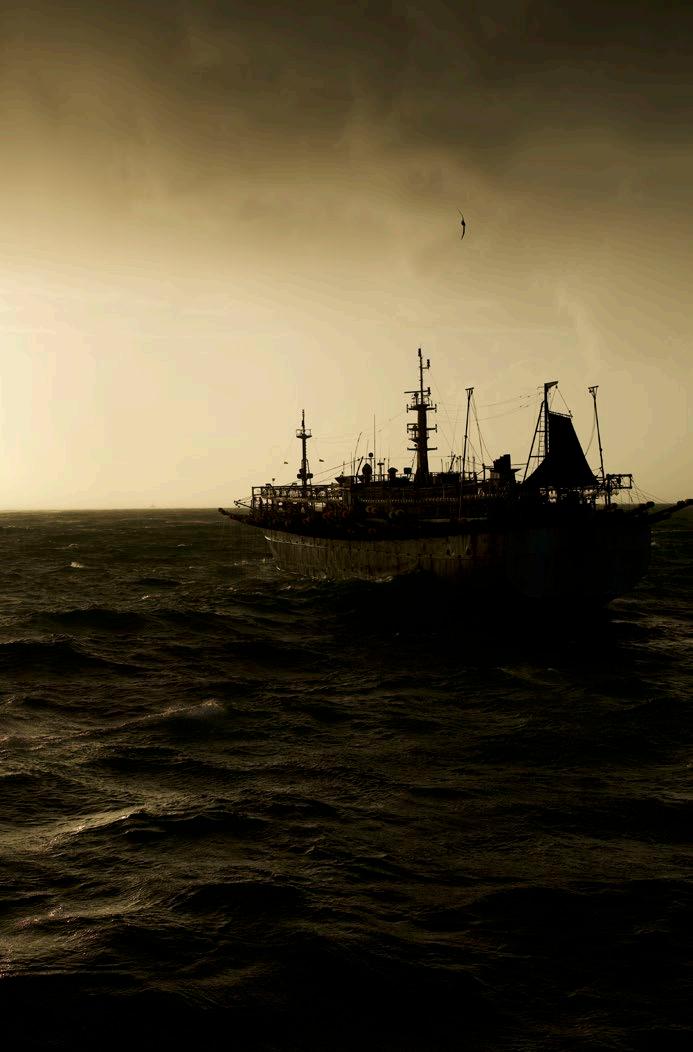
Increase Transparency
Timely and accurate data is needed to improve fishing policies and to deter illegal conduct at sea, which threatens marine life, human rights, and food security.
OUR IMPACT: Oceana campaigns have successfully required large commercial fishing vessels to be publicly trackable by satellite and expanded boat-to-plate traceability of seafood. Around 80,000 commercial fishing vessels — about one-third of the world’s industrial fishing fleet — can now be tracked on the Global Fishing Watch map, created by Oceana in partnership with SkyTruth and Google, in near-real time, for free.
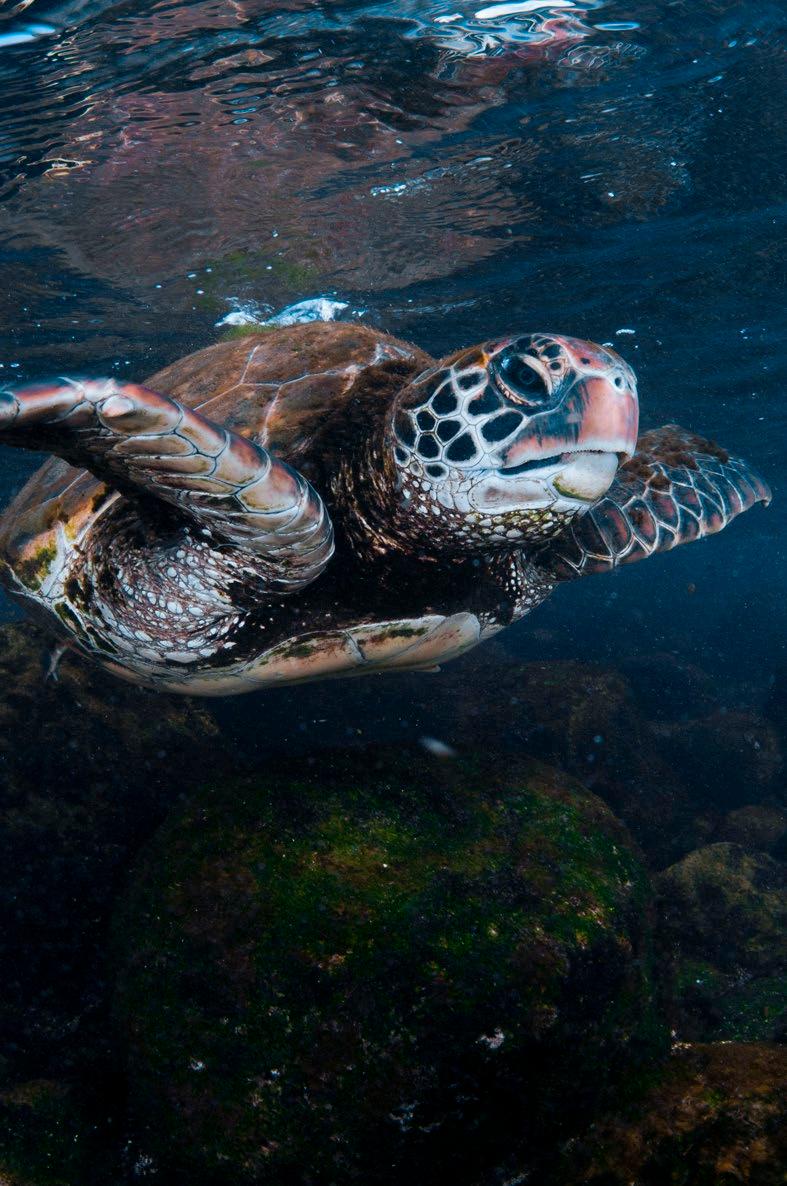
Protect Species
Marine animals are at risk, whether from speeding vessels, entanglement in fishing gear, or accidental capture in commercial fisheries. Each year, fishing gear alone kills or injures millions of non-targeted animals, including sharks, whales, dolphins, fish, and sea turtles.
OUR IMPACT: Oceana campaigns to protect species threatened with extinction from their top threats. Oceana and our allies have won more than 75 policy victories to protect threatened species including sharks, sea turtles, and whales.
© The Outlaw Ocean Project/Ed Ou © Oceana/Eduardo Sorensen
How We Work
The good news is that we can restore the oceans to their former abundance. For more than 20 years, Oceana and our allies have won more than 325 policy victories, and we have the tools to continue winning on behalf of our oceans and the hundreds of millions of people who rely on them. We are:
Campaign-Driven
We strategically create policy campaigns that make measurable progress toward our mission of protecting and restoring the world’s oceans. Our campaigns are specific, targeted, and designed to be won in a three- to five-year timeframe.
Fact-Based
Our advocacy relies on science to help us understand the ocean’s threats and identify practical, effective solutions. We conduct research on a variety of issues that affect marine environments and species, from illegal and destructive fishing to plastic pollution and offshore drilling.
Expedition-Powered
We recognize that getting on the water — alongside scientists, divers, photographers, campaigners, and artisanal fisher allies — helps us bring these important marine places to life and make a stronger case for their protection. Oceana’s expeditions have powered our campaigns and resulted in victories across the globe.
Multi-Disciplinary
Oceana’s campaign teams consist of scientists, lawyers, advocates, communicators, and grassroots organizers, who develop innovative strategies and achieve tangible results for the oceans.
People-Focused
Oceana’s work is supported by our allies, including artisanal fishers around the world who power our campaigns to increase ocean abundance and support coastal livelihoods. Oceana has a global base of nearly nine million supporters, including 1.5 million Wavemakers, who use their voices to protect and restore the oceans.
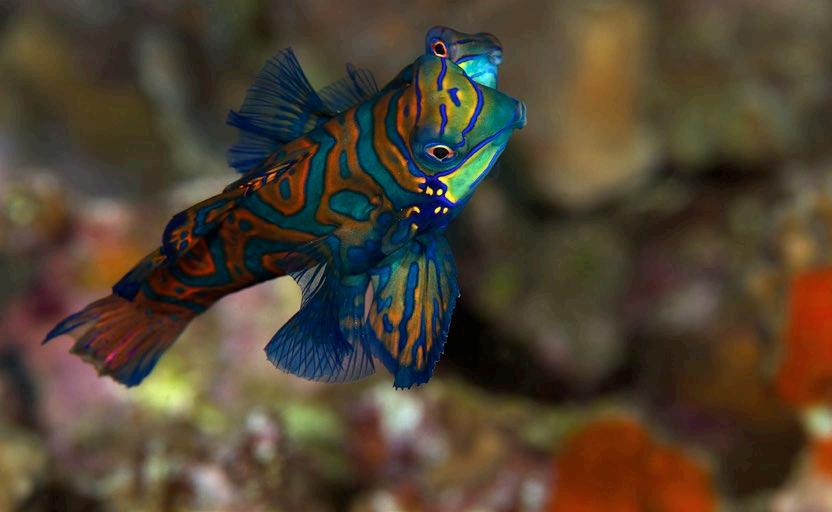
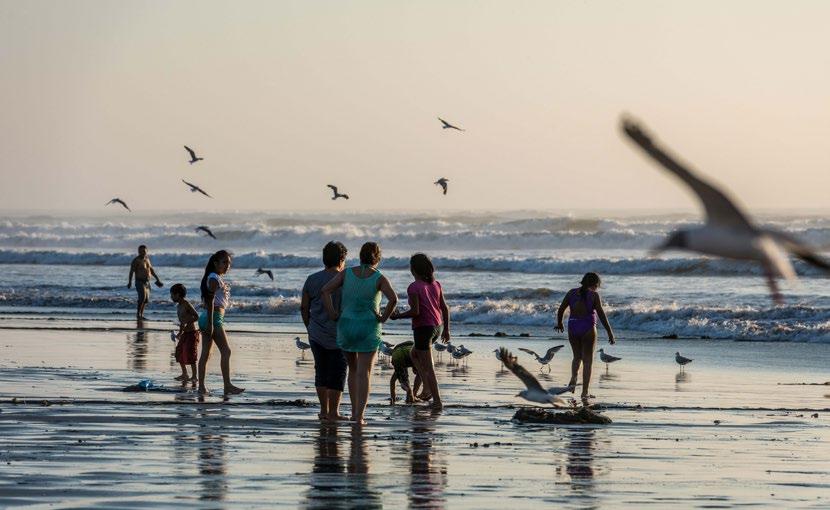
© Oceana/Andre Baertschi
Swimmers enjoy Pimentel Beach in Northern Peru.
© Oceana/Steve De Neef
Mandarin fish spotted in the Philippines.
2024-2025
Victories
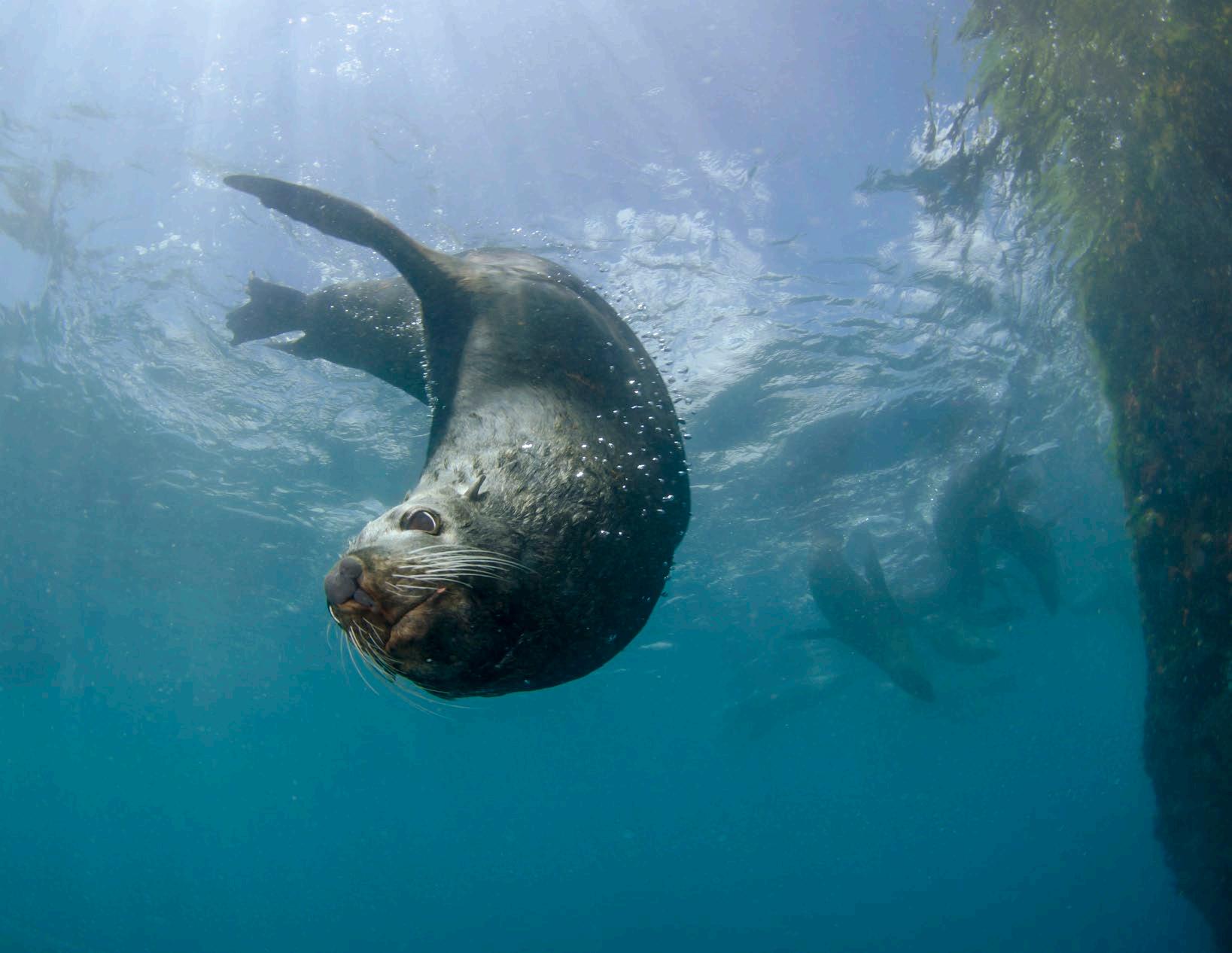
Oceana leverages law, science, grassroots activism, advocacy, and strategic communications to win policy changes that add up to global impact. With the help of our allies, Oceana has won more than 325 victories that restore ocean abundance. Here is what we accomplished from July 2024 to June 2025.
© Oceana/Eduardo Sorensen

Protecting Habitat Victories
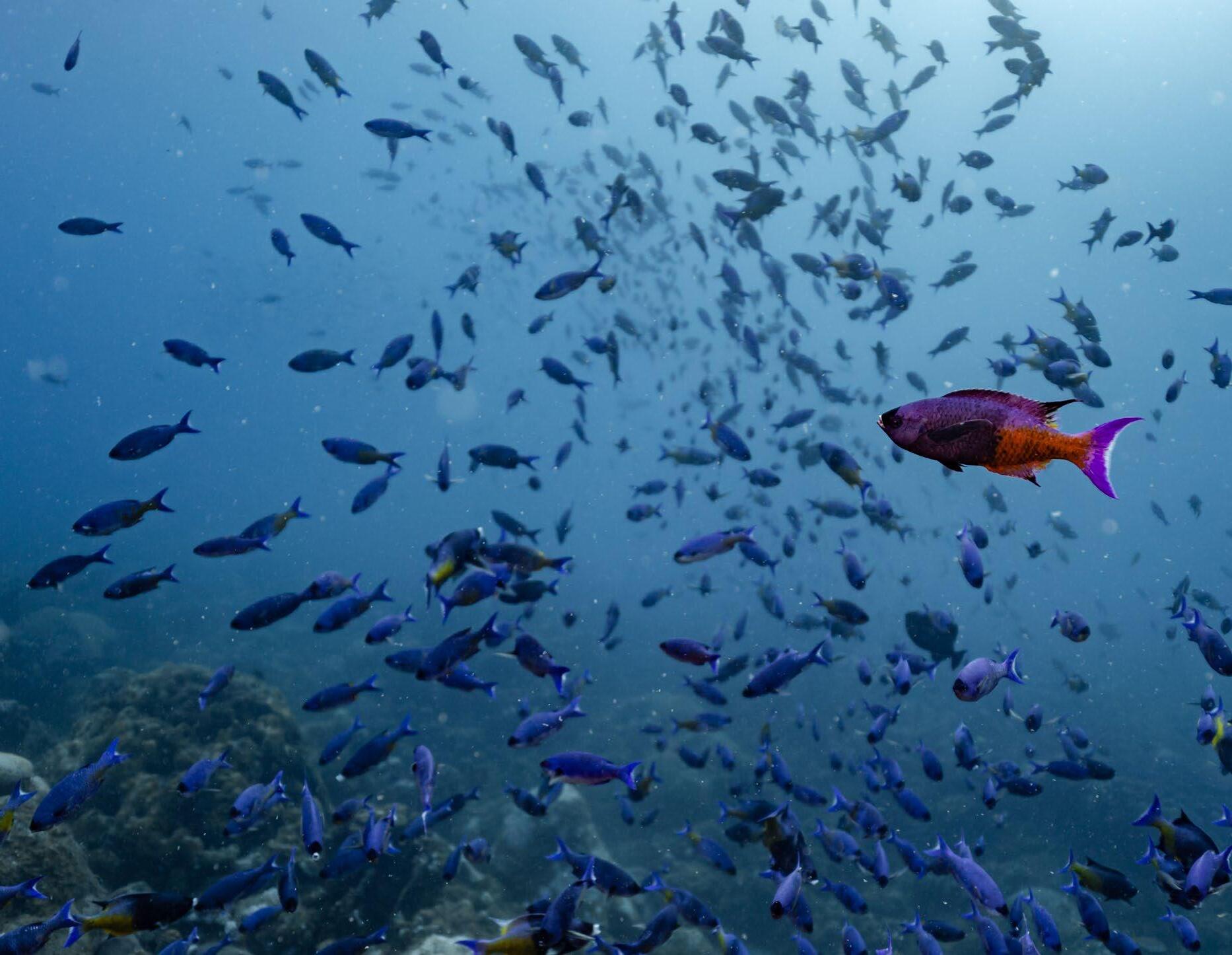
Mexico Creates Largest Protected Area in Gulf of Mexico
SEPTEMBER 2024 - Mexico created the Southern Gulf of Mexico Reefs National Park off the coast of Campeche and Yucatán. Covering more than 40,000 square kilometers (15,000 square miles) of ocean, it is now the largest marine protected area in the Gulf of Mexico and has the highest level of conservation protection in the country. The new national park connects two existing parks — Alacranes Reef National Park and Bajos del Norte National Park — creating a conservation corridor that will protect thousands of marine species. The protected area will also benefit small-scale fishers by creating a refuge for fish to reproduce, increasing their catch.
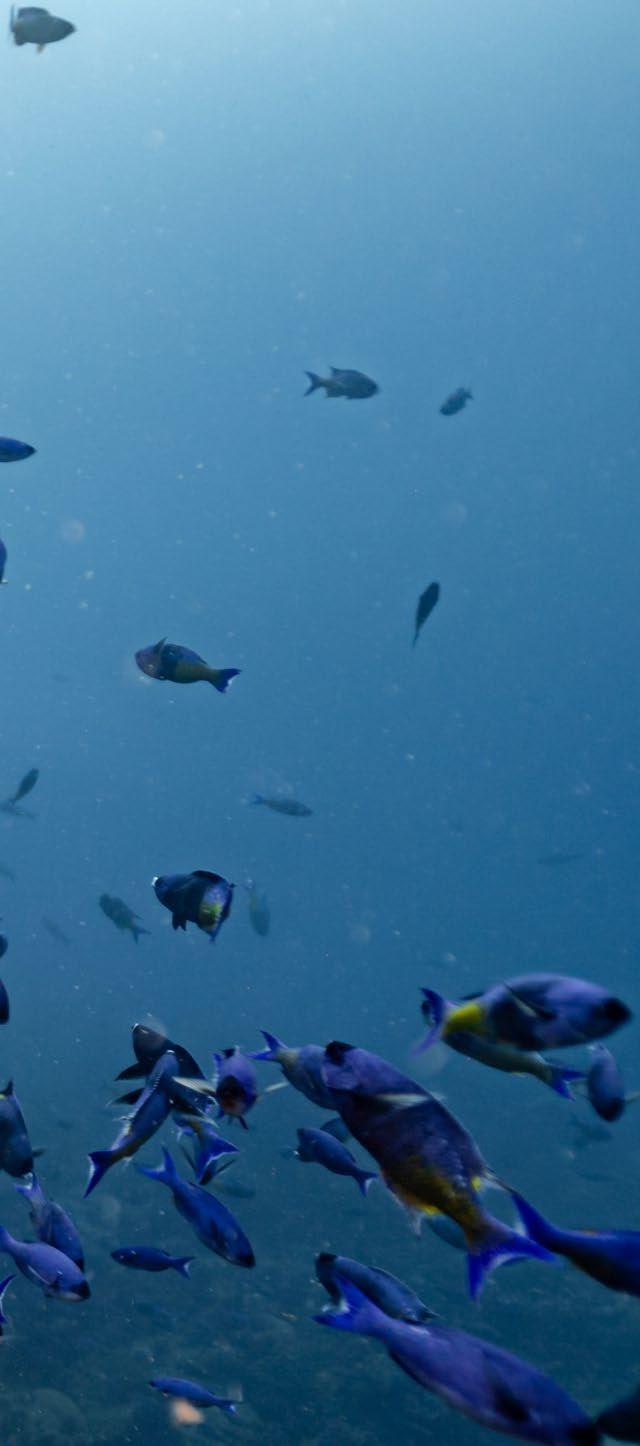
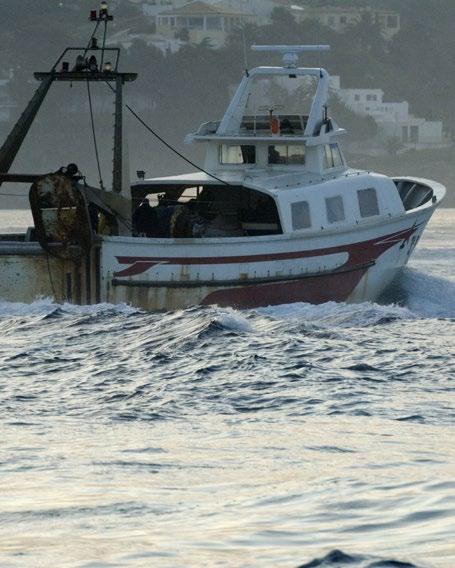
EU Reduces Destructive Bottom Trawling in the Western Mediterranean
DECEMBER 2024 - In the European Union, new 2025 fishing measures will reduce destructive bottom trawling in the Western Mediterranean. The new measures decrease fishing days for trawlers by 66% in Spanish and French waters (Gulf of Lion), and by 38% in Italian and French waters (surrounding Corsica). Oceana has campaigned to reduce fishing in the region, particularly bottom trawling — a destructive form of fishing that clear-cuts the seafloor — to help recover overexploited fish populations.
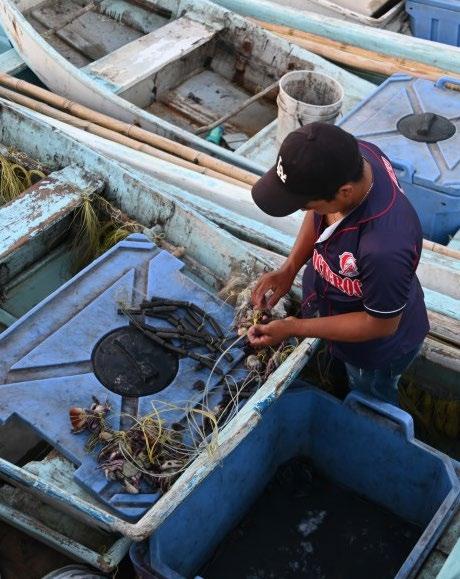
The El Cuyo Fisheries Refugium directly benefits nearly 700 local fishers.
Mexico Establishes Protected Zone for Caribbean Lobster and Local Fishers
FEBRUARY 2025 - Mexico created the El Cuyo Fisheries Refugium to protect the Caribbean spiny lobster, one of the main fisheries of artisanal fishers in El Cuyo, Yucatán. Oceana campaigned for this no-take zone alongside the community’s artisanal fishers, supporting their effort to safeguard the areas where lobsters grow and reproduce and to recover the lobster population.
A trawler in the Port of Roses in the Mediterranean Sea.
© Oceana/Guillermo Perez
© Oceana/Carlos Suárez
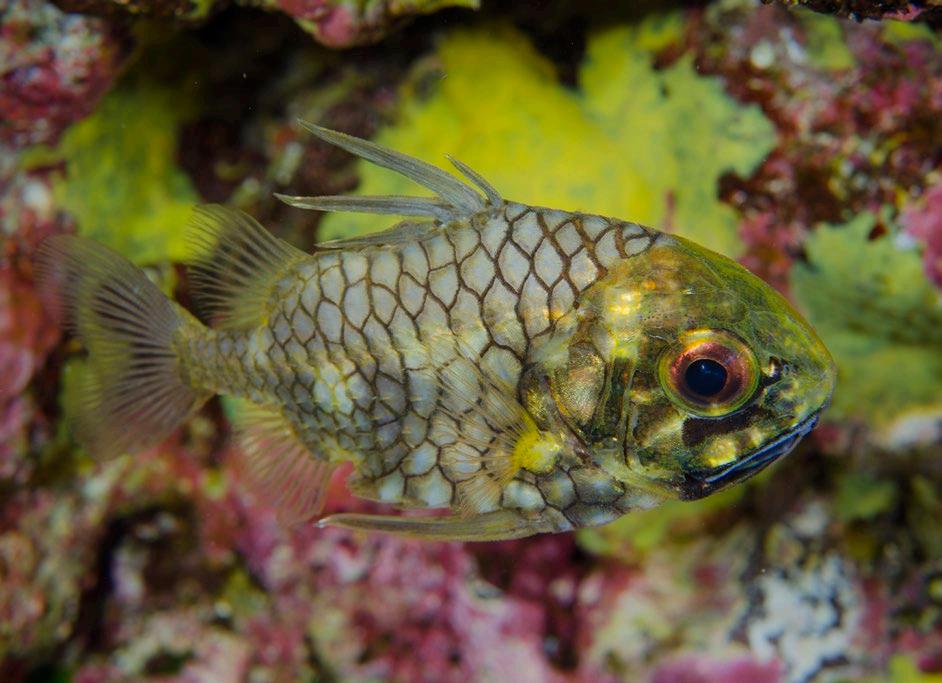
This pinecone fish is only found in Chile’s Desventuradas Islands and surrounding seamounts.
Chile Approves Management Plan for Nazca-Desventuradas Marine Park
JUNE 2025 - Chile approved a management plan for the Nazca-Desventuradas Marine Park in the South Pacific, one of the most pristine ecosystems on the planet. The plan establishes rules for protecting the area, which will help important depleted fish populations recover.
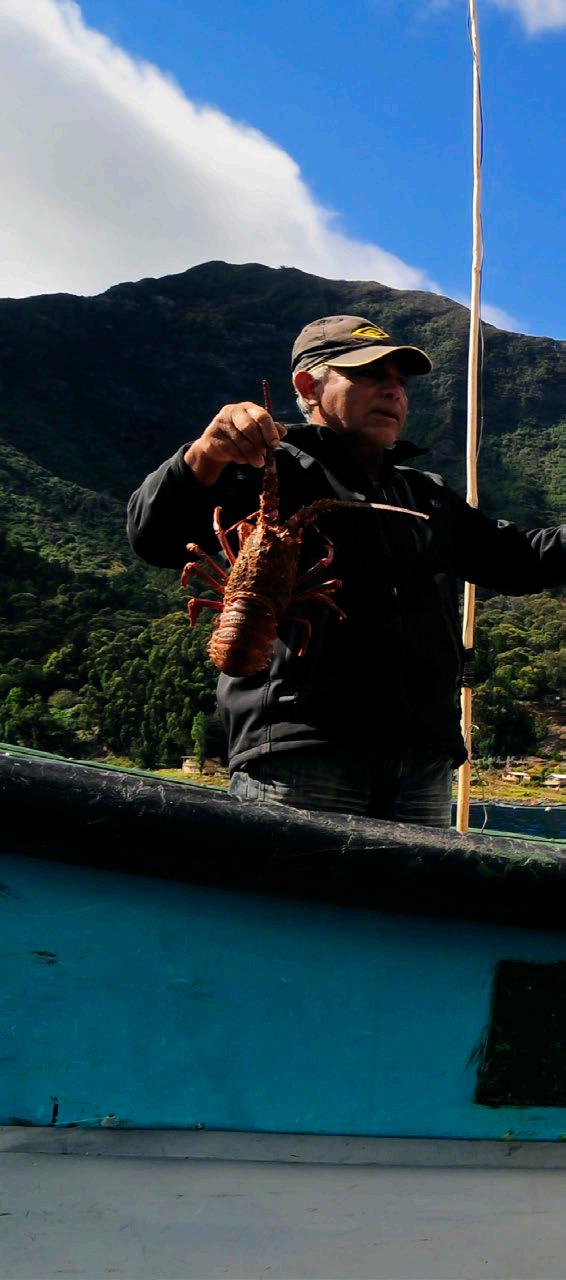
© Oceana/Eduardo Sorensen
© Oceana/Eduardo Sorensen
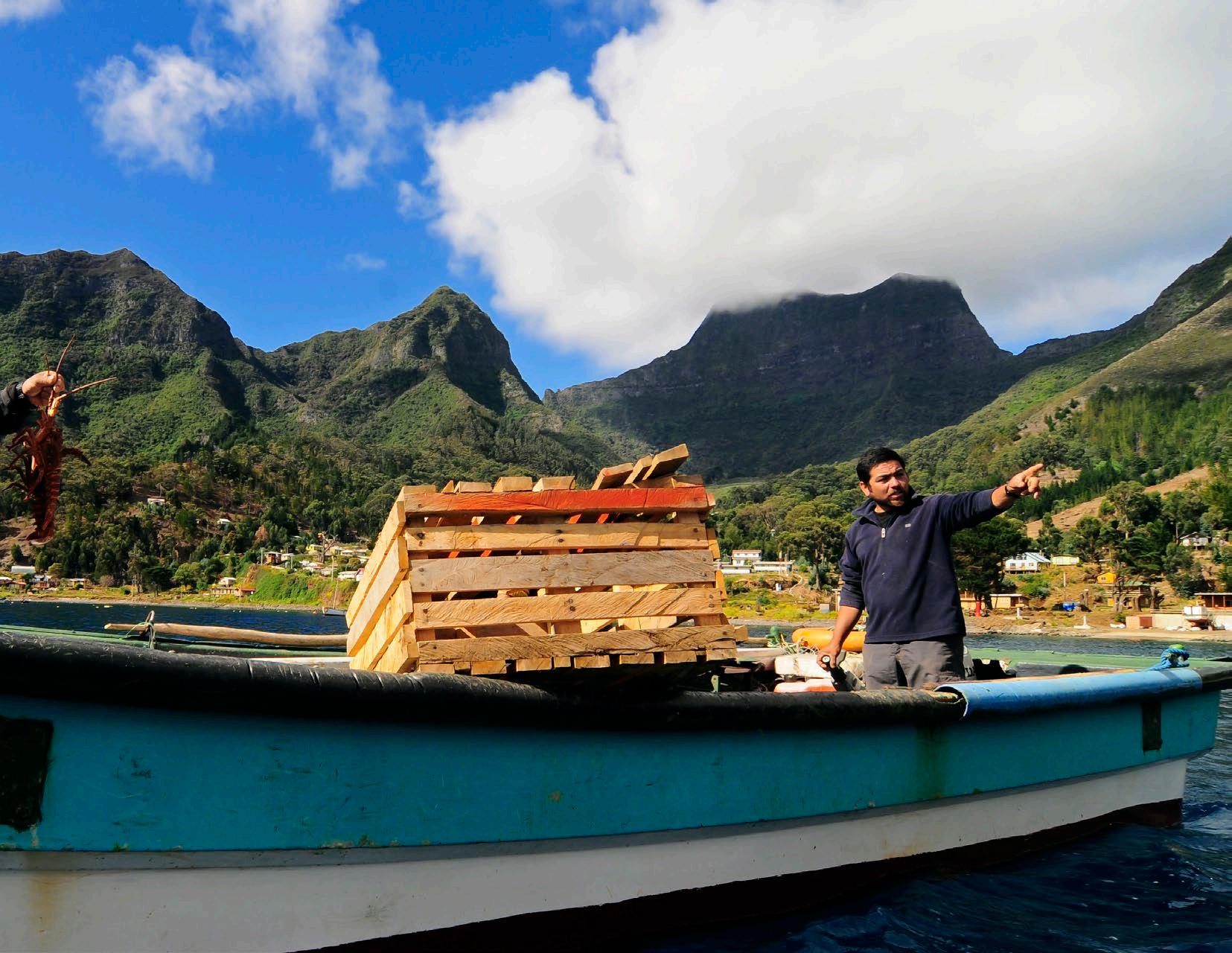

Chile Approves Management Plan for Juan Fernández Marine Protected Area
SEPTEMBER 2024 - The Chilean government approved a management plan for the “Mar de Juan Fernández” multi-use marine protected area, a biodiverse location with many rare marine species found nowhere else in the world. This plan, which was based on input from community members in Juan Fernández, strengthens sustainable local development and ensures the continued responsible fishing of the famous Juan Fernández lobster.
Increasing Transparency Victories
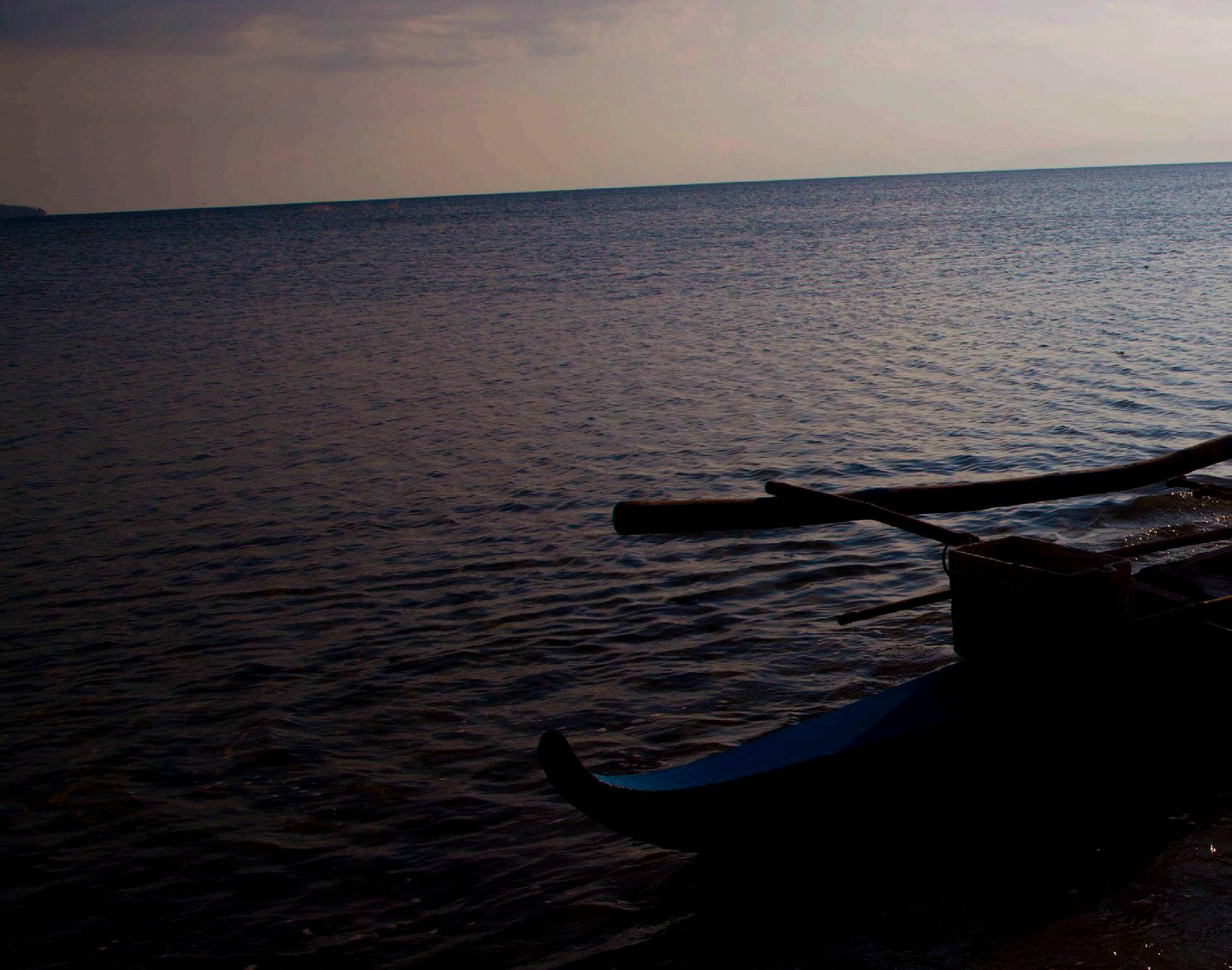
Philippines Installs Tracking Systems on 90% of Commercial Fishing Vessels, Supports Artisanal Fishers
DECEMBER 2024 - The Philippines’ Fisheries Bureau has installed vessel monitoring systems on 90% of the country’s commercial fishing vessels, a move that benefits artisanal fishers. This news follows significant campaigning by Oceana and our allies and a 2023 presidential memorandum that required the full implementation of the tracking systems to be installed in the commercial fishing fleet. These devices help deter illegal fishing by tracking a vessel’s identity, location, and speed, and also help deter commercial fishing vessels from encroaching in municipal waters that are reserved for artisanal fishers. Following this victory, however, a new court decision has threatened artisanal fishers’ preferential access to municipal waters, which Oceana is seeking to appeal and is organizing broad opposition against.
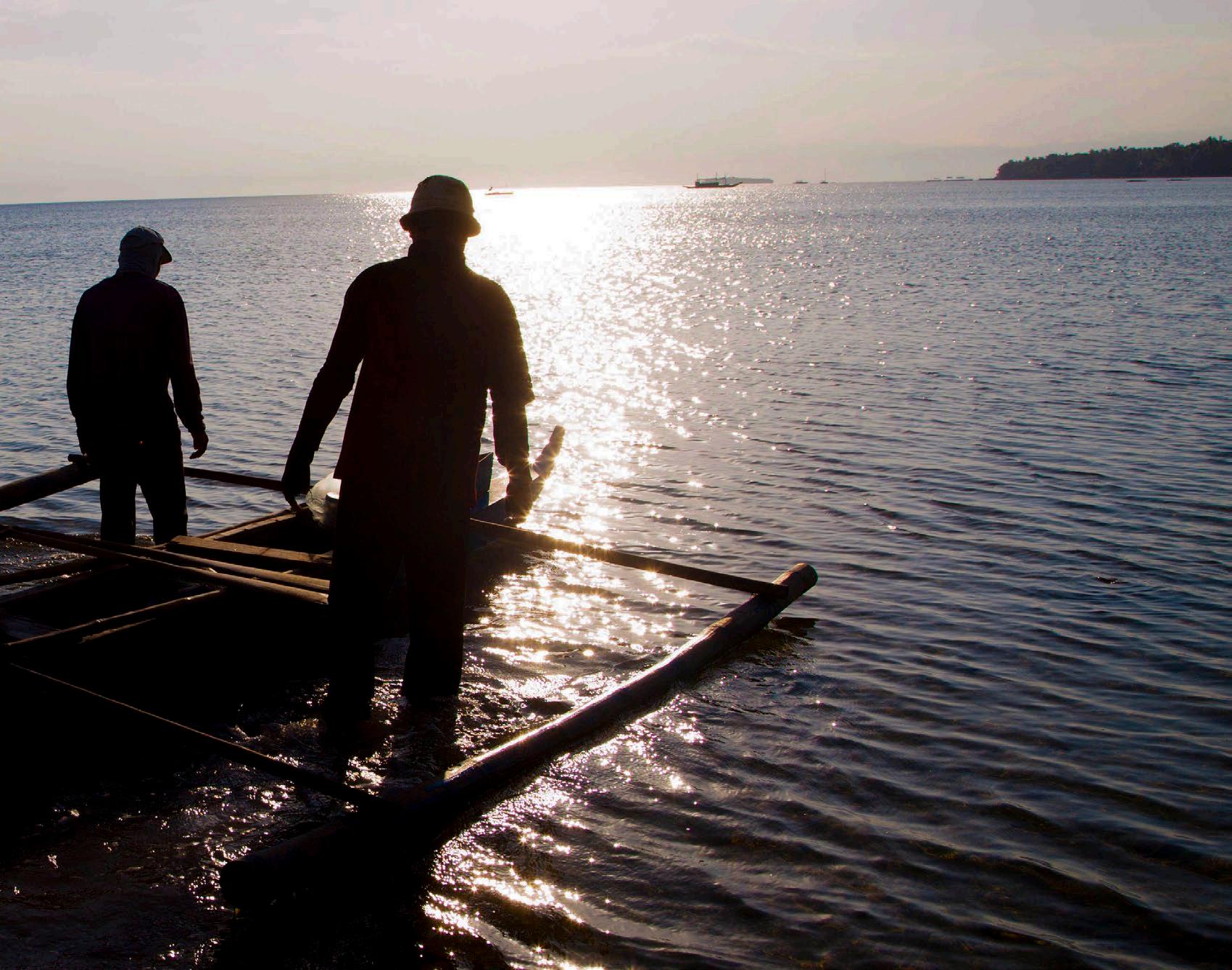
Stopping Overfishing Victories
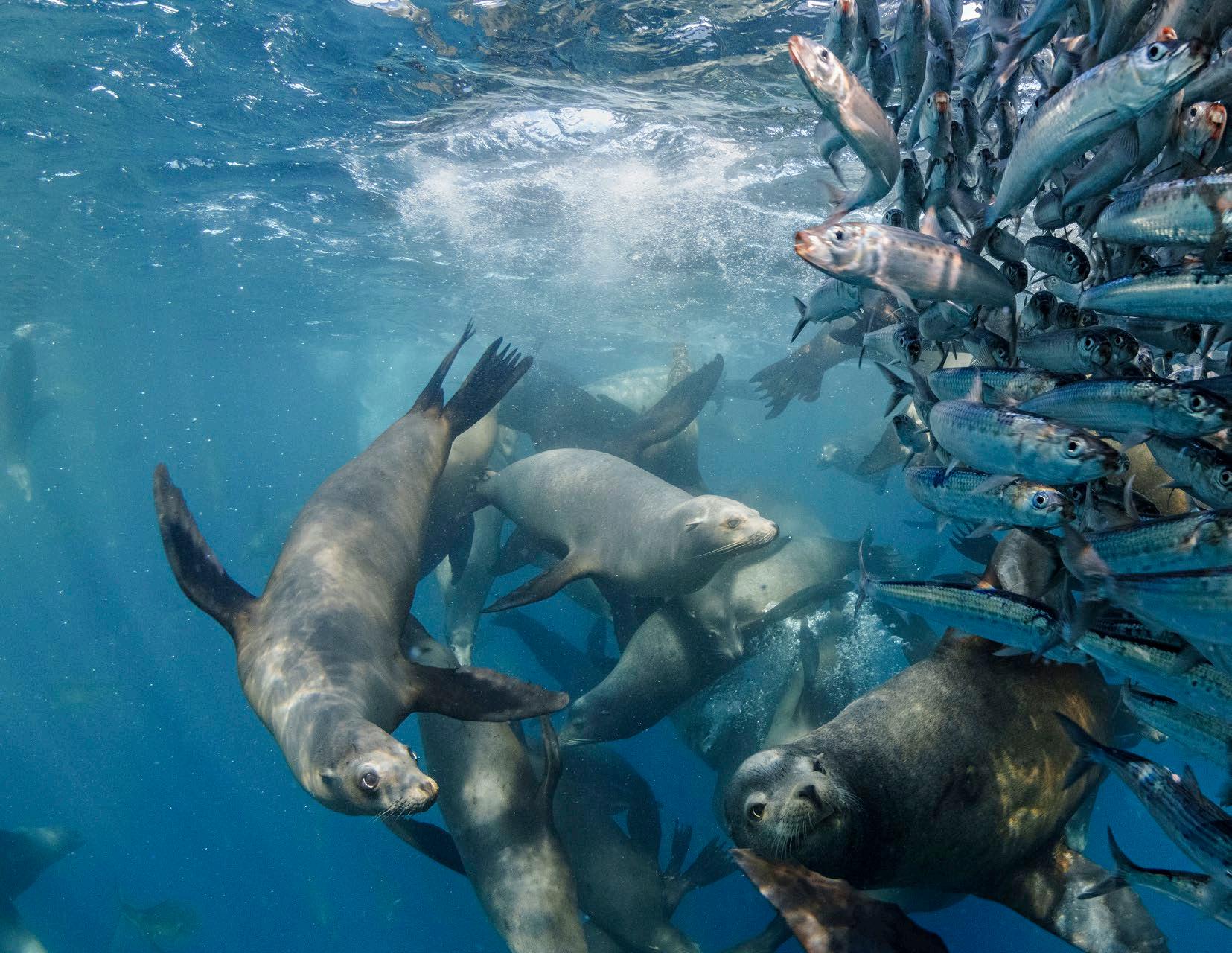
New Rebuilding Plan Finalized for Overfished Pacific Sardines
JUNE 2025 - The United States’ National Marine Fisheries Service finalized a new science-based rebuilding plan to recover the overfished sardine population off the U.S. West Coast. Pacific sardines are an essential food for many Pacific Ocean species, including marine mammals, Chinook salmon, and other commercially important fish. Sardine recovery is critical to help the marine ecosystems and coastal communities that rely on them to thrive. This victory happened after Oceana, represented by Earthjustice, challenged an inadequate plan by the Fisheries Service in federal court and won in 2024. The court required the Fisheries Service to revise its Pacific sardine rebuilding plan to recover the overfished population, which is now expected to happen within 17 years.
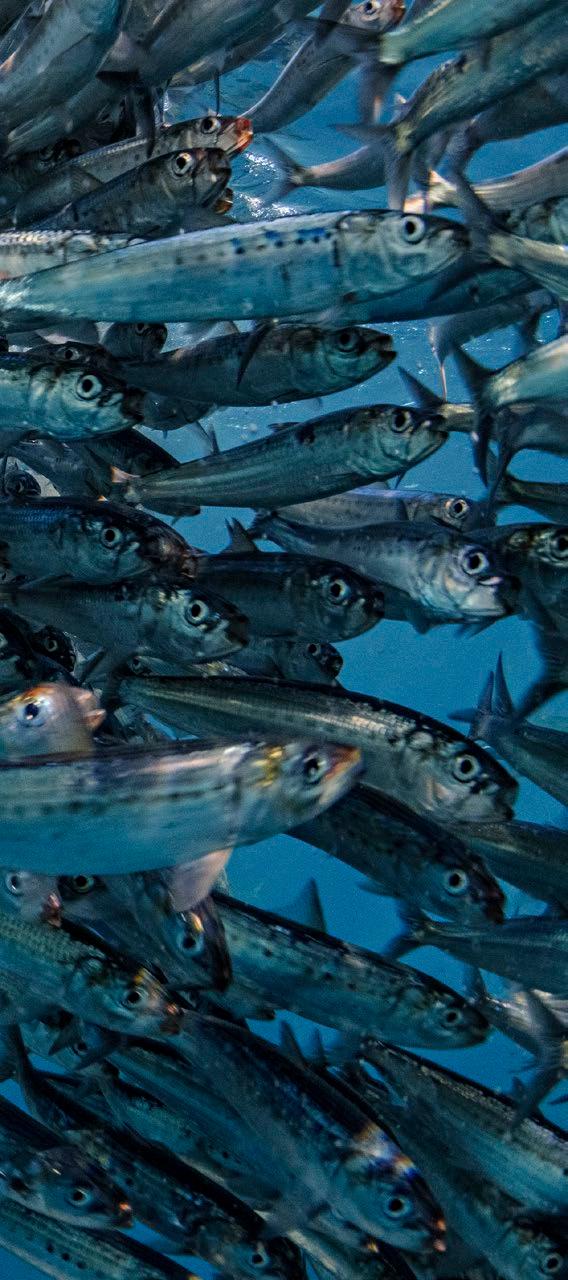
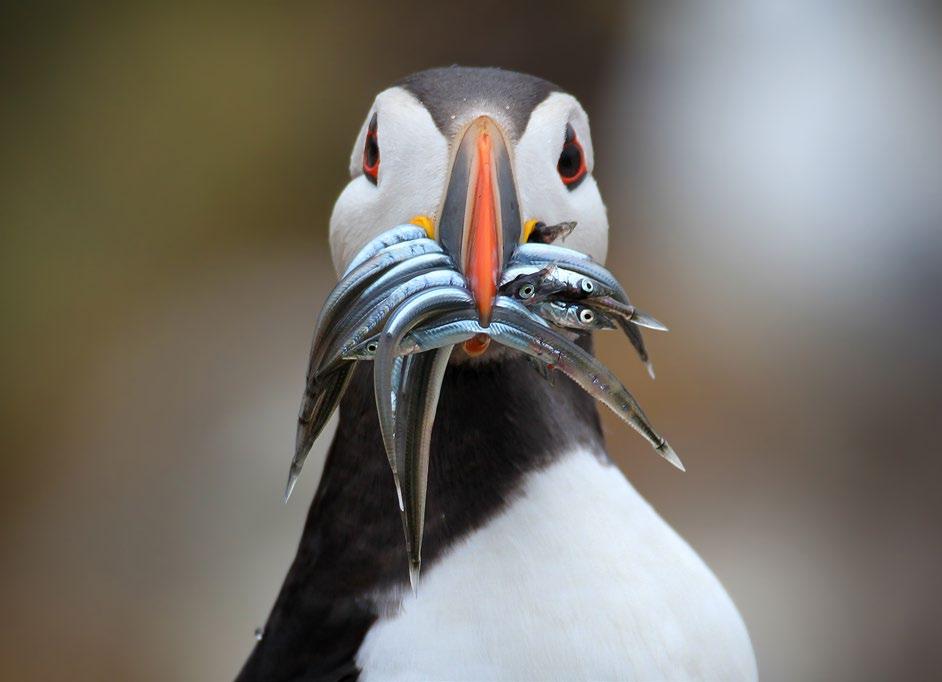
are a key food source for species like the Atlantic puffin.
EU Court Upholds UK Ban on Sandeel Fishing
MAY 2025 - Faced with a legal challenge from the European Union, the United Kingdom’s ban on commercial fishing for sandeels has been upheld by the EU Court. This will safeguard the many marine species that rely on these small fish as a food source. Oceana, the Royal Society for the Protection of Birds, and other allies campaigned to protect this ban, which aims to help sandeels and the ecosystem recover.
© Shutterstock/Mark Caunt
Sandeels
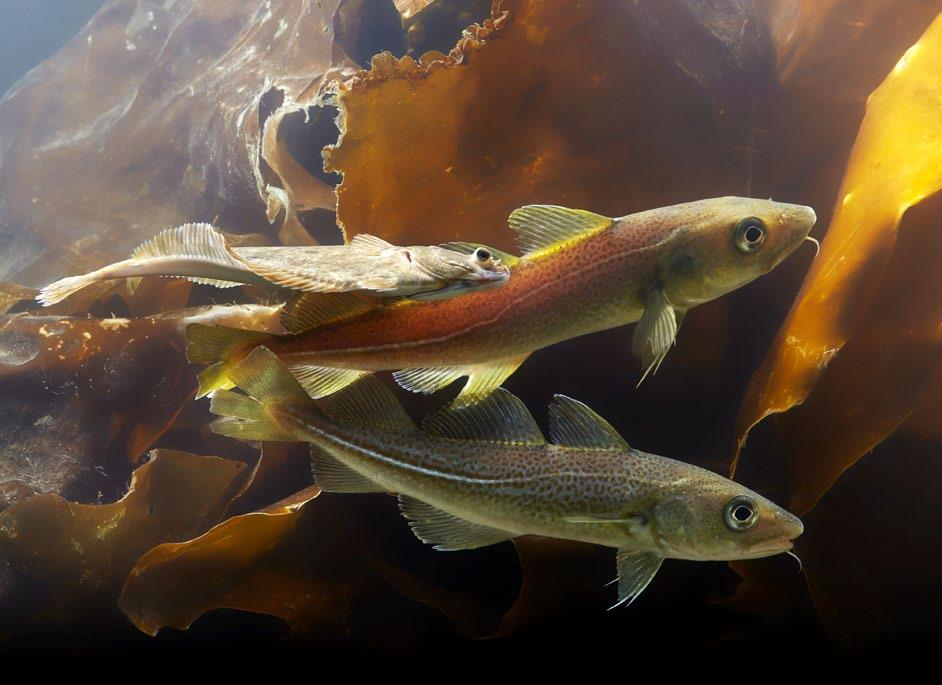
New England Cod Nursery Protected from Proposed Scallop Dredging
JULY 2024 - Oceana won protection for an important cod nursery on Georges Bank in New England, defending it against an attempt by the United States scallop fishery to open this protected area to the dragging of heavy dredges along the seafloor. This action preserves the area for spawning, growth, and feeding of Atlantic cod, American lobster, and Atlantic herring.

© Shutterstock
Oceana’s victory will help protect New England’s iconic Atlantic cod.
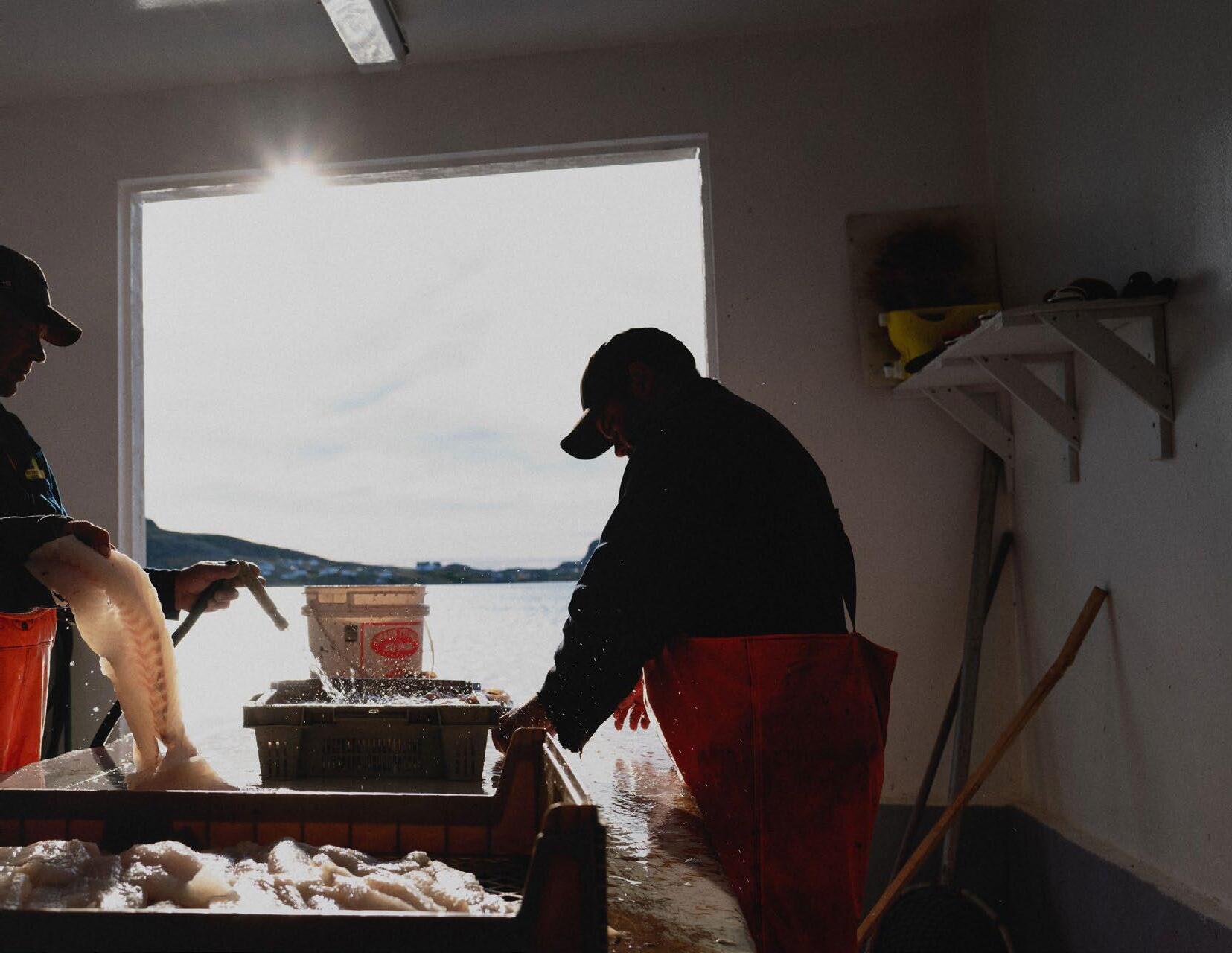
Canada Begins Rebuilding Depleted Fish Populations with Science-Based Plans
JUNE 2025 - The Canadian government published 12 rebuilding plans for some of the country’s most depleted fish populations — including Atlantic cod, Atlantic mackerel, and Pacific herring. These plans were legally required under Canada’s fisheries rebuilding regulations, which Oceana helped secure in 2022. For the first time, Canada is setting clear, science-based objectives, timelines, and actions to restore its wild fish populations, strengthen ecosystems, and support coastal and Indigenous communities. Scientific models show that with these plans in place, essential forage fish like mackerel could recover in as little as six to seven years.

Curbing Pollution Victories
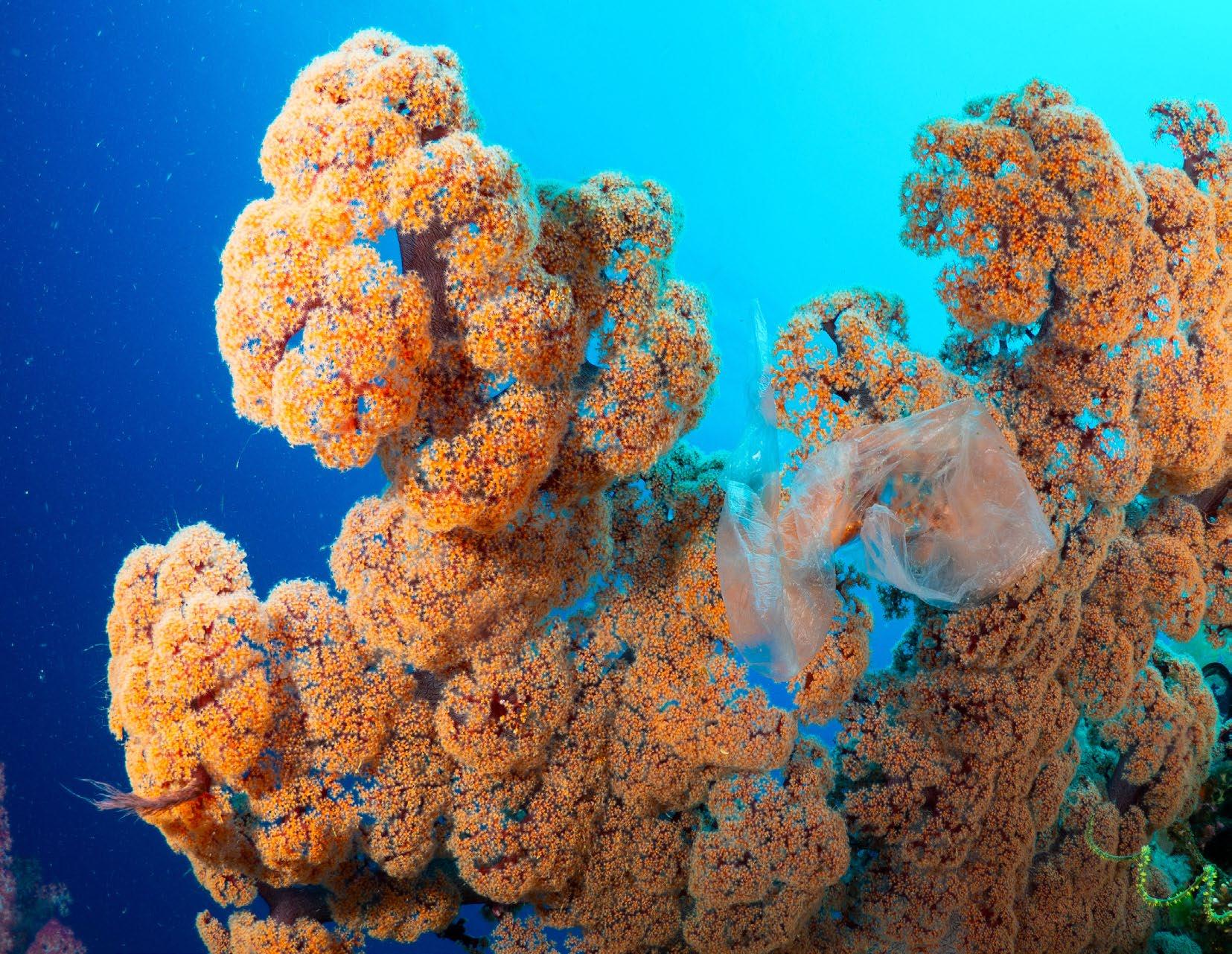
Amazon Removes Plastic Air Pillows from Delivery Packaging Globally
OCTOBER 2024 - Amazon announced it has removed all plastic air pillows from its delivery packaging used at its fulfillment centers globally. This news follows an earlier announcement in June 2024 that the company planned to eliminate all plastic air pillows from North American deliveries by year-end. This move will eliminate the production and use of more than 15 billion air pillows every year, which now cannot become ocean plastic pollution. Plastic film, such as the kind used in air pillows, is the most common form of marine plastic litter in nearshore ocean areas and the deadliest type of plastic to large marine animals. Oceana has campaigned since 2020 for Amazon to drastically reduce its plastic use.
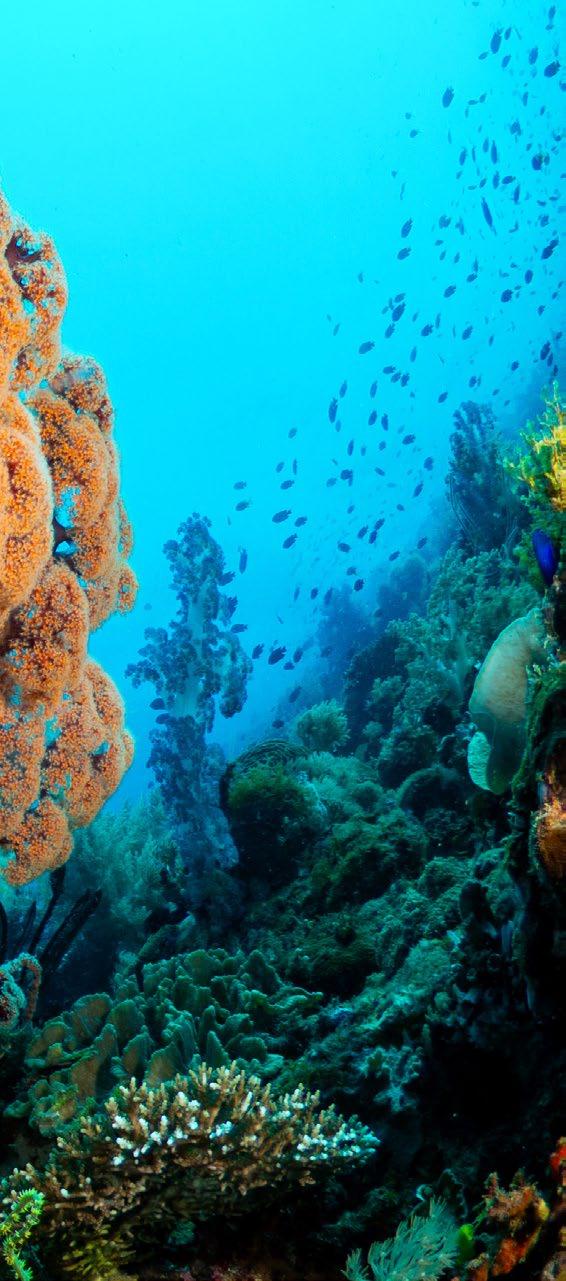
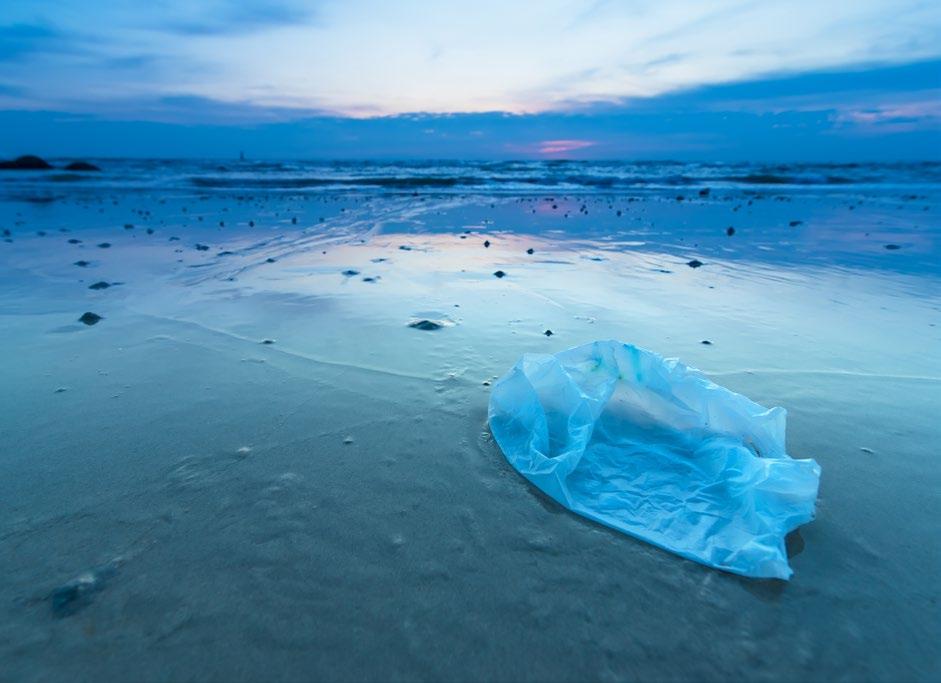
SEPTEMBER 2024 TO JUNE 2025 - The U.S. states of California, Washington, and Oregon passed new laws that reduce plastic pollution, helping to protect their coastlines, communities, and marine life. California’s new law bans all single-use plastic film bags from grocery store checkouts starting Jan. 1, 2026. Similarly, Oregon’s new law eliminates all plastic film bags from checkouts in restaurants, grocery stores, and other retail establishments starting Jan. 1, 2027. Both laws will expand current state bag bans to include thicker plastic bags. Washington’s new law will cut plastic packaging and pollution, curb harmful chemical recycling, and support reuse programs.
US West Coast States Cut Plastic Pollution
© Shutterstock
New laws in California and Oregon slash use of plastic film bags.
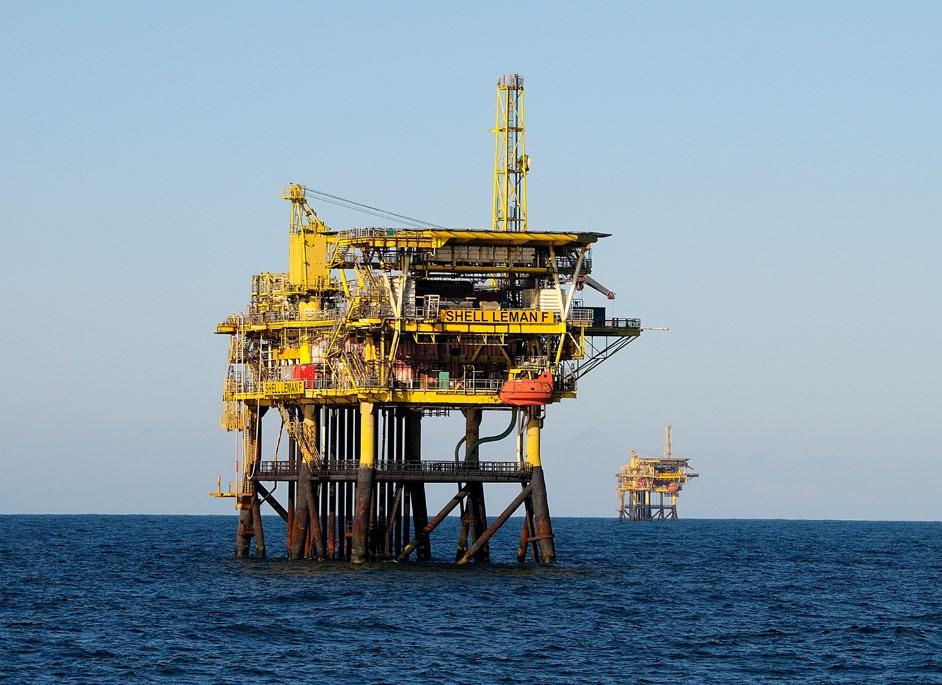
Nearly three-quarters of the U.K. public are concerned about the impact of oil pollution.
United Kingdom Commits to No New Oil and Gas Drilling
JULY 2024 - The United Kingdom government was elected on and adopted a new policy of no new oil and gas licensing throughout the country. This victory follows campaigning by Oceana and our allies to stop the expansion of offshore oil and gas drilling in U.K. waters and end the chronic oil pollution that wreaks havoc on marine life and the environment.
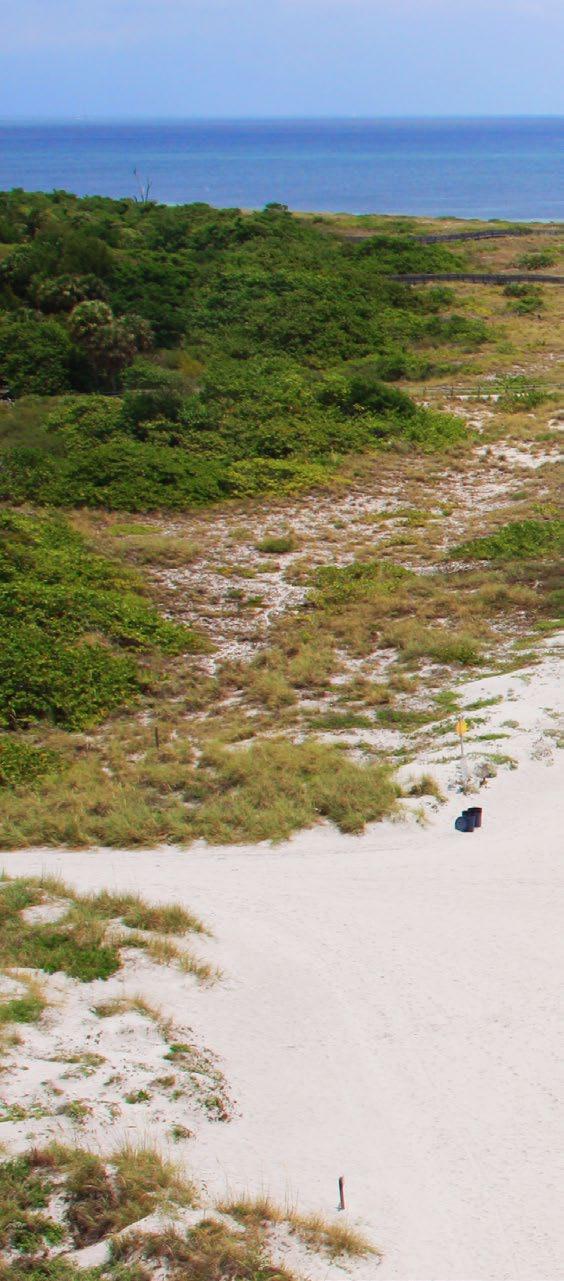
© Oceana/Juan Cuetos
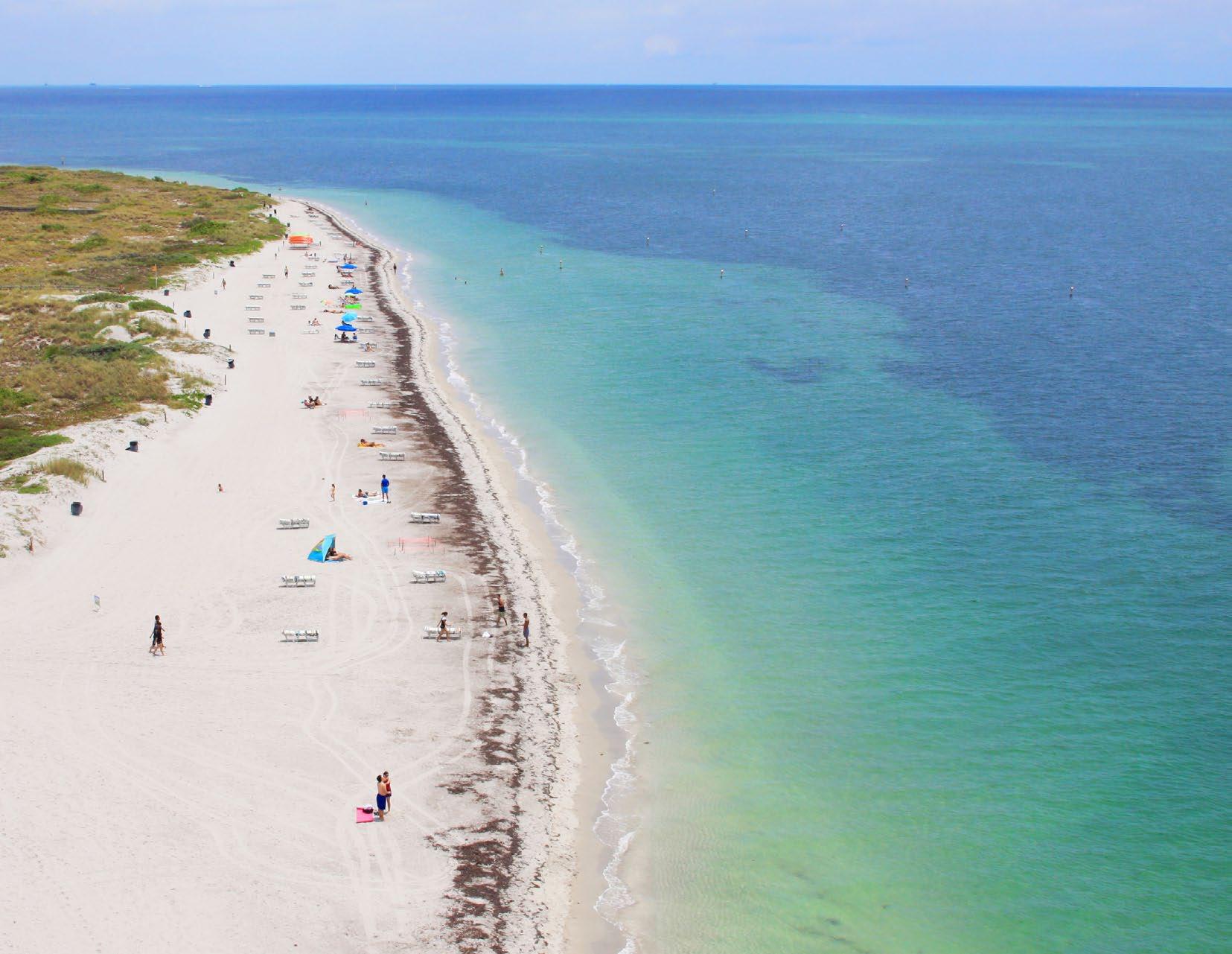

United States Coastlines Permanently Protected from New Offshore Drilling
JANUARY 2025 - President Biden permanently protected more than 625 million acres of United States federal waters, including the East Coast, West Coast, eastern Gulf of Mexico, and areas off Alaska, from new offshore oil and gas drilling. After President Trump signed an executive order attempting to roll back these protections, Oceana and other environmental groups filed a lawsuit in February 2025 to defend them.
Protecting Species Victories
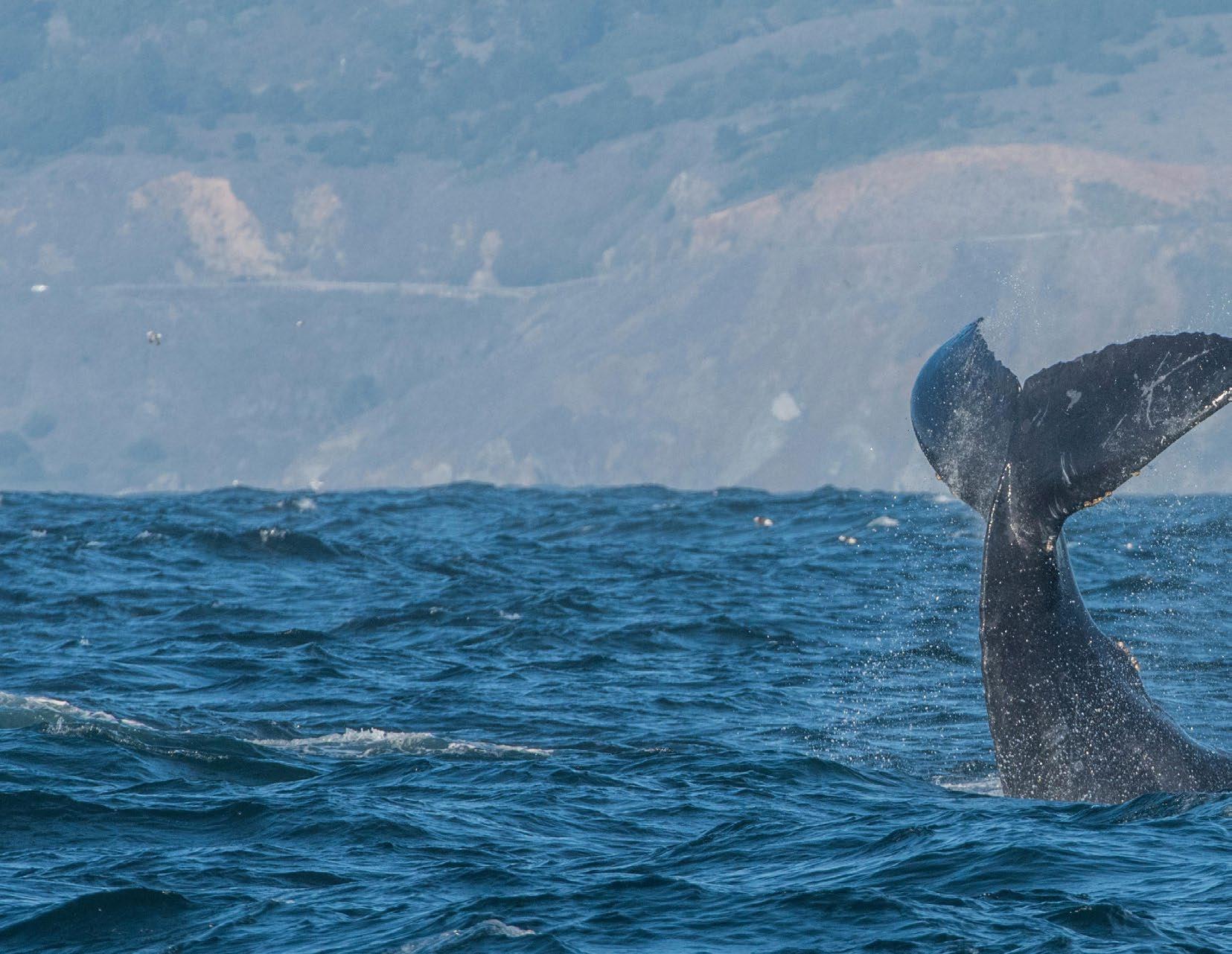
New Measures and Innovative Gear Will Help Save Whales from Entanglements in California Crab Fishery
NOVEMBER 2024 - Oceana successfully campaigned for the U.S. state of California to implement new measures to protect endangered humpback whales and leatherback sea turtles from becoming entangled in commercial Dungeness crab fishing gear. The measures include delaying the opening of the 2024-2025 season, early closures, and reduced traps and fishing lines. Also in 2024, a safe alternative gear known as pop-up fishing gear saw its largest and most successful trial on the U.S. West Coast. Using this safer gear, commercial California Dungeness crab fishers landed 292,000 pounds of crab valued at approximately $1.5 million.
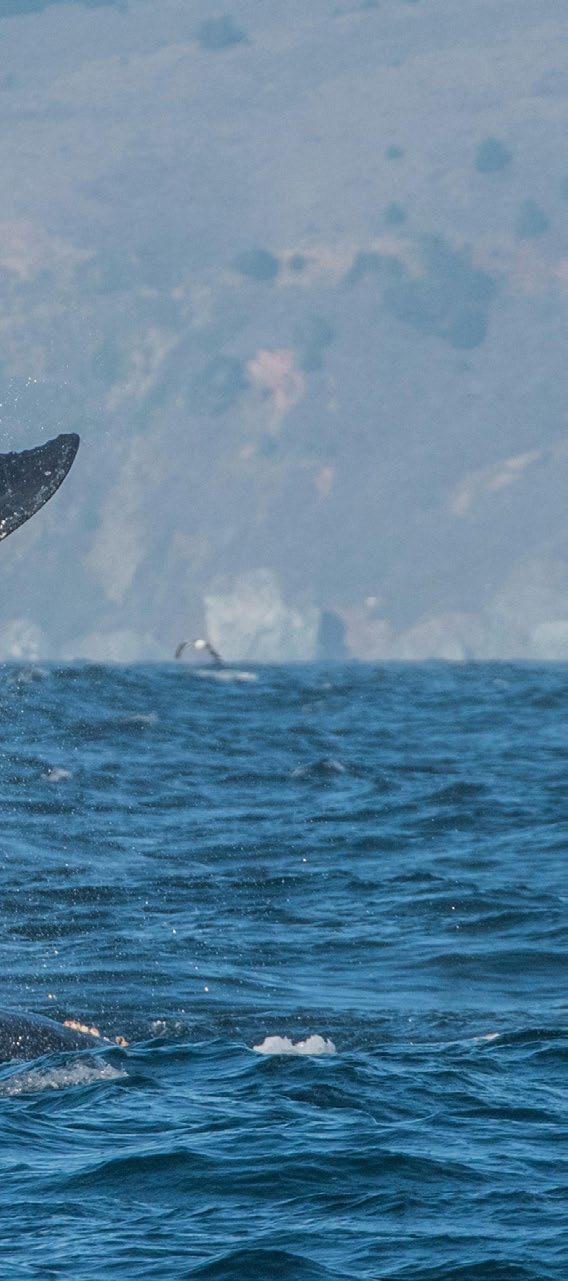
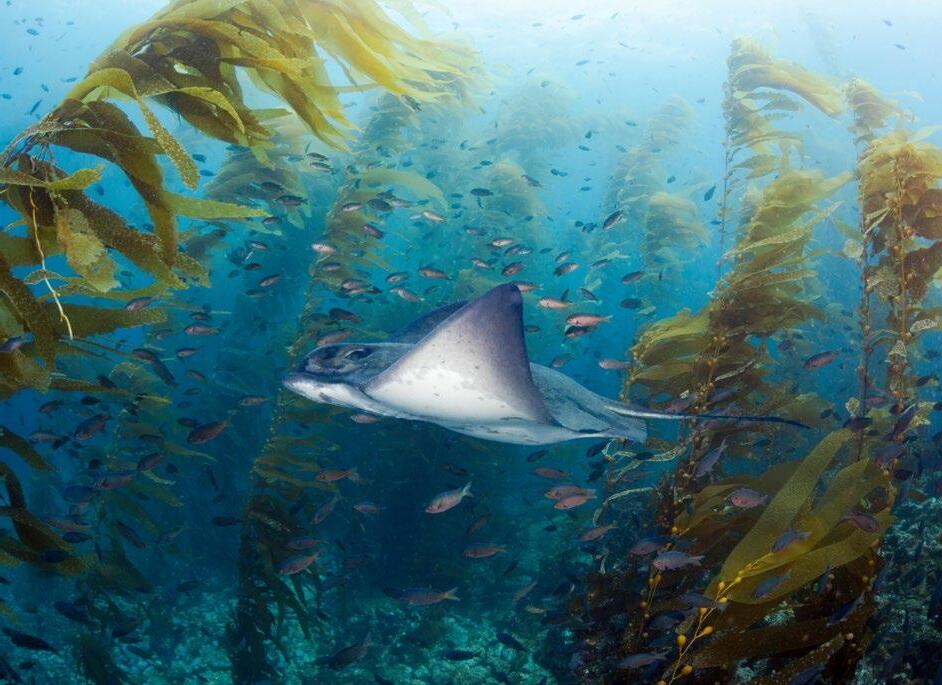
rays are among the animals frequently entangled in set gillnets.
New Rules for California Set Gillnets Will Help Prevent Wildlife Entanglements
AUGUST 2024 - To prevent wildlife entanglements, California will now limit the height of set gillnets and regulate the length of time they can be used. The new rules also require the set gillnets to have unique gear markings so they can be identified in the event they entangle a whale or other threatened species.
© Alamy Stock Photo/David Fleetham
Bat
On The Water
Around the world, Oceana’s expeditions bring to life the essential underwater areas we seek to protect. We document unique habitats and — using the photos, videos, and scientific data gathered on our expeditions — collaborate with local communities and other allies to persuade policymakers to protect these exceptional places. Since Oceana’s inaugural voyage across the Atlantic Ocean and Mediterranean Sea in 2005, we have led more than 65 scientific expeditions and conducted thousands of ocean surveys. These expeditions have been instrumental in Oceana protecting over 10 million square kilometers (over 4 million square miles) of ocean habitat. From July 2024 to June 2025, Oceana embarked on expeditions in three ecologically important areas:
• Atacama and Coquimbo, Chile
• California Channel Islands, United States
• Canary Islands, Spain
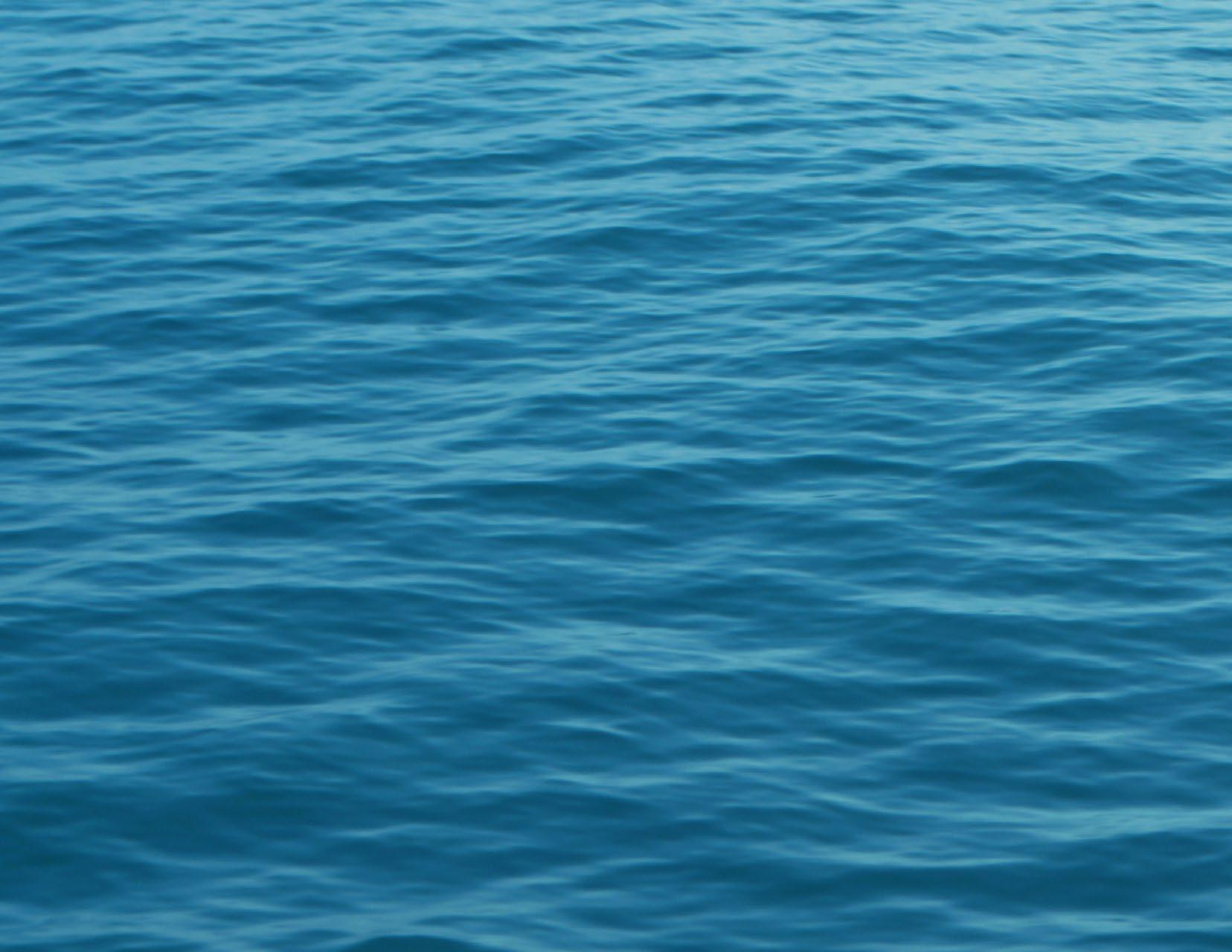
Oceana Offices
July 2024 – June 2025 Expeditions
Earlier Expeditions
Circle size corresponds to approximate expedition distance.
Monterey Portland
Juneau
Washington, D.C.
New York
Belmopan
Lima
Santiago
Brasilia Ottawa Halifax Toronto
Fort Lauderdale
Mexico City
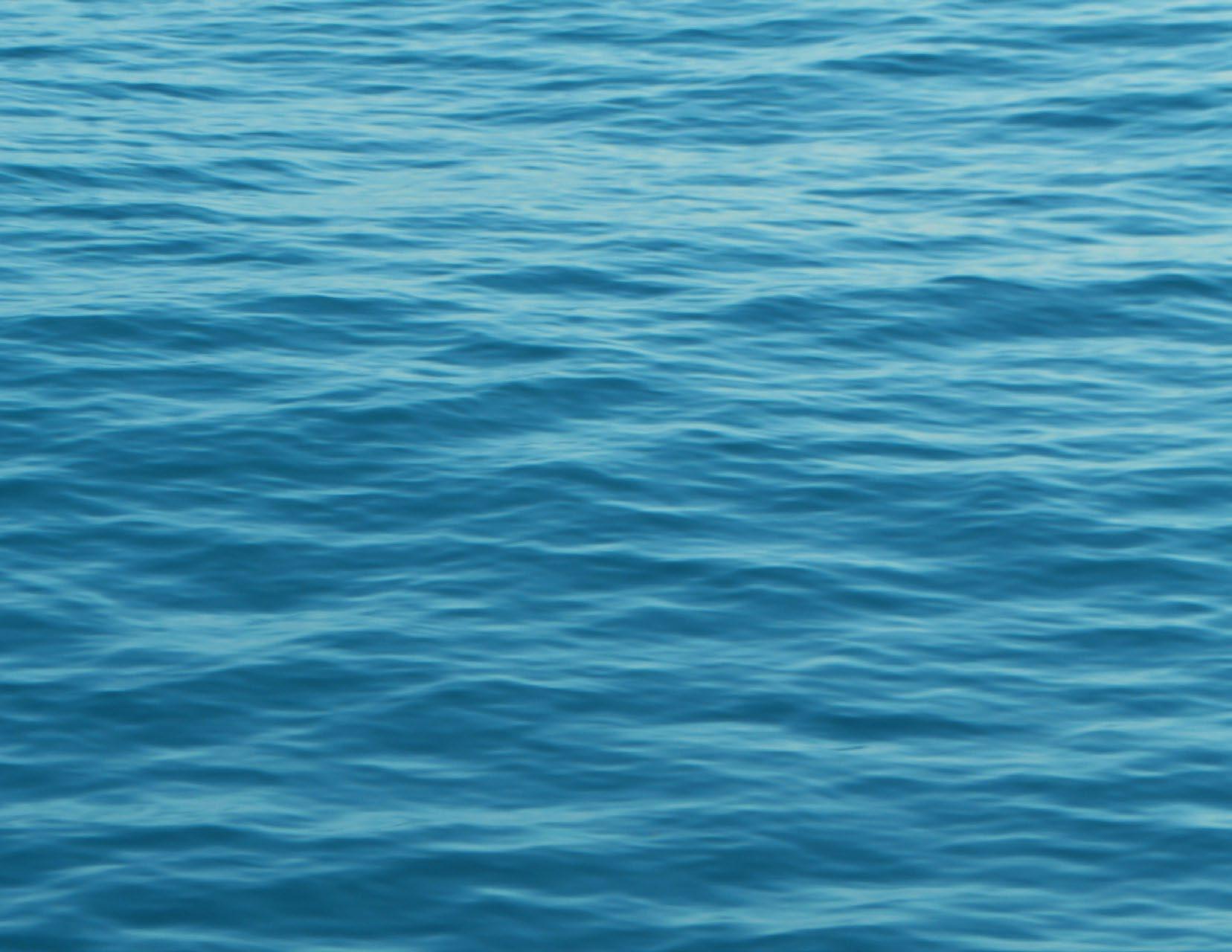
Manila
CHILE
In January 2025, Oceana documented the state of underwater kelp forests in three coastal villages (“caletas”) between Atacama and Coquimbo in Northern Chile. In each village, Oceana’s team, along with researchers from Reef Check, dove into the waters to measure the size and health of the kelp forests. They also met with local fishers about the prospect of a longer-term monitoring program to ensure kelp extraction is done sustainably, which was met by strong interest among fishers in each village.
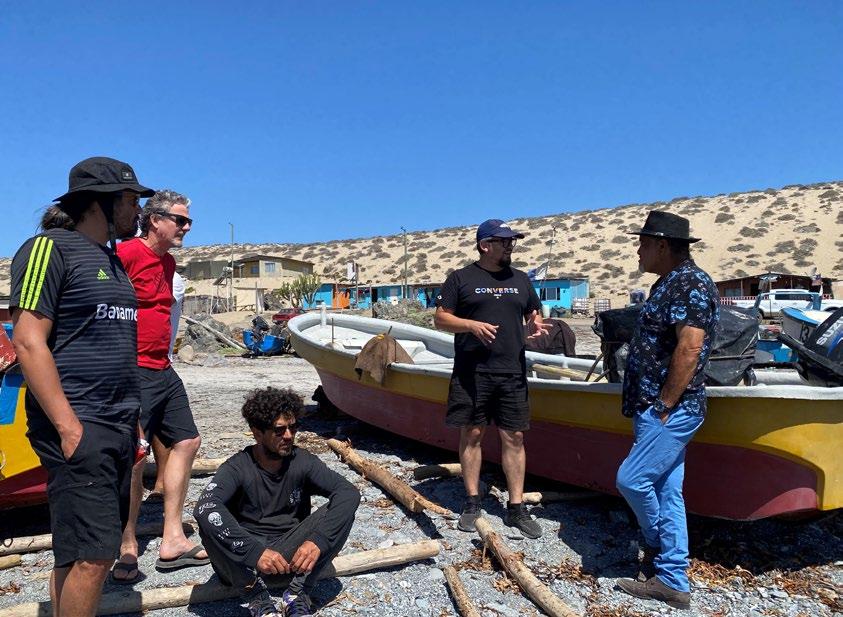
Oceana’s
and
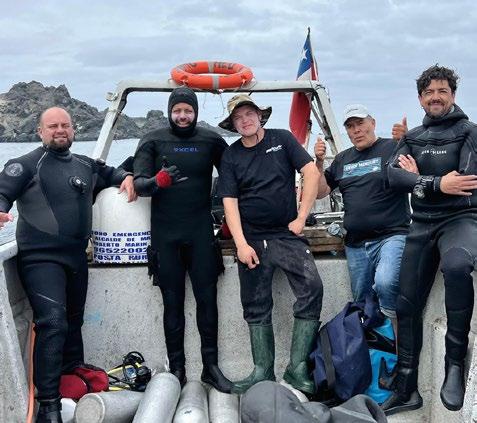
The kelp forest expedition team.
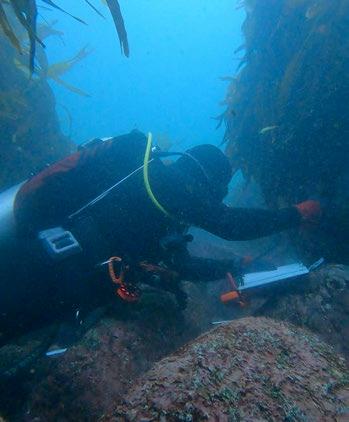
Divers and local harvesters work on a kelp forest monitoring program.
© Oceana/Catalina Sapag
Ignacio Petit
César Astete, along with Rodrigo Beas and Jan Freiwald from Reef Check, spoke with Carlos Mamani, a kelp harvester from Chañanal de Aceituno.
Atacama and Coquimbo
© Oceana/Fernando Cornejo
© Oceana/Fernando Cornejo
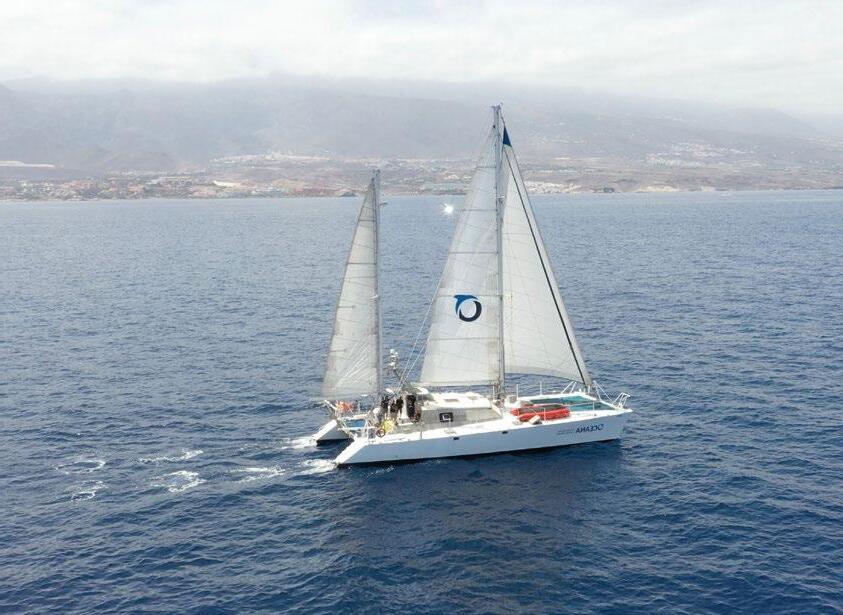
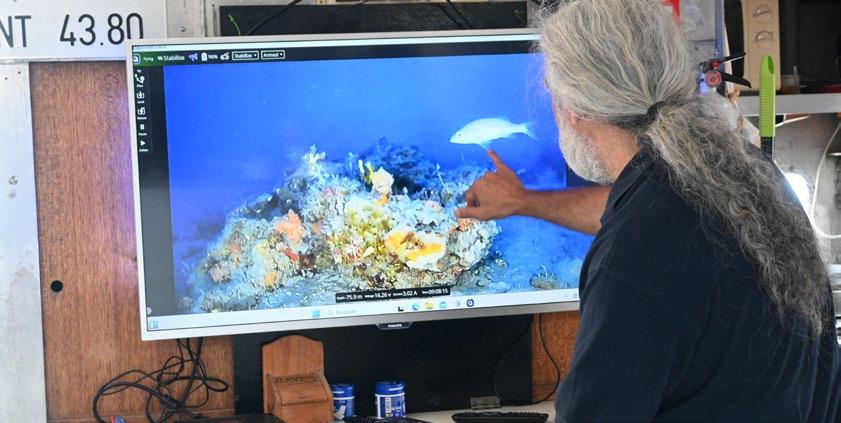
EUROPE
As part of an international project to restore damaged ecosystems and increase marine resilience to climate change, Oceana’s team set off on our research vessel, the Ranger, to survey and map the seabed in Spain’s Canary Islands in 2024. In June 2025, Oceana set out on a second expedition to the area, in collaboration with the University of Galway (Ireland), to collect more data on the food web and the species present in these waters. The team found two species of green algae at levels deeper than any previously recorded, along with large black coral, tree coral gardens, and abundant sting rays and butterfly rays. The project seeks to restore populations that are in decline, as well as species that play a role in climate change resilience.
Spain’s Canary Islands
© Oceana/Felipe Ravina
The Ranger sails near the island of Tenerife.
Oceana Senior Advisor and Expedition Leader Ricardo Aguilar identifies a fish during an ROV immersion on board the Ranger.
© Oceana/María Bofill
UNITED STATES
California Channel Islands
In September 2024, Oceana — in partnership with Swiss watchmaker, Blancpain — completed the second of three research expeditions around the Channel Islands, off Southern California. The expedition team conducted visual surveys to document ocean biodiversity, which included thousands of fish, invertebrates, corals, and giant kelp. The divers also collected water samples that were later analyzed to identify environmental DNA (eDNA) left behind in the water by marine plants, fish, and animals. This data adds to the eDNA collected in Oceana’s Spring 2024 expedition, which found that more than 11,000 species frequent these waters. Together, the visual surveys and eDNA sampling create the most holistic snapshot to date of marine diversity in the region, and support Oceana’s efforts to protect marine life in the Channel Islands from entanglement in fishing gear. A third expedition is planned for Fall 2025.
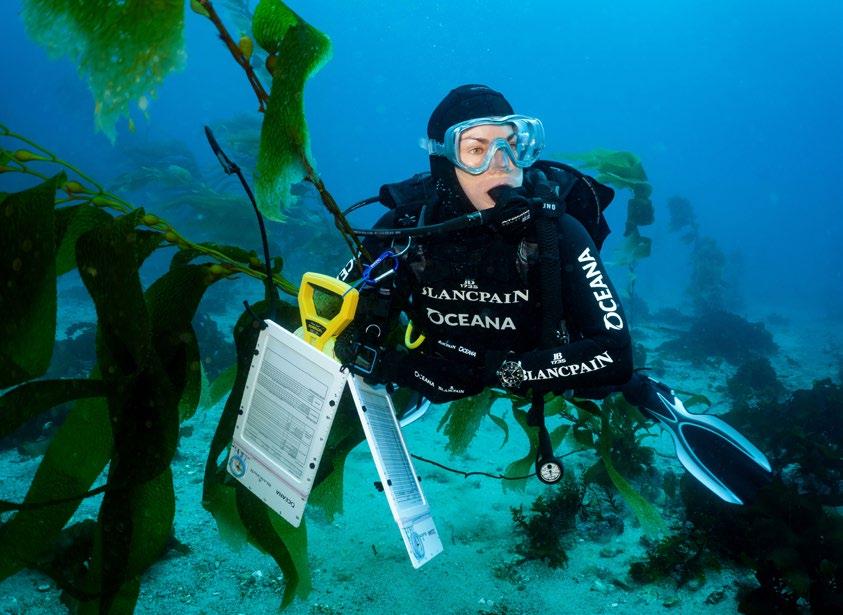
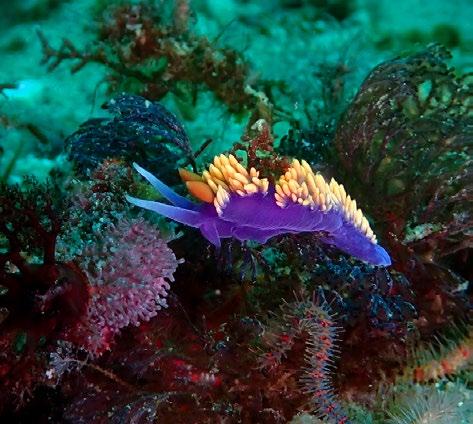
A Spanish Shawl nudibranch.
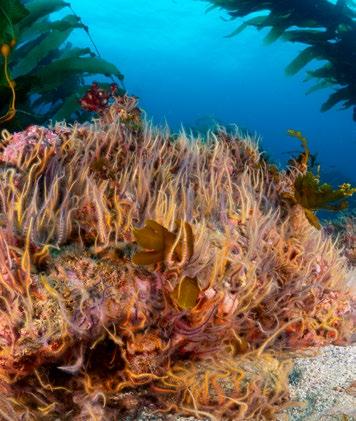
© Oceana/Danny Ocampo
© Oceana/Jason Heaton
An Oceana research diver conducts a scientific survey of ocean biodiversity.
Colorful brittle stars blanket a rock under tall kelp.
© Oceana/Danny Ocampo
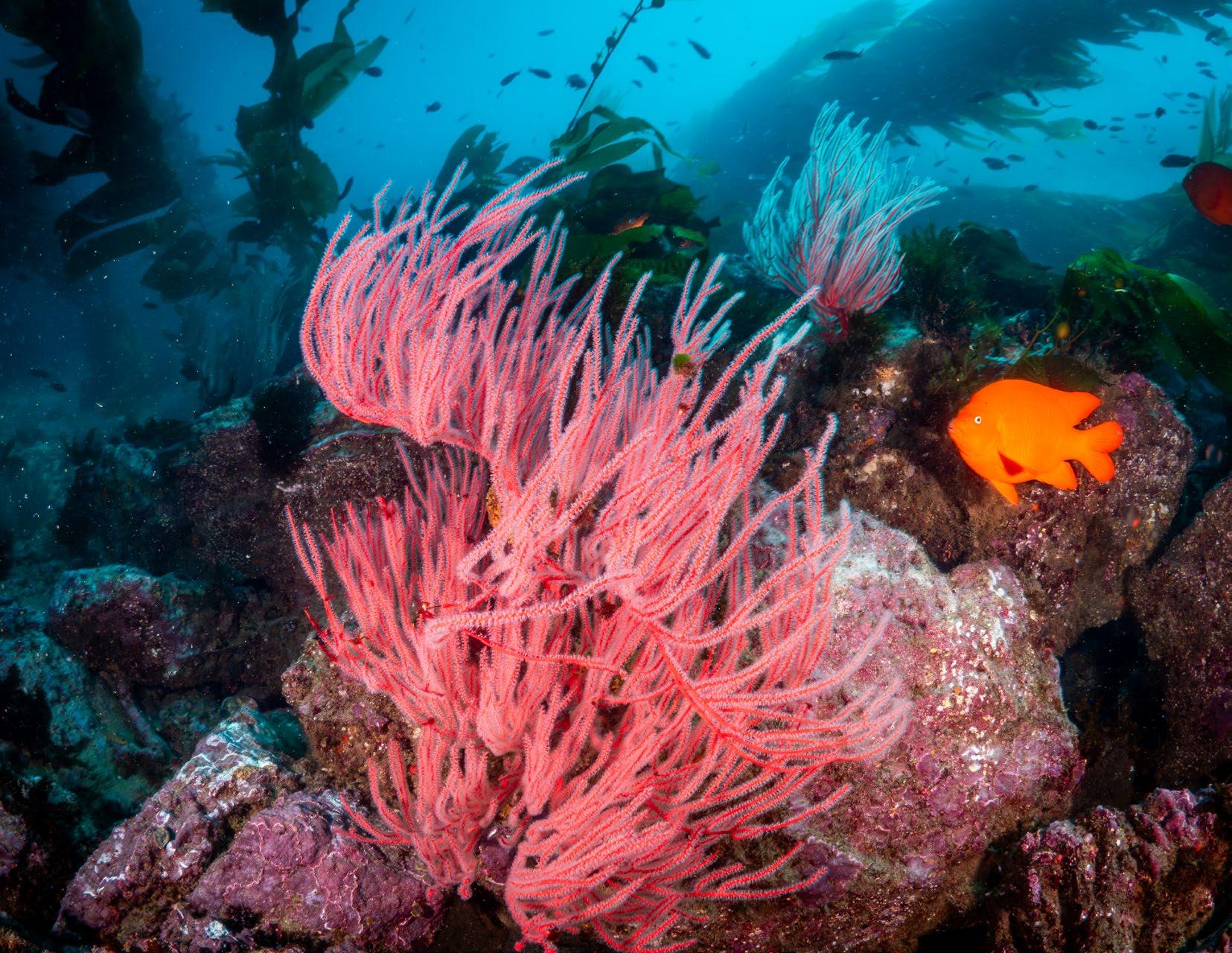
© Oceana/Danny Ocampo
A garibaldi swims among gorgonian coral in a towering kelp forest off California’s Channel Islands.
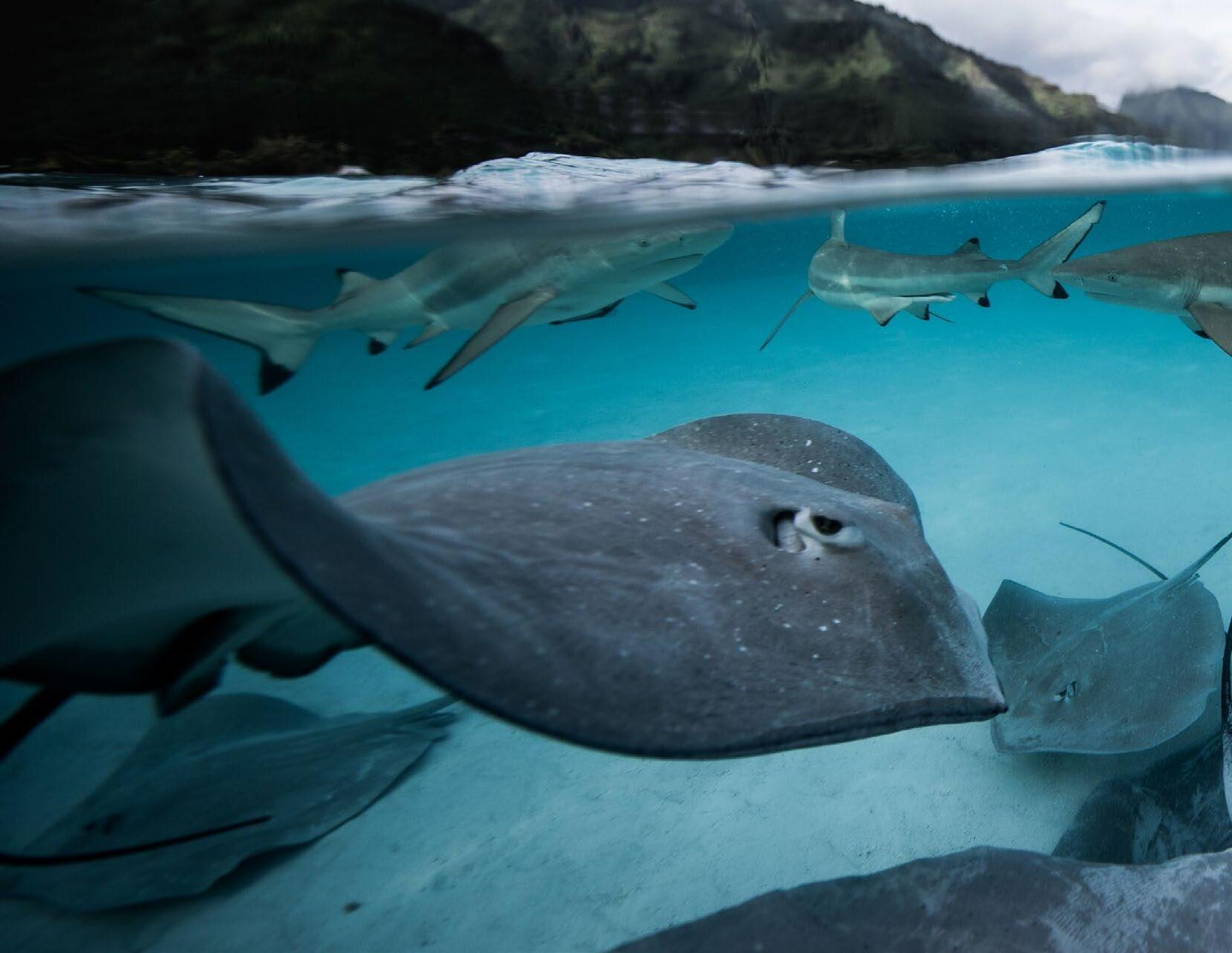
Blacktip reef sharks and pink whiprays swim in island waters.
Science & Policy Reports
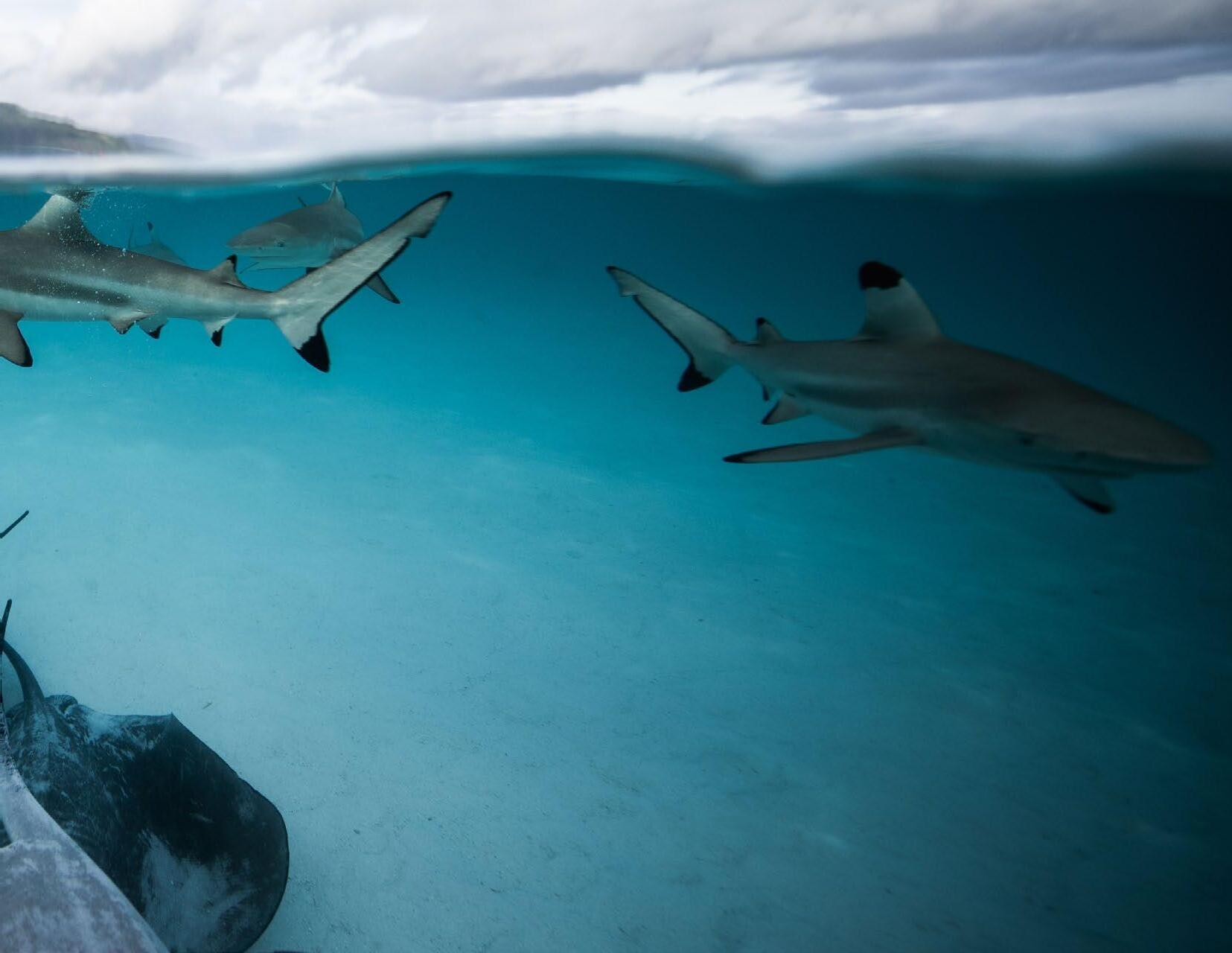
Law
Grassroots Organizing & Advocacy
Oceana Around The World
Strategic Communications
© Oceana/Perrin James
Science & Policy Reports
Oceana wins victories for the oceans through effective campaigns based in science and research. Reports published from July 2024 to June 2025 include:
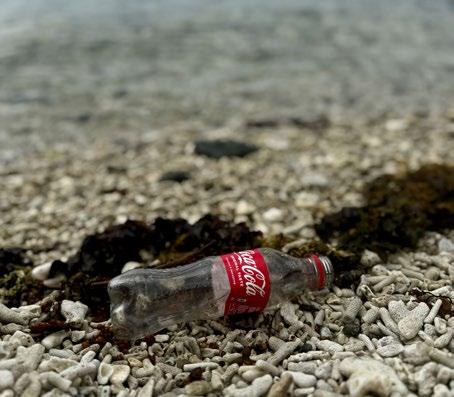
Global | Coca-Cola’s World With Waste
Oceana’s analysis projects that The Coca-Cola Company’s plastic use will exceed 4.1 million metric tons (9.1 billion pounds) of plastic per year by 2030 if the company does not change its practices. The report also estimates that up to 602,000 metric tons (1.3 billion pounds) of this plastic could enter the world’s waterways and oceans every year. Oceana is calling on The Coca-Cola Company to address its plastic problem now, replacing single-use packaging with reusable packaging.
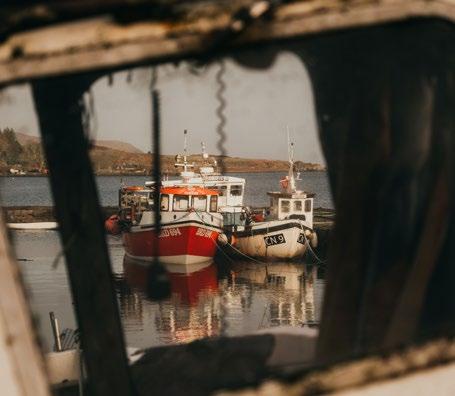
United Kingdom | Mission Regeneration: A Roadmap to End Overfishing & Restore Life to UK Seas
After speaking with small-scale fishers, academics, and environmentalists from around the U.K., Oceana launched a roadmap to end overfishing and restore ocean health based on the key principles of science, fairness, resilience, transparency, and respect. For each of these five principles, Oceana provides time-bound actions for the U.K. government to take to end overfishing. Oceana has found that half of the U.K.’s key fish populations are either being overfished or are at critically low levels.
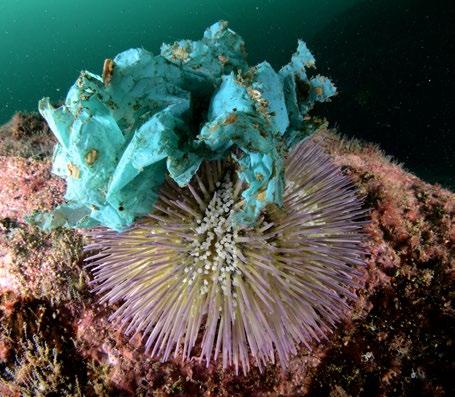
Brazil | Fragments of Destruction: Impacts of Plastic on Brazilian Marine Biodiversity
Developed in collaboration with Brazilian scientists, this study documents the widespread effects of plastic pollution on species such as fish, turtles, seabirds, and mammals. It also highlights Brazil’s significant contribution to the global problem: 1.3 million metric tons (equal to the weight of 1.3 million small cars) of the country’s plastic ends up in the ocean every year. Oceana’s report aims to drive concrete actions and public policies to address the plastic pollution crisis and restore the health of our oceans.
© Oceana/Katerina Barvirova
© Oceana/Enrique Talledo
© Oceana/Mae Chatto
Protect
Habitat
• Europe | Blue Manifesto: The Roadmap to a Healthy Ocean in 2030
• Europe | Marine Paper Parks: Exposing Destruction in France’s Iconic Marine Protected Areas
• Europe | Objective 10x30. The Urgency of Establishing Strict Protected Areas in Spain
• United Kingdom | The Trawled Truth: The Case for Banning Bottom Trawling in U.K. Marine Protected Areas
Increase Transparency
• Europe | Fishy Labels: What Do We Know About the Seafood We Buy in Supermarkets?
• Europe | Hooked on Hake: Exposing the Black Market Threatening Mediterranean Marine Life
• Europe | Missing Authorizations for the French Fleet in West Africa: A Breach of the EU Regulation on the Sustainable Management of External Fishing Fleets
• Europe | The EU’s Hidden Fishing Fleet: How Foreign Vessel Ownership is Undermining Europe’s Fight Against Illegal Fishing
• Global | Beyond the Flag: Who Really Owns the World’s Large-Scale Fishing Fleet?
• Brazil | Opportunities in Brazil’s Transition to a Single-Use Plastic-Free Future
• Canada | Reuse Workshop for Stadiums: How to Upgrade Your Venue to Zero-Waste
• Chile | Detailed Design of a Public Policy to Prevent the Generation of Packaging Waste in Chile and Impact Analysis
• Mexico | The Gulf of Mexico Beyond Oil
• United Kingdom | Sea Slick: The True Scale and Impact of Chronic Oil Pollution in U.K. Seas
• United States | Plastic Foam Needs ‘To Go’
• United States | U.S. Voters Overwhelmingly Support National Policies that Reduce Single-Use Plastic Foam Curb Pollution
Stop Overfishing
• Brazil | Fishery Audit Brazil 2023: The Effects of Political Instability and Political Opportunism on Fisheries Management
• Canada | 2024 Fisheries Audit
• Europe | How France Allocates Fishing Opportunities to its Fishers
• Europe | How Spain Allocates Fishing Opportunities to its Fishers
• United States | American Voters Support Stronger Safeguards for Our Oceans, Poll Shows Protect Species
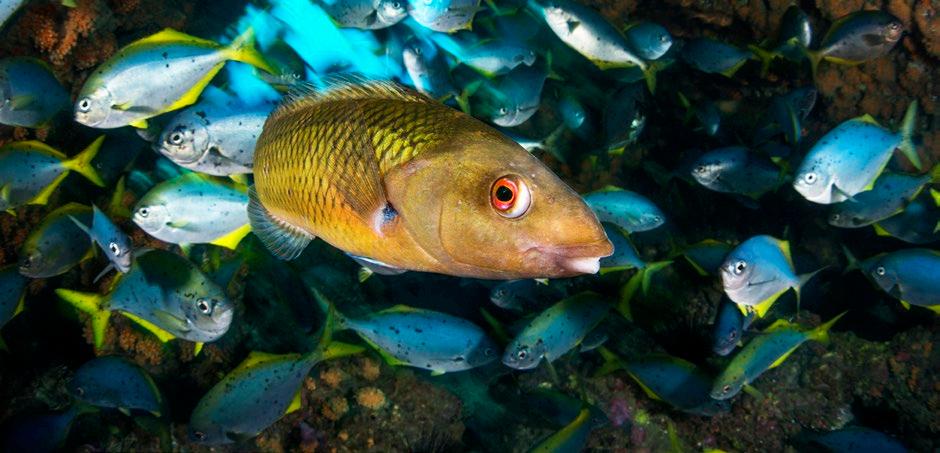
© Oceana/Eduardo Sorensen
Law
Oceana’s legal efforts win victories by ensuring governments finalize new rules and protections, follow science-based management principles, and enforce key provisions of laws. Our efforts in court lead to real, in-the-water change. Milestones from July 2024 to June 2025 include:
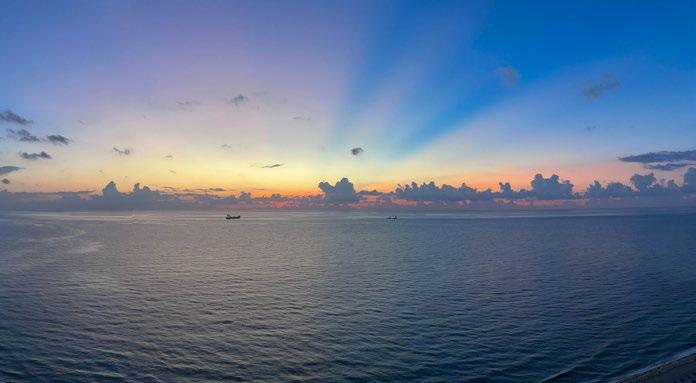
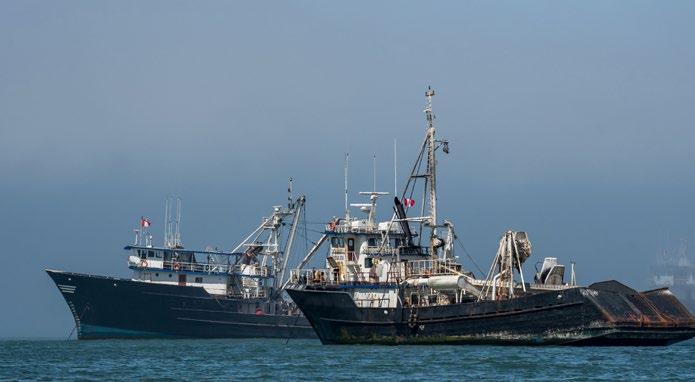
Oceana and Allies File Lawsuit Against New U.S. Administration to Defend Permanent Protections from Offshore Drilling United States | Curb Pollution
In February 2025, Oceana joined partners in filing a lawsuit challenging President Trump’s attempt to undo protections from offshore drilling for 625 million acres of ocean. These protections cover the East Coast, West Coast, eastern Gulf of Mexico, and areas off Alaska, which President Biden protected under the authority of the Outer Continental Shelf Lands Act. The law authorizes the president to protect offshore areas from oil and gas leasing but does not authorize the president to revoke prior protections.
Oceana Sues Peruvian State to Ban Industrial Fishing Inside Nazca Ridge National Reserve
In December 2023, Oceana sued the Peruvian state to prohibit industrial fishing within the Nazca Ridge National Reserve. Industrial fishing activity is threatening marine life such as corals, sponges, and sea urchins living on the reserve’s famously biodiverse seabeds. Oceana is arguing that Peruvian law must be enforced to protect the nature reserve. The First Constitutional Chamber of the Superior Court of Lima admitted the case and held a hearing in March 2025. Oceana, the Ministry of Environment, and the National Fisheries Society participated in the hearing and await the court’s verdict.
Peru | Protect Habitat
© Oceana/Andre Baertschi
Protect Habitat
• Europe | Oceana and ClientEarth Take Legal Action Against Spanish Government for Allowing Bottom Trawling in Protected Areas
• Peru | Oceana Defends Prohibition on Industrial Fishing Inside Paracas National Reserve
• United States | Oceana Sues Federal Fishery Managers for Failure to Protect Alaska’s Seafloor Habitats
Stop Overfishing
• Mexico | Oceana Faces Setback in Rebuilding Fisheries Case
• Philippines | Oceana Petitions Supreme Court to Oppose Commercial Fishing Vessels Inside Municipal Waters
• United States | Oceana Wins Lawsuit to Rebuild Pacific Sardines
Increase Transparency
• Europe | Oceana and ClientEarth File Legal Action Against Spanish Government for Failing to Investigate Irregularities Involving Spanish-Owned Fishing Vessels Operating in West African Waters
Curb Pollution
• Chile | Courts Fine Supermarkets for Failing to Sell Reusable Bottles
• Philippines | Oceana Petitions Supreme Court to Include Single-Use Plastics in List of Non-Environmentally Acceptable Products and Packaging
• United Kingdom | Oceana Takes U.K. Government to Court over Licenses for Oil and Gas Exploration Inside Marine Protected Areas
Protect Species
• United States | Oceana Spurs International Investigation into Failures of the United States to Protect North Atlantic Right Whales
• United States | Oceana Sues Federal Fisheries Service for Withholding Images and Data on Ocean Animals Killed in U.S. Fisheries
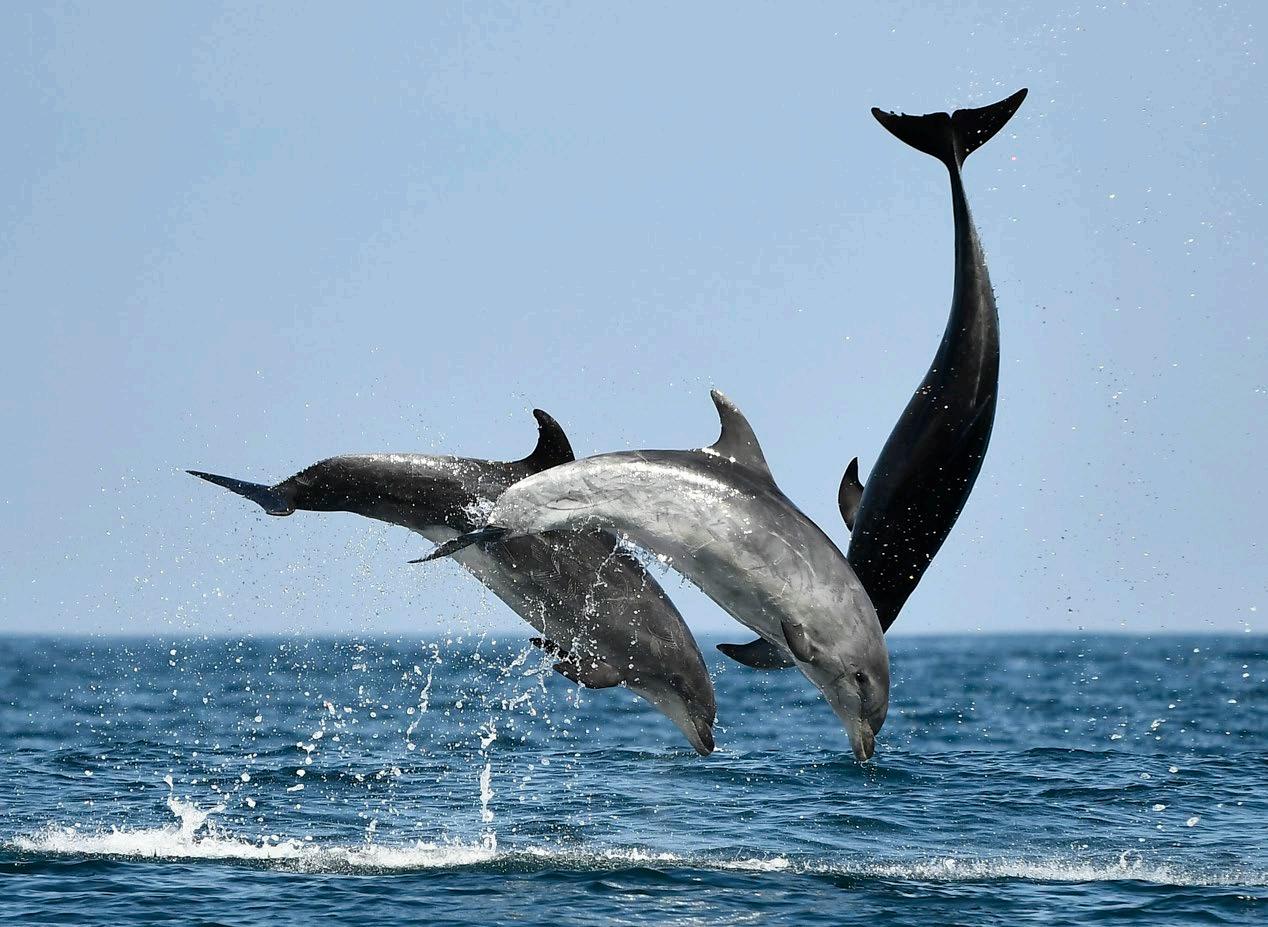
© Oceana/Marensepia
Grassroots Organizing & Advocacy
Nearly nine million supporters and advocates — ranging from local on-the-ground fishers to activists on social media — help Oceana and our allies win victories all over the world. Activities from July 2024 to June 2025 include:
MEXICO
Oceana Protests for Fair Fishing Laws Outside Mexico’s Senate
Outside Mexico’s Senate building, Oceana staged a protest in October 2024 to demand legislative reforms and fair fishing laws that protect both marine species and the livelihoods of thousands of fishers across the country. Activists held coffins representing key fish species — including snapper, bluefin tuna, and grouper — highlighting the risks of overfishing and poor fisheries management. With marigolds in hand, symbolizing Mexico’s Day of the Dead tradition, they urged lawmakers to take immediate action. The message was clear: “Without fair laws, fishing dies.”
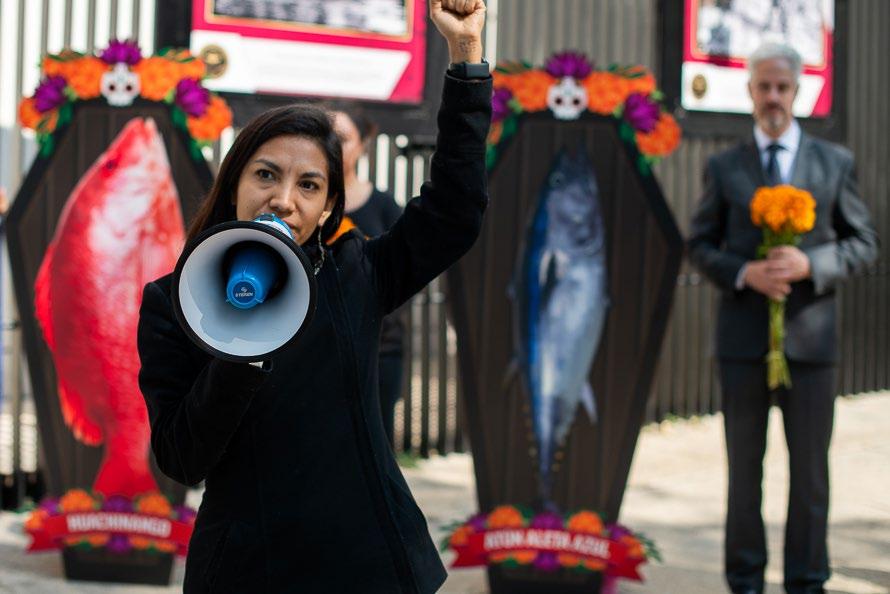
BRAZIL
Oceana Hosts Debate Among Key Players in Brazil’s Fishing Sector
In August 2024, Oceana launched the 2023 Brazil Fishery Audit, considered to be the leading study on fisheries management in the country. The launch event brought together representatives from the Ministry of Fisheries and Aquaculture, and the Ministry of the Environment; members of the artisanal and industrial fishing sectors; researchers; NGO representatives; and journalists. The event featured a rich debate among speakers who are key players in Brazil’s fishing sector.
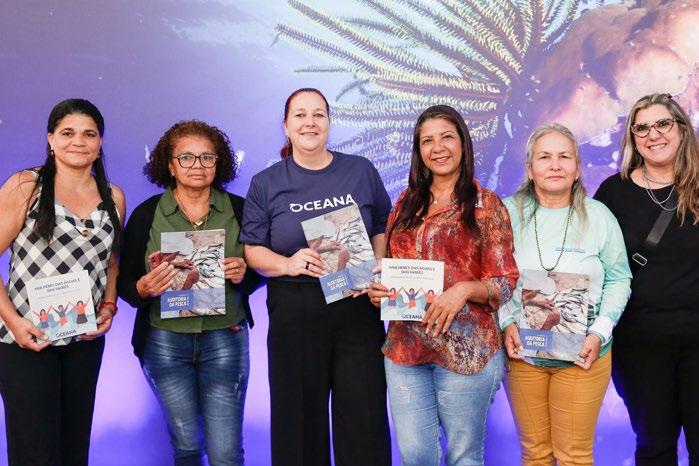
© Oceana/Jessica Ribeiro
© Eber Huitzil
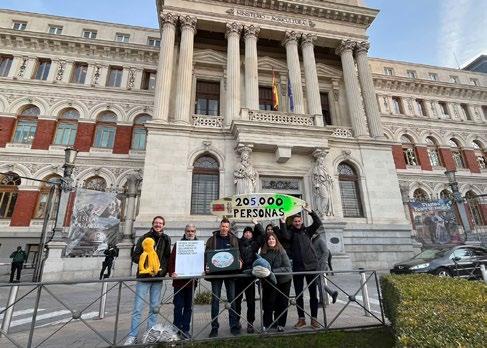
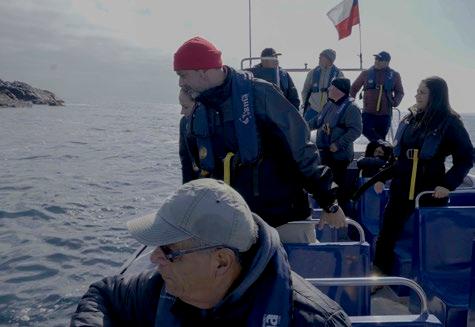
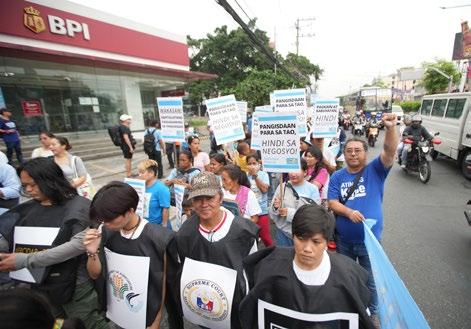
Oceana Delivers Over 205,000 Signatures to Ban Bottom Trawling in Spain’s Protected Areas
Together with our partners, Patagonia and ClientEarth, Oceana delivered more than 205,000 signatures to the Spanish Fisheries Ministry from EU citizens asking for marine protected areas to be defended against destructive bottom trawling. Signatures were also delivered to government authorities in London, Berlin, and Madrid.
EUROPE CHILE
Oceana Hosts Event for Artisanal Fishers
In June 2025, Oceana brought together artisanal fishers from different regions of Chile to exchange insights about how marine protected areas can benefit artisanal fishing. The event spanned three days and included workshops and a visit to the new multi-use marine protected area in the Humboldt Archipelago, famous for its biodiversity and penguin population. Experienced fishers from the region shared about their positive experiences operating within a protected area, which helps to safeguard their livelihoods from the threat of industrial mining.
PHILIPPINES
Oceana Organizes Rally with Artisanal Fishers
In May 2025, fisherfolk from across the Philippines gathered and marched to Malacañang, the office of President Ferdinand Marcos Jr. Backed by Oceana, they called to investigate cabinet officials who carelessly handled a case that led to a disastrous court ruling for small-scale fishers. This ruling declared that the small-scale fishers’ preferential access to municipal waters is unconstitutional, and Oceana is now challenging the decision in court.
© Oceana/Irene Campmany
© Oceana/Valeria Fuentes
© Oceana/Abbu Avendaño
Oceana Co-hosts Belize’s Reef Fair 2025
In March 2025, Oceana staff organized an educational booth at Belize’s celebrated Reef Fair and spoke to over 200 students and visitors about marine conservation and Oceana’s campaigns. The team highlighted the critical role of Belize’s reef in sustaining livelihoods, protecting coastal communities, and supporting marine life. Through displays and discussions, they showed how Oceana advocates for policies that ensure the long-term health of our seas. Reef Fair is part of “Reef Week,” which brought together over 20 NGOs and government agencies in Belize with the shared goal of protecting the country’s reef and way of life.
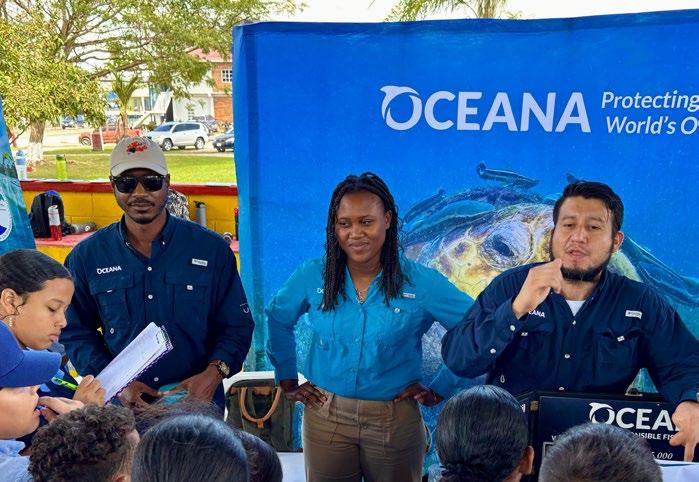
Oceana Hosts Workshops for 400+ Volunteers in Peru
In February and March of 2025, Oceana hosted 13 “welcome workshops” for more than 400 participants in “Blue Defenders,” a six-month volunteer program Oceana created in Peru. Workshops were held in eight cities across the country to prepare the volunteers to take action for the oceans. The events explained Oceana’s work, described upcoming plans, and most of all, provided a space to get to know and interact with fellow “Blue Defenders,” who are committed to protecting and restoring the oceans.
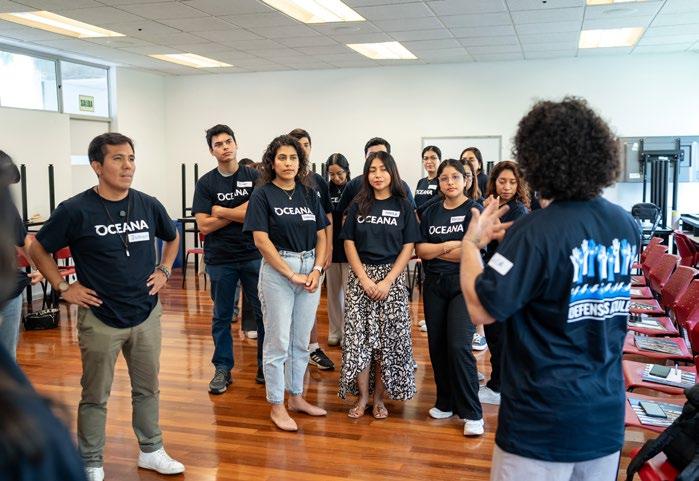
© Oceana/Miriam Longsworth
© Diego Zapata
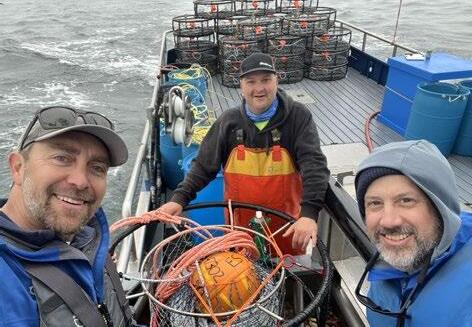
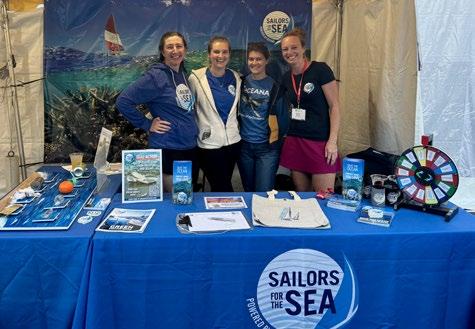
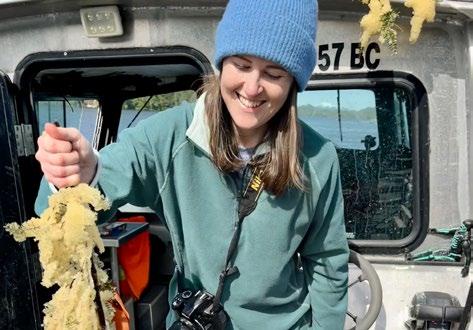
UNITED STATES
Oceana Joins California Commercial Crab Fishers to Test Innovative Pop-up Gear
In May 2025, Oceana Senior Scientists Geoff Shester and Ben Enticknap went on the water with California commercial crab fishers to document how innovative pop-up gear is a successful and profitable way to catch Dungeness crab — and an effective way to protect whales from entanglement. As whales return to these waters in the spring, this ropeless fishing gear does not present the same threats as the crab pots conventionally used by local fishers.
SAILORS FOR THE SEA
Sailors for the Sea Boosts Sustainability at Annapolis Sailboat Show in US State of Maryland
In 2024, organizers of the Annapolis Sailboat Show participated for the second time in Clean Regattas, the world’s leading sustainability certification program for on-the-water events, created by Sailors for the Sea Powered by Oceana. The annual Annapolis Sailboat Show attracts more than 50,000 sailors and boaters to Annapolis, Maryland every October. At the 2024 event, Oceana’s team created a guide to educate exhibitors on sustainability practices. The Sailors for the Sea team also hosted a booth at the five-day event, where they engaged with attendees about Oceana’s campaigns and marine conservation topics.
CANADA
Oceana Visits First Nations in Central Coast of British Columbia During Herring Spawning Season
Oceana Scientist Rebecca Schijns traveled to the Central Coast of British Columbia during the 2025 herring spawning season to continue collaborative work with First Nations partners. Building on earlier engagement, Oceana’s team deepened their understanding of the community’s relationship with herring by spending time both on the water and in the community — listening, learning, and participating in culturally significant harvesting activities. Together, they advanced shared project goals to pair Indigenous Knowledge Systems with Western science in support of sustainable fisheries management and rebuilding efforts.
© Oceana/Shelley Brown
© Oceana/Geoff Shester
© Oceana Canada
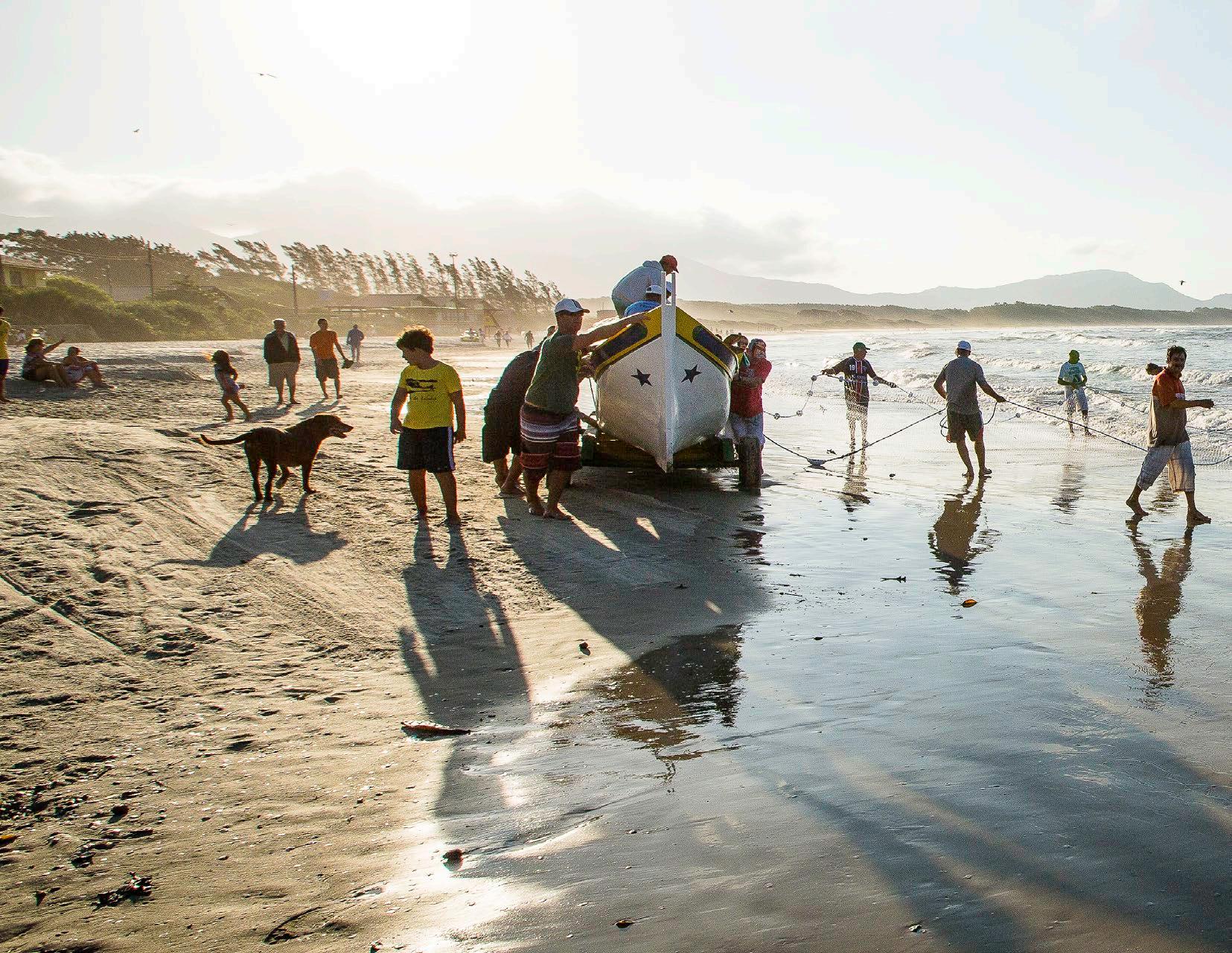
Fishers pull their nets to shore in Santa Catarina, Brazil.
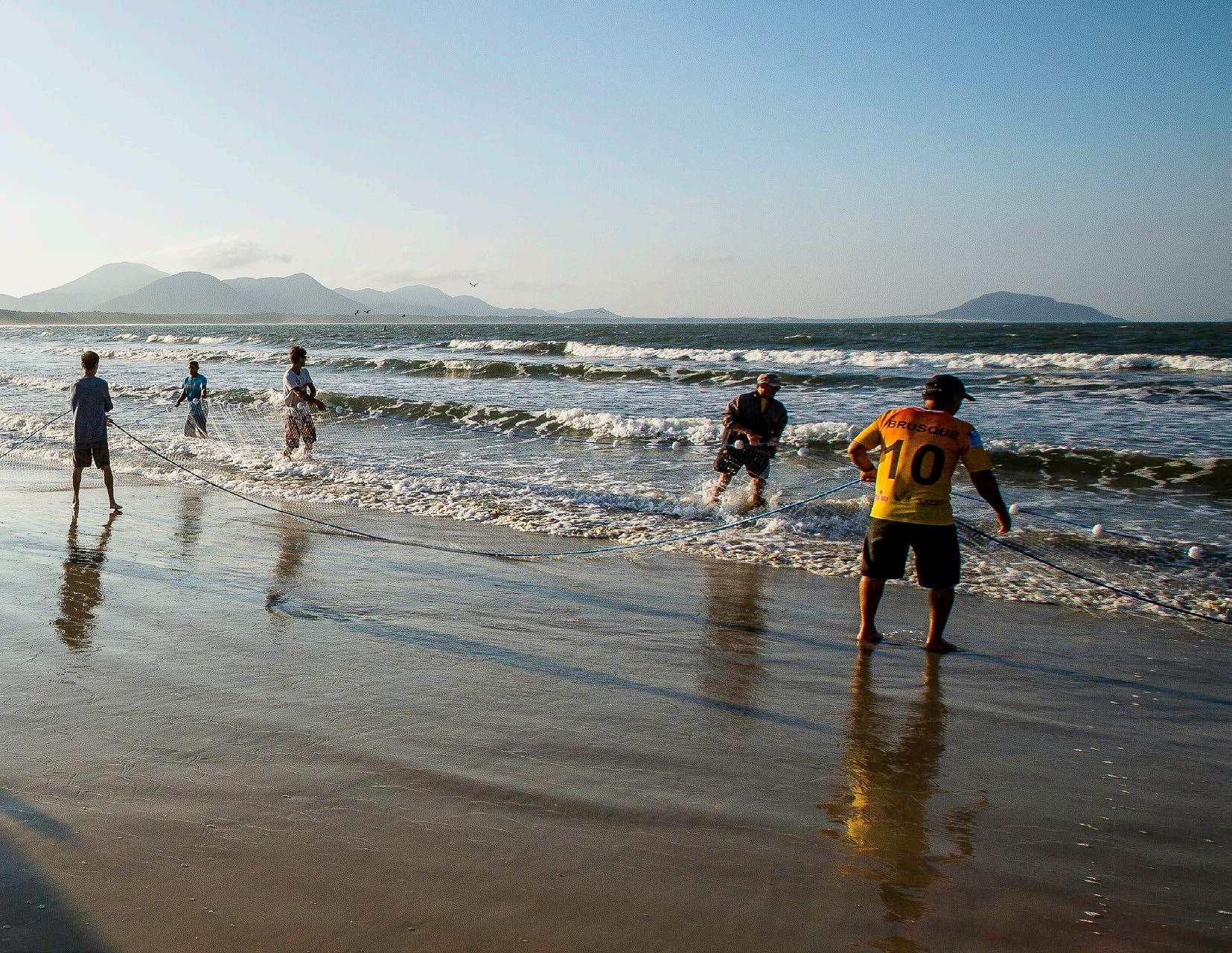
Oceana Around The World
Oceana leads and participates in important events with our supporters around the world. These events range from government hearings to international symposiums on the oceans to media appearances and more. Notable events from July 2024 to June 2025 include:
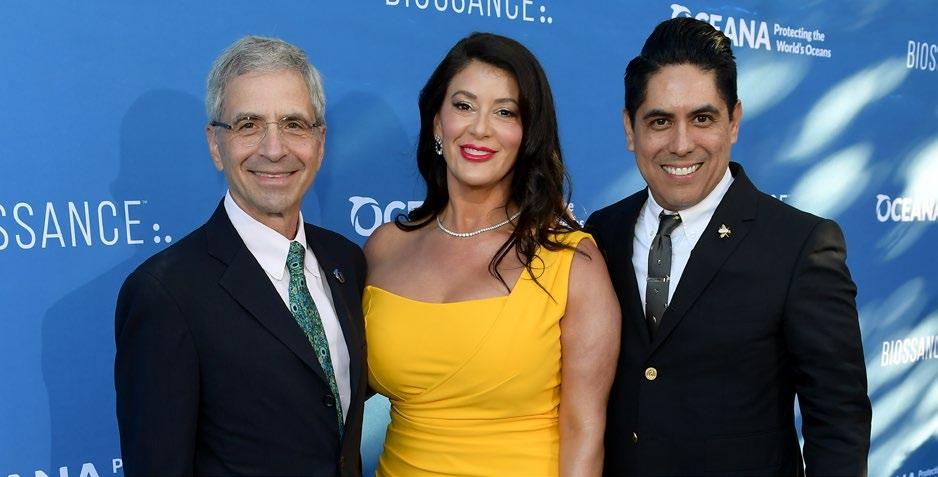
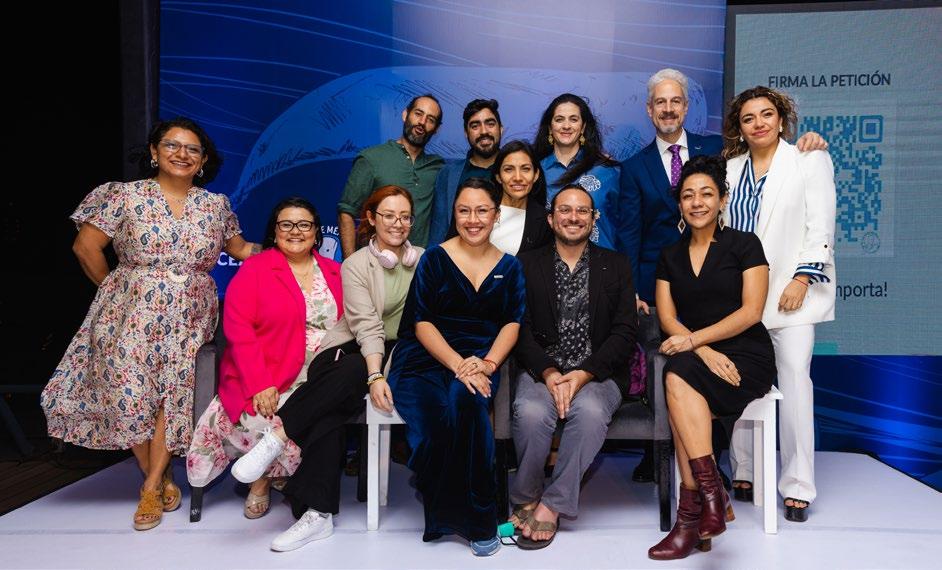
Oceana’s team in Mexico celebrated the launch of Oceana’s new campaign to protect the Gulf of Mexico from offshore drilling. From left to right, bottom: Edith Martinez, Elizabeth Garcia, Alma Ugarte, Claudia Carrillo, Nancy Gocher, Guillermo Perez, Mariana Reyna. Top: Leon Perez, Antar Perez, Renata Terrazas, Esteban García-Peña, María Fernanda Peñaloza.
© Bob Elizarrás
Oceana CEO James Simon, Oceana Board Member and SeaChange Co-Chair Elizabeth Wahler, and fellow SeaChange Co-Chair Gabe Serrato-Buelna walked the blue carpet at Oceana’s 2024 SeaChange Summer Party in Laguna Beach, California.
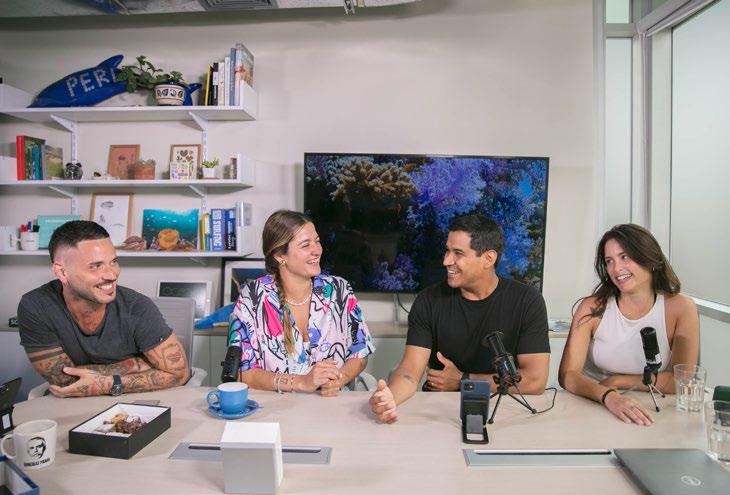
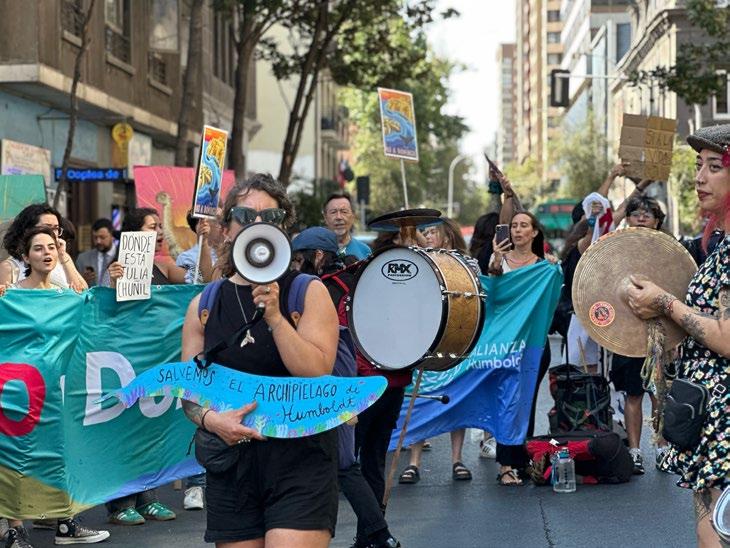
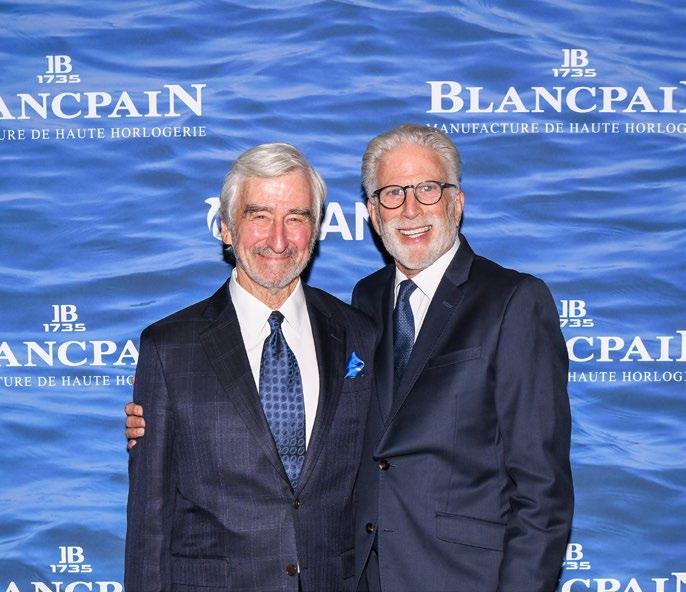
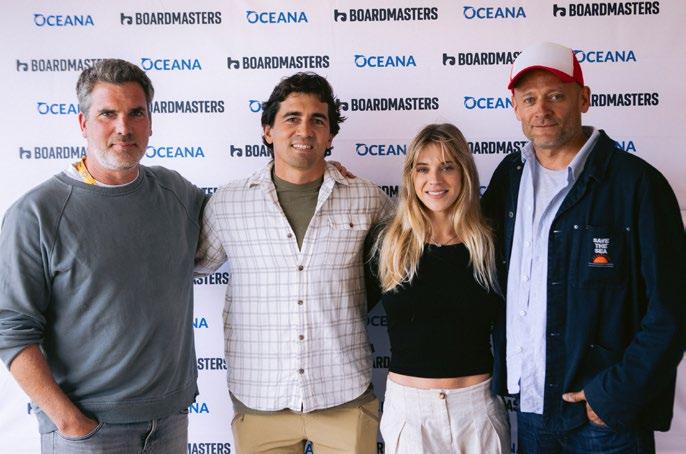
Oceana’s communications team in Peru interviewed food influencer María José Gonzáles Vigil (center left), known as “Majo con Sabor,” for an episode of the “Oceana Interviews” podcast.
© Oceana/Marco Castro
At the music and surf festival Boardmasters in Cornwall, U.K., founded and led by Andrew Topham (left), Oceana hosted a beachside Q&A with big wave surfers Greg Long (center left) and Laura Crane (center right), moderated by Oceana’s leader in the U.K., Hugo Tagholm (right).
© Luke Gartside
Oceana Board Members Sam Waterston and Ted Danson attended “An Evening of Jazz” in New York City. Danson emceed the New York event, which raised more than $1.8 million to support Oceana’s conservation campaigns.
© BFA/Zach Hilty
Oceana participated in a demonstration outside Chile’s Ministry of the Environment while decision-makers voted on whether to again reject the Dominga mining project, which threatens wildlife in the famous Humboldt Archipelago.
© Oceana/Pablo Acuna
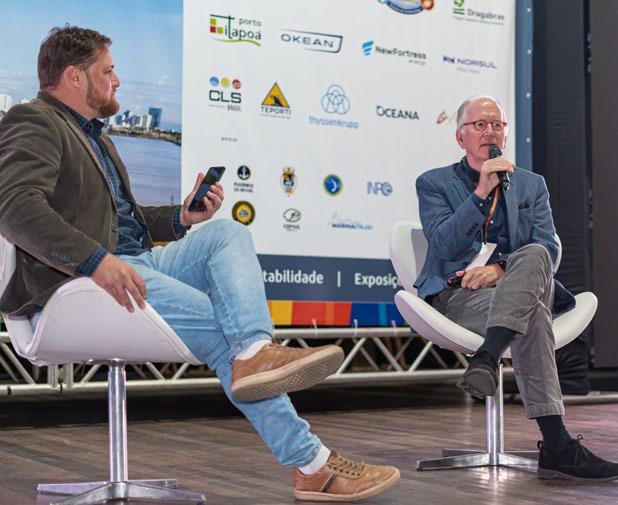
hosted the international symposium “The Perfect Protein: Challenges for Science and Sustainable Management of Sardines and Other Pelagic Fish in the South Atlantic and Pacific” in Brazil,
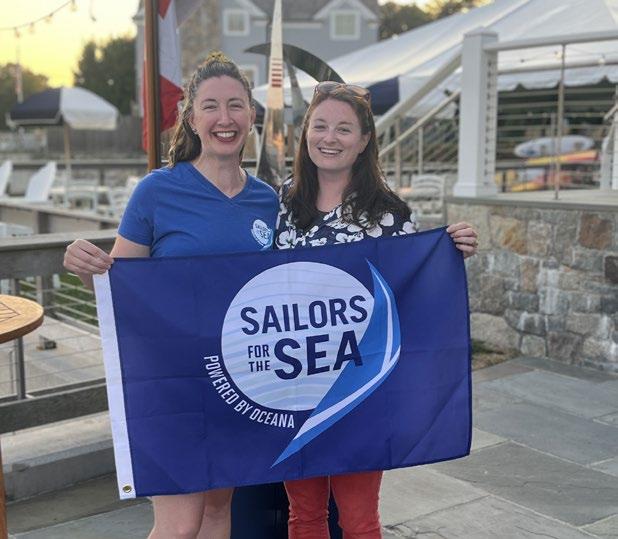
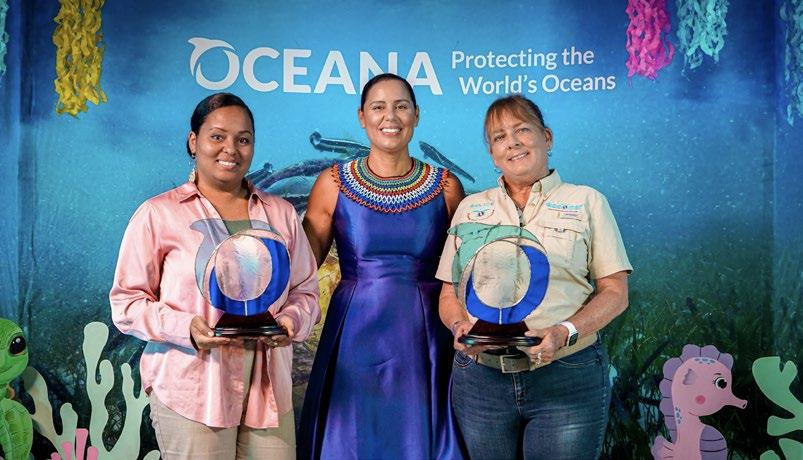
During the annual Ocean Heroes award ceremony in Belize, Oceana recognized two extraordinary women: Khadija ‘Kaj’ Assales, a jeweler who trailblazed lionfish jewelry in Belize; and Linda Searle, a dedicated marine biologist and conservationist.
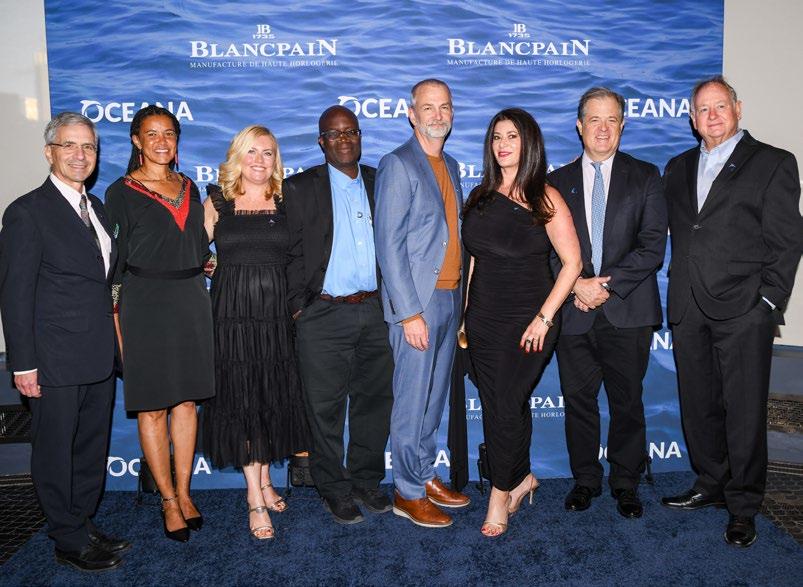
© BFA/Zach Hilty
Oceana CEO James Simon and Oceana Board Members Dr. Christina Chemtai Hicks, Sara Lowell, Dr. Rashid Sumaila, Dr. Kristian Parker, Elizabeth Wahler, Simon Sidamon-Eristoff, and Beto Bedolfe at Oceana’s “An Evening of Jazz” in New York City.
© Oceana/Erick Martinez
© Oceana/Emily Conklin
Sailors for the Sea Program Manager Emily Conklin (left) attended the Sonar World Championships hosted by Noroton Yacht Club in Darien, Connecticut. Volunteer Megan Grapengeter-Rudnick (right) spearheaded sustainability efforts for the event, which achieved Platinum Level Clean Regattas certification.
Oceana
featuring a lecture by former Oceana CEO Andrew Sharpless.
© Bruno Golembiewski
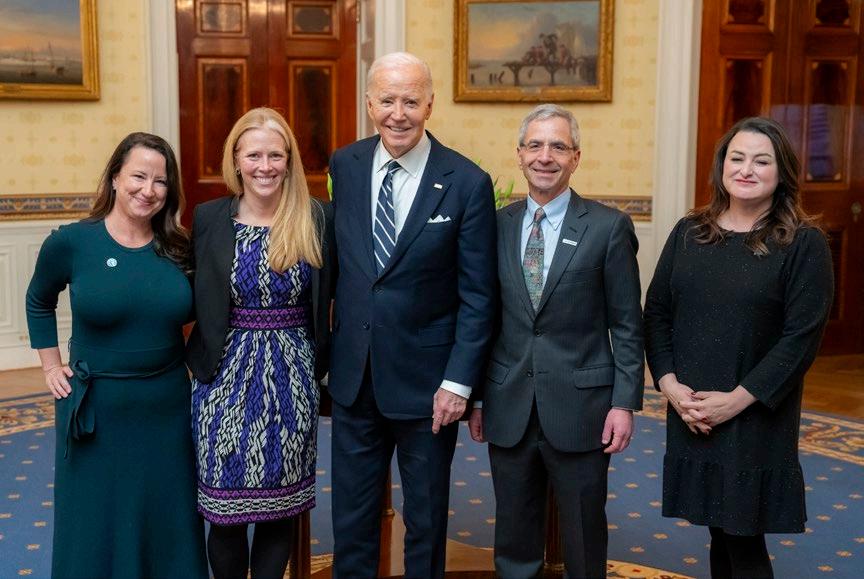
Aquarium Conservation Partnership Executive Director Kim McIntyre, Ocean Defense Initiative Executive Director Sarah Guy, former U.S. President Joe Biden, Oceana CEO James Simon, and Azul Founder Marce Gutiérrez-Graudiņš posed for a photo at the White House in January 2025 to celebrate the administration’s protection of more than 625 million acres of
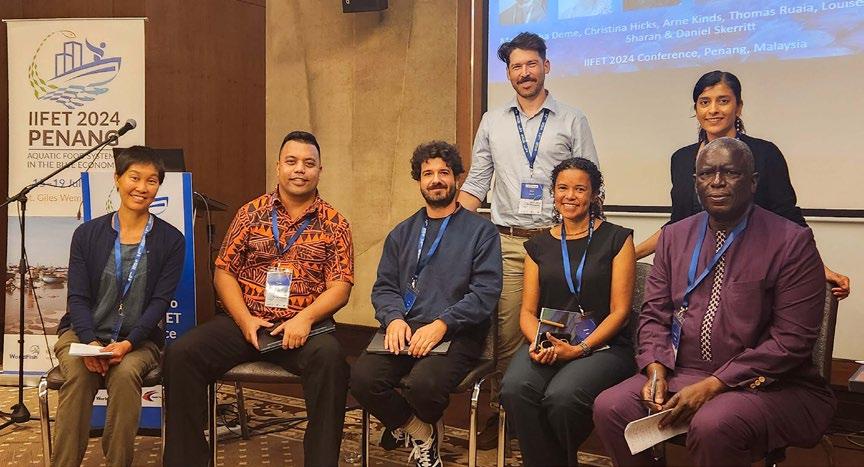
Oceana’s Sonia Sharan and Dr. Daniel Skerrit (standing) hosted a panel session “Striking a Balance: The Multiple Contributions of Fish and Fisheries to National Food Security,” featuring Dr. Louise Teh, Thomas Ruaia, Dr. Arne Kinds, Oceana Board Member Dr. Christina Chemtai Hicks, and Moustapha Deme (seated, left to right) at the International Institute of Fisheries Economics and Trade in Malaysia.

At the 10th anniversary celebration for Oceana in the Philippines, former Oceana Vice President Gloria Estenzo Ramos (second from left) stood with former Agriculture Secretary William Dar, Department of Agriculture spokesperson Noel Reyes, and former Department of the Interior and Local Government Undersecretary Odilon Pasaraba.
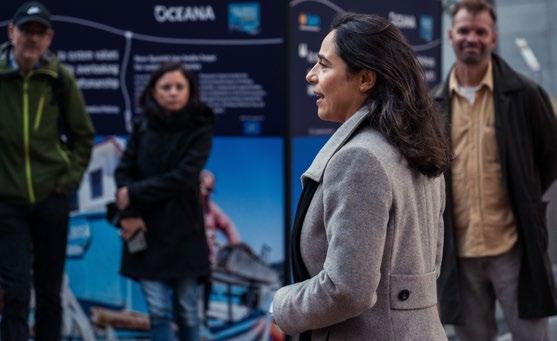
Oceana Deputy Vice President for Europe Vera
gave a speech in front of the European Parliament showcasing the launch of a photo exhibition of low-impact fishers across Europe for Ocean
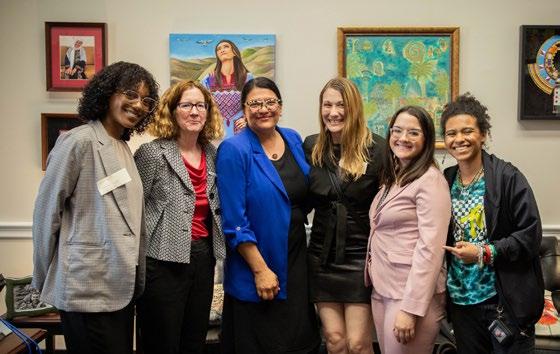
Oceana Campaign Director Christy Leavitt (second from left) met with U.S. Congresswoman Rashida Tlaib (center left) to discuss plastic reduction policies alongside (left to right) Aminah TaariqSidibe (earthday.org), Beth Vild (Big Love Network),
© Jarred Avendano
© Oceana/Sonia Sharan
Coelho
Week.
© Maxime Baldewyns
ocean from the threat of new offshore drilling.
© Official White House Photo
Shayla RobertsLong (Clean for Change KY), and Corrina Burney (Cosmic Poetry Sanctuary).
© Oceana/Addison Bauer

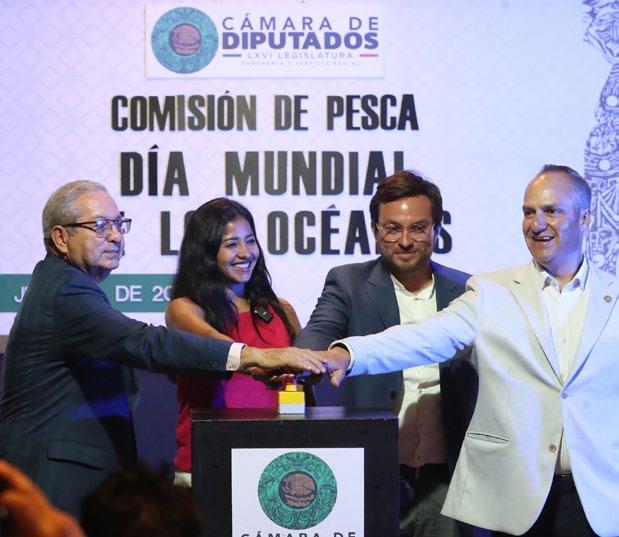
Humberto Coss y León Zúñiga, President of the Marine Commission; Deputy Azucena Trinidad Arreola, President of the Fisheries Commission; Guillermo Pérez Sosa, Oceana Communications Specialist; and Deputy Jesús Martín Cuanalo Araujo, Secretary of the Environment and Natural Resources Commission, participate in the lighting ceremony at Mexico’s Chamber of Deputies.
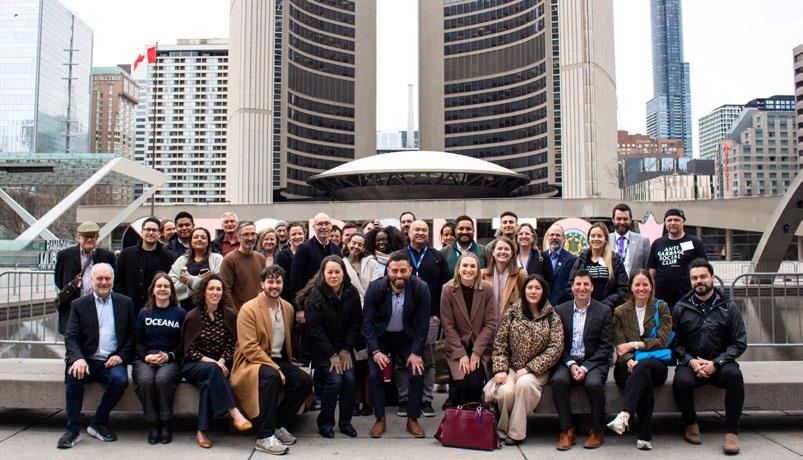
Oceana Canada and the City of Toronto’s FIFA Secretariat co-hosted a workshop to advance reuse and refill systems at Canadian FIFA World Cup 2026 venues, bringing together diverse stakeholders to discuss opportunities to replace single-use packaging with reusable solutions.
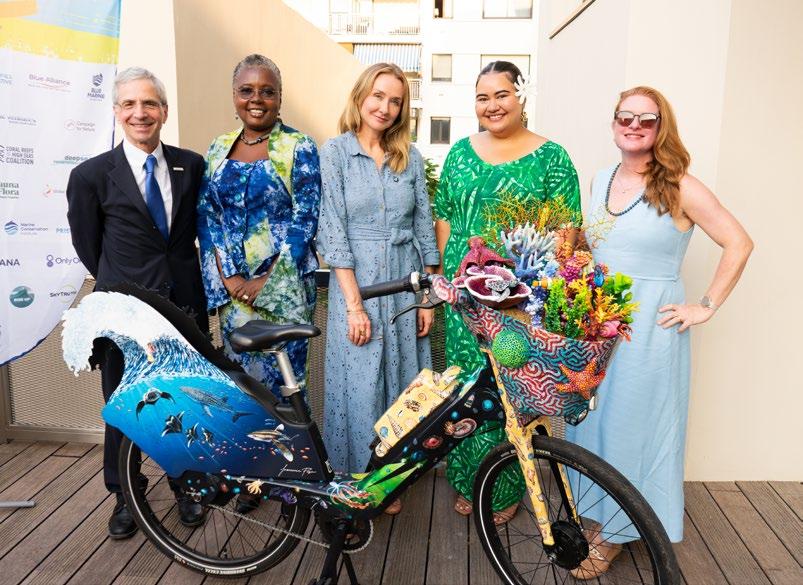
CEO James Simon, Ghana Fisheries and Aquaculture Minister Emelia Arthur, Oceana Senior Advisor Alexandra Cousteau, Together for the Ocean Coalition Ambassador Brianna Fruean, and Senior Member of the Environment team at Bloomberg Philanthropies Melissa Wright at a reception marking progress toward 30x30 at the UN Ocean Conference in Nice, France.
© Oceana/Franz Mahr
Oceana
© Oceana Canada
© Social Communication - Chamber of Deputies
Deputy
Oceana’s Vice President in the United Kingdom Hugo Tagholm (right) interviewed former U.S. Secretary of State John Kerry (left) at the Our Ocean conference in Busan, South Korea.
© Oceana/Franz Mahr

Oceana’s Deputy Vice President in Chile, Tania Rheinen, spoke with the press at the premiere of Oceana’s short documentary, “Under Pisagua Sea,” featuring deep sea diver Sebastian Lira, at the La Moneda Cultural Centre.
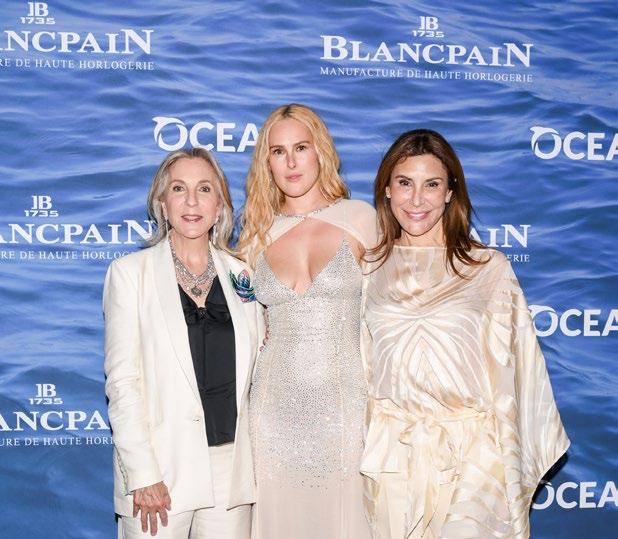
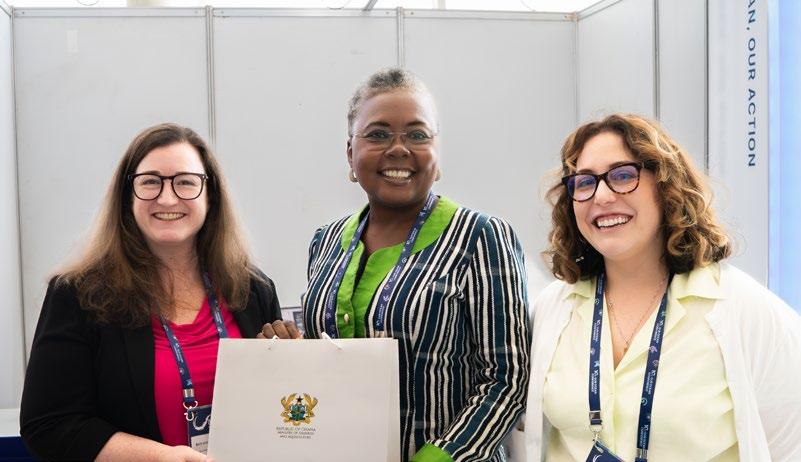
Oceana’s Vice President for the U.S. Beth Lowell, Ghana’s Minister of Fisheries and Aquaculture Emelia Arthur, and the Coalition for Fisheries Transparency Director Maisie Pigeon met at the Our Ocean conference in South Korea.
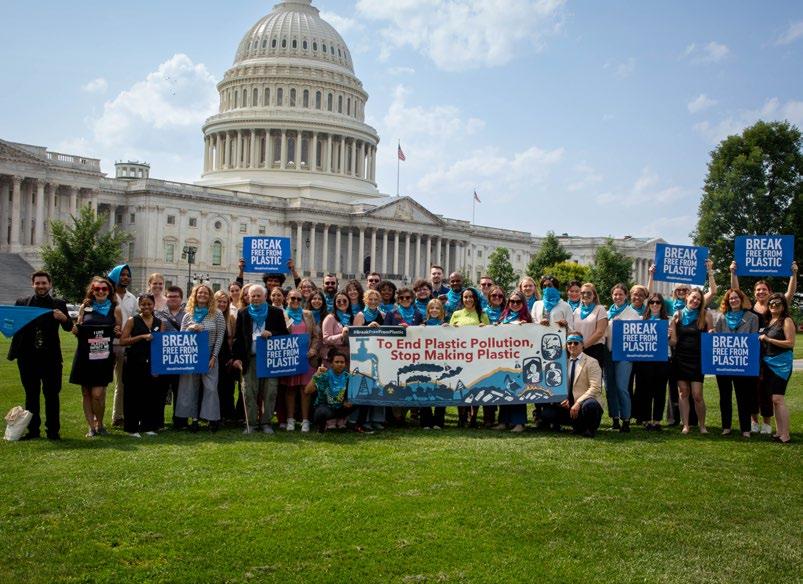
Oceana staff and over 20 allied organizations from around the country including Break Free From Plastic, the 5 Gyres Institute, Waterkeeper Alliance, The Surfrider Foundation, Debris Free Oceans, Valley Improvement Projects, and more came together at the U.S. Capitol calling for congressional action to address the plastic pollution crisis at the source.
© Ladera Sur
© Oceana/Addison Bauer
© BFA/Zach Hilty
Oceana Board Member and event Co-Chair Susan Rockefeller, musical guest Rumer Willis, and actress Jo Champa posed for a photo at Oceana’s 2024 event, “An Evening of Jazz,” in New York City.
© Oceana/Franz Mahr
Strategic Communications
Oceana’s campaigners design media and communications strategies that target key decision-makers, inform the public, and help achieve victories. Oceana and our scientists and policy experts are quoted in top media outlets every year, from The New York Times, to El País, to the Associated Press. Here are some of our press highlights from July 2024 to June 2025:
Area off the coast of Vancouver becomes country’s largest marine protected zone

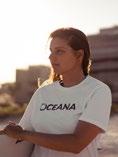
©
Maya Gabeira surfs gigantic waves. She’s helping rid them of plastic too

EU ministers reach compromise on fishing quotas for overfished Mediterranean

Brasil es el país de América Latina que más contamina el océano con residuos plásticos

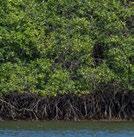
Group cites urgency of coastal greenbelt, mangroves protection

Oceana Belize marks 15 years of marine conservation achievements

The European boats fishing under a veil of secrecy

Cousteau condemns France’s failure to curb bottom trawling

Earth passed a critical climate change threshold in 2024, scientists announce
“The oceans...are bearing the brunt of this crisis, putting marine life and coastal economies at serious risk.”
- Dr. Kathryn Matthews, Chief Scientist and Senior Vice President, Oceana

© Oceana/André Baertschi
ADSZ_photo
Salmon farms in Patagonia face growing opposition

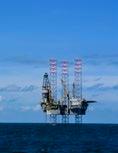
UK’s new North Sea oil and gas licences challenged in court over climate impact

Industrial fishing endangers Peru’s marine protected areas

Daniel Olivares, vice president of Oceana Peru, in defense of marine protected areas

What boaters can do to save whales
Fisherfolk poverty to worsen if big fishers enter municipal waters

Activists sue federal government for images of dead orcas entangled by fishing boats

Proponen blindar el Golfo de México contra la explotación petrolera en aguasprofundas

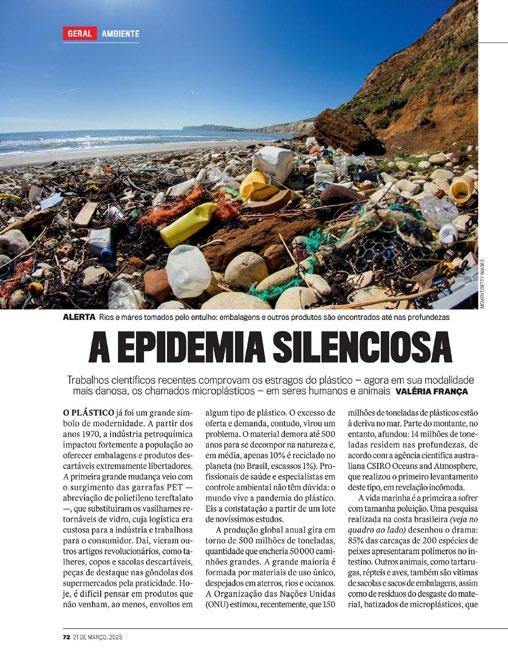
New gear could keep California crab fishermen on the water longer, and whales safe

Coca-Cola just weakened its goal to reduce single-use plastics

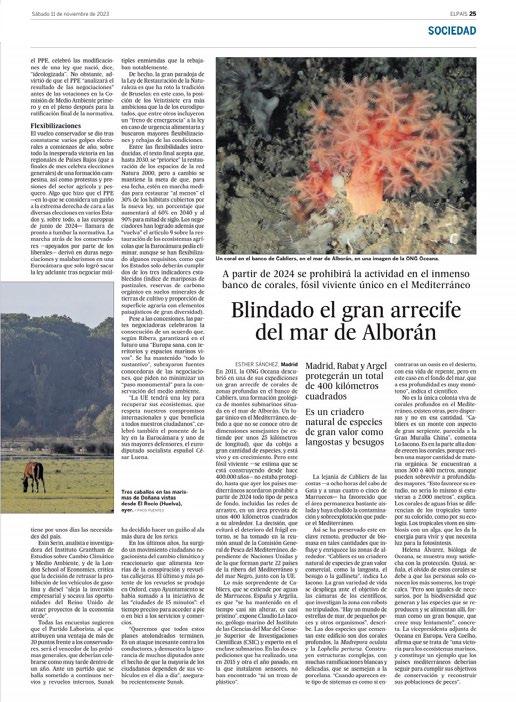
© Oceana/Juan Cuetos
Support Oceana
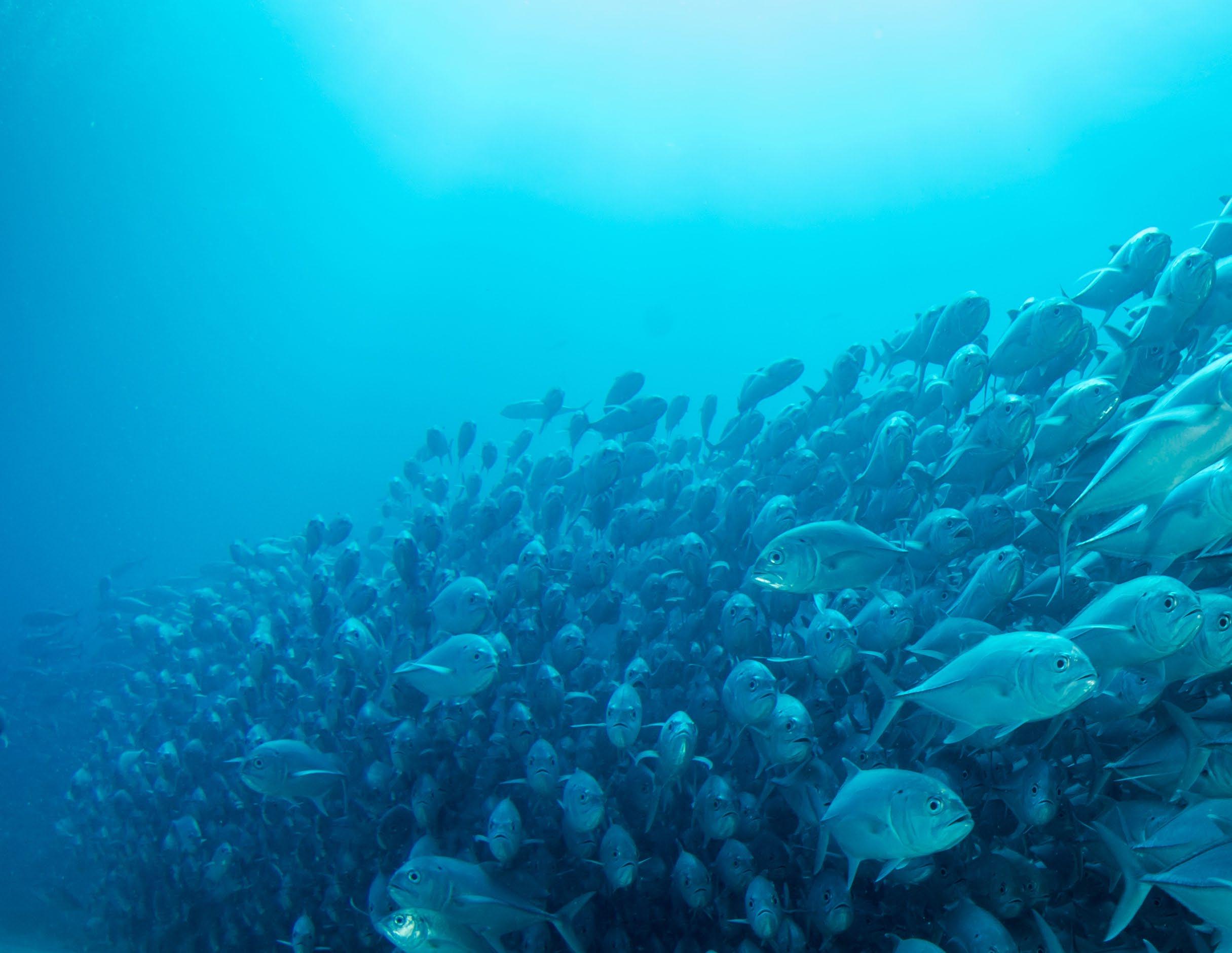
Donate to Oceana
Each of us has the power to help save the oceans and feed the world. Your support allows Oceana to carry out targeted campaigns to protect the climate, end overfishing, safeguard habitats and species, curb ocean pollution, and increase transparency at sea. Oceana wins victories that restore ocean abundance and biodiversity for generations to come. Become part of a growing base of ocean advocates by joining Oceana today.
You can provide financial contributions to Oceana via web, phone, or mail. Credit card donations may be made on a sustaining basis by designating a monthly, quarterly, or annual contribution. Checks may be mailed to our headquarters at the address below. Supporters who give $1,000 or more annually receive a variety of benefits, including Oceana Magazine, invitations to special events, and updates throughout the year. Visit us at Oceana.org/donate.
Oceana, Inc.
1025 Connecticut Ave. NW, Suite 200 Washington, DC 20036 USA
Planned Gifts and Bequests
Choose to leave a gift to Oceana through your will or living trust. You may also designate Oceana as the beneficiary of your life insurance policy or retirement plans.
Contact Oceana at plannedgiving@oceana.org or +1.202.833.3900 to learn more about ways to give and become a LegaSea Circle member.
Donor Advised Fund
Use a Donor Advised Fund to make a one-time or recurring gift, or to make Oceana the beneficiary of your fund for a future gift.
Charitable IRA Rollovers
The charitable IRA rollover — or qualified charitable distribution (QCD) — is a simple and financially smart way to support Oceana. If you are 70½ or older, you can donate directly from your IRA to Oceana, and your gift may offer tax advantages. If you are 73 or over, your gift can count toward your required minimum distribution (RMD) for the year, potentially lowering your taxable income. And it’s a tax-free gift to Oceana.
Gift of Appreciated Securities
Stocks and mutual funds held for more than one year may qualify for charitable tax deduction at their full market value when donated directly to Oceana. Save by paying no capital gains taxes and pass those savings on to Oceana. Please consult your legal and/or tax advisor for specific advice.
Adopt an Animal
Many of the world’s most iconic creatures rely on healthy oceans for their habitat and food. Show your support for ocean conservation with an animal plush, t-shirt, or other item from our online store at gift.oceana.org.
Make Every Day Earth Day
Oceana is a member of EarthShare, a federation representing the nation’s most respected environmental and conservation charities in hundreds of workplace giving campaigns. To find out how you and your workplace can support Oceana through an EarthShare campaign, email wavemaker@oceana.org.
Take Action
Become a Wavemaker and join supporters from around the world who have signed up with Oceana to protect our oceans. Being a Wavemaker means you will advocate for safer fishing gear to protect whales from entanglements and stopping ocean plastic pollution at the source to prevent harm to marine life. With you by our side, we can fight these and other important threats. Every day, more irreplaceable ocean habitats are threatened by destructive fishing and pollution. Take action to help protect our oceans by visiting oceana.org/ take-action.
Follow Oceana
Follow Oceana on social media for breaking news from around the world and insights into our research and campaigns.
@Oceana

@Oceana
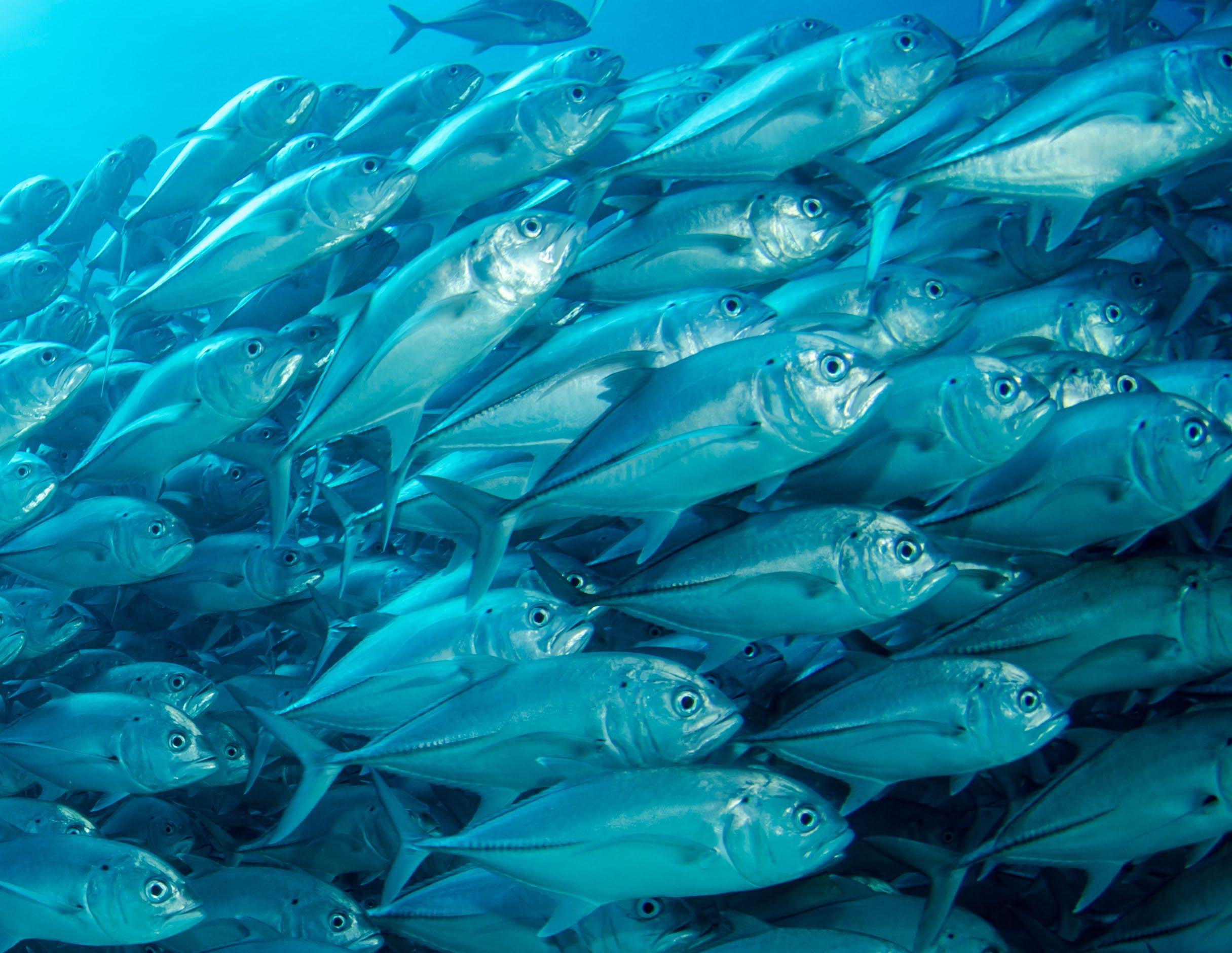
@Oceana
The Tide
Through Oceana’s monthly giving program, The Tide, ocean advocates help Oceana shape the future of the oceans with their sustained support. To join, visit Oceana.org/thetide.

@Oceana
Instagram Followers: 2.9 Million
Facebook Followers: 1 Million X (Formerly Twitter) Followers: 483,000
Other Social Media Followers: 3 Million Wavemakers: 1.5 Million
Total Supporters Worldwide: 9 Million
F inancial Summary
Oceana’s support comes from foundations, organizations, and individuals in more than 150 countries. Oceana benefits not only from cash contributions, but also from generous in-kind contributions of goods and services. Oceana’s contributors provide the support that is essential to our campaigns to preserve and rebuild ocean life. In 2024, Oceana received cash and commitments from our generous donors totaling $40 million, of which approximately $18 million was time- or programrestricted support and approximately $22 million was unrestricted.
Expenses totaled $48 million in 2024, of which $31 million was paid from restricted funds, and $17 million was paid from unrestricted funds. Of every dollar of expenses, approximately 73 cents were spent directly on Oceana’s programs. The remainder was spent on general and administrative costs (about 15 cents) and raising funds (about 12 cents).
Including cash received and commitments for additional contributions in future years, Oceana ended 2024 with $54 million in net assets available for use in 2025 and beyond.
Financial data was derived from audited financial statements, copies of which are available upon request, and are posted on the websites for the following Oceana entities: Oceana, Inc.; Oceana Canada; Fundación Oceana; Friends of Oceana; Oceana Belize; Oceana Brasil; Oceana in Chile; Oceana Mexico; Oceana Peru; Oceana Philippines; and Oceana U.K. Donations to the various Oceana entities may be tax deductible.
2024 Expenses
$48,862,484
Oceana Consolidated
Net Assets as of 12.31.24
Unrestricted
Temporarily restricted for 2022
Temporarily restricted for 2023
Temporarily restricted for 2024
Temporarily restricted for 2025
Temporarily restricted for 2026
Temporarily restricted for 2027
Temporarily restricted for 2028
Temporarily restricted for 2029
Revenue and Support
Grants and Contributions
Special Events
Investment Income
In-Kind Revenue
Loan Forgiveness
Employee Retention Tax Credit
Miscellaneous
Foreign Currency Transaction (Gains) Losses
Net Assets Released from Restrictions: Satisfaction of Time Restrictions
Satisfaction of Program Restrictions
Total Revenue and Support Expenses Program Services
United States Oceans
Marine Science
Oceana Action, Inc.
Total Program Services
Supporting Services
General and Administrative
Fundraising - Cost of Direct Benefit to Donors
Fundraising - Other
Total Supporting Services
Total Expenses
Change in Net Assets
Net Assets (Beginning of Year) Net Assets (End of Year)
$34,858,001 3,961,829 924,599 632,09315,128 (136,323)40,255,326 10,618,031 17,558,632 3,286,874 1,196,741 2,762,825 17,000 35,440,103 7,438,314 413,344 5,570,723 13,422,381 48,862,484 (8,607,158) $63,008,791 $54,401,633 $17,806,732 2,957,943 924,599 632,09315,128 (136,323) 5,056,383 26,111,404 53,367,959 10,618,031 17,558,632 3,286,874 1,196,741 2,762,825 17,000 35,440,103 7,438,314 413,344 5,570,723 13,422,381 48,862,484 4,505,475 $33,013,752 $37,519,226
Leadership
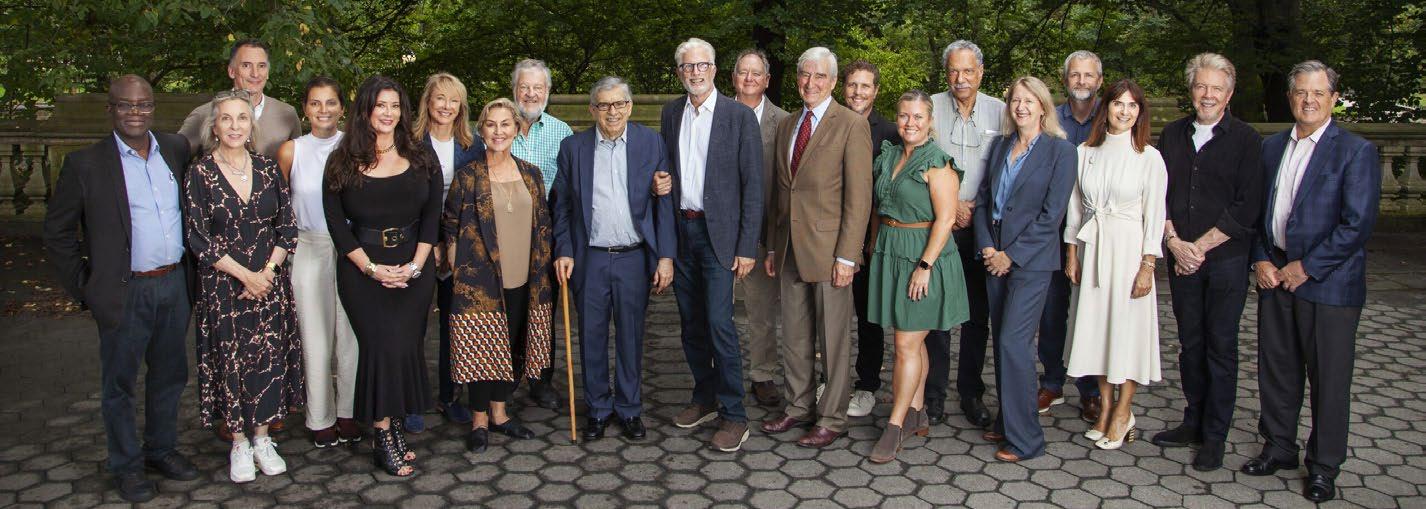
Board of Directors
Diana Thomson, Chair
As the Chair of Oceana’s Board of Directors, Thomson brings a wealth of experience as the Chair of The Nikita Foundation, a Toronto-based charity she co-founded in 2012. The Nikita Foundation supports charitable initiatives in the areas of health, education, and environmental protection.
María Eugenia Girón, Vice Chair
Girón is Vice Chair of Oceana’s Board of Directors and co-founder of the Women Corporate Directors Chapter in Spain, as well as a jury member at the European Innovation Council for Horizon Europe and the “Green Deal,” and an ESG expert at ECODA (Institute of Directors in Europe). She has also served as Chair of the Board of Fundación Diversidad and a member of the Board of IC-A. Girón is an associate professor for entrepreneurship at IE Business School and INCAE and an angel investor. Previously, she served as CEO of Carrera y Carrera jewelry company and VP at Loewe. Girón holds an industrial engineering degree from ICAI and an MBA from Harvard Business School. She received the ICAI Javier Benjumea award in 2024.
Sara Lowell, Treasurer
Lowell is a long-time ocean philanthropist and board member of the Marisla Foundation. She is also the Foundation’s Marine Conservation Program Director and oversees efforts to create marine protected areas, advance sustainable fisheries, and protect coastal lands in California, Hawaii, Baja California, Chile, and the broader Pacific.
James Sandler, Secretary
Sandler was a member of Oceana’s founding Board of Directors and is in charge of the Sandler Foundation’s environmental giving.
© Oceana/Melissa Forsyth
Oceana’s Board of Directors in New York City. September 2022.
Keith Addis, President
Addis is the co-founder of Industry Entertainment, a talent management and film/ television production company in Los Angeles, and more recently co-founded Constellation Media Group in Beverly Hills. Addis has served on the Oceana Board since 2001 in various positions including Vice Chair and Chairman and now serves as Board President. Addis is married to producer Keri Selig and is a graduate of Columbia University.
Gaz Alazraki
Alazraki is the director of HBO Max’s Father of the Bride (2022), writer and director of Mexico’s record-breaking comedy Nosotros los Nobles (2013), and the co-creator, executive producer, and director of Club de Cuervos (2015) — Netflix’s first original series in Spanish. He heads Alazraki Entertainment, a Mexico City-based production company focused on high-quality entertainment for general audiences in Latin America and Hispanic USA.
Herbert M. Bedolfe, III
Bedolfe, the Executive Director of the Marisla Foundation, was one of Oceana’s founders and was Chair of the Board from 2002 — 2008. During that time, Oceana’s victories included the protection of over 1.8 million square kilometers (700,000 square miles) of ocean habitat from destructive trawling, the commitment of a large cruise line to stop dumping inadequately treated sewage and wastewater into the ocean, and a decision by the European Union to shut down illegal driftnetters.
Ted Danson
To most, Danson is known for TV and movie acting roles, but for those in the conservation movement, he is much more famous for his work as a passionate ocean advocate and Oceana spokesperson. Danson helped create the American Oceans Campaign in 1987, which eventually became Oceana in 2001. In the last two decades, Danson’s stellar acting career has been complemented by his staunch ocean advocacy. He has appeared in public service announcements, appealed to donors, and testified before the government on the condition of our oceans.
Nicholas Davis
Davis currently serves as the President of EuroAmerica, a Chilean insurance and financial services group. Davis is the founder of Fundación Punta de Lobos, a non-profit organization aiming to protect and preserve the Chilean coastline and its ecosystems. This organization seeks to educate, create awareness, and become a national example by implementing scalable models of conservation, focused on coastline public access, marine protected areas, and zoning tools and regulations.
Patrice Etlin
Etlin joined Advent International in 1997 and started the firm’s investment activities in Brazil. As one of Advent’s global Managing Partners and member of the Executive Committee, he helps oversee the firm’s strategic direction and investment activities, with a particular focus on Latin America. Etlin has 29 years of private equity experience and has led, co-led, or participated in over 30 investments in the region. He received an undergraduate degree in electronic
engineering from the University of São Paulo, a master’s in industrial engineering from École Centrale de Paris, and an MBA from INSEAD.
Maya Gabeira
Gabeira is a retired Brazilian big wave surfer, best known for setting the 2020 World Record for the biggest wave at 73.3 feet ever surfed by a woman, and the biggest wave surfed by anyone — male or female — that year. As an ESPY award winner and 7x Big Wave Award champion, Gabeira is one of the most influential female surfers of all time. She is also passionately committed to, and a fierce advocate for, restoring the world’s oceans.
César Gaviria
Gaviria served as the President of Colombia from 1990 to 1994 and facilitated the country’s entrance into the international economy. Colombia’s Constitution of 1991 strengthened democracy and defended human rights and justice. Gaviria served as Secretary General of the Organization of American States from 1994 to 2004. Since 2009, he has served as a founding member of the Global Commission on Drug Policy. Gaviria has served as director of the Colombian Liberal Party since 2017, playing a pivotal role in the pursuit of peace and defending democracy.
Loic Gouzer
Joining Oceana’s Board of Directors in 2013, Gouzer — most recently Chairman for the Post-War & Contemporary Art Department at Christie’s Auction House — uses his position in the art world to raise money and draw attention to ocean conservation. He is also an avid freediver.
Christina Chemtai Hicks, Ph.D.
Hicks is a Professor at Lancaster University, U.K., and an interdisciplinary social scientist and marine conservationist. Hicks works on fisheries governance and conservation, food justice and nutrition, and the politics of finance and investment in fisheries and food systems. Hicks is a Pew Fellow in Marine Conservation, an ISI Highly Cited Researcher, and has won several awards for her work, including the Phillip Leverhulme Prize in Geography and the Royal Geographical Society’s Gill Memorial award.
Jena King
King founded the Jena and Michael King Foundation with her late husband in 1999. The foundation has supported the efforts of 78 environmental and humanitarian nonprofits.
As an advocate for the environment and human health, King is also a founding member of C.O.A.C.H. for Kids, an organization that provides medical assistance to underserved children.
Daniel Pauly, Ph.D.
Pauly is a world-renowned fisheries scientist and co-recipient of the 2023 Tyler Prize for Environmental Achievement. He currently serves as the Principal Investigator of the Sea Around Us initiative at the University of British Columbia’s Institute for the Oceans and Fisheries. His global, multi-year analyses of fisheries catches and marine ecosystems have allowed him to reach startling and important conclusions — most critical among them that fish populations are declining rapidly all over the world.
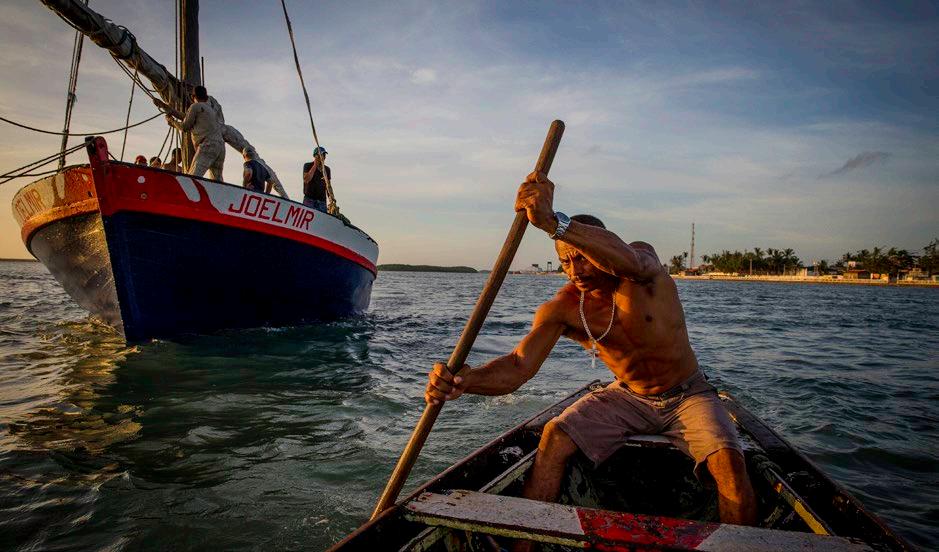
David Rockefeller, Jr.
David Rockefeller, Jr. is a lifelong sailor and conservationist and was a founder of Sailors for the Sea, now a component of Oceana. He served on the Pew Oceans Commission and was previously the Citizen Chair of the National Park Foundation. He and his wife Susan are active in overseeing an organic and biodynamic farm in upstate New York, and they like to use the phrase “Healthy Seas, Healthy Soils” to describe their collaborative work.
Susan Rockefeller
Susan Rockefeller is a documentary filmmaker and principal of Louverture Films. She is founder of Musings, a digital magazine which highlights ideas and inspiration for a better world. Susan is a member of the Academy of Motion Picture Arts and Sciences, Council on Foreign Relations, and a painter of landscapes and mindscapes. She lives with her husband David Rockefeller in New York.
Lex Sant
Lex Sant is president of The Summit Foundation in Washington, D.C. He is a trustee emeritus of The Trust for Public Land. He has previously been a trustee at The Chesapeake Bay Foundation, and served as chair of Island Press and Maret School.
Simon Sidamon-Eristoff
Sidamon-Eristoff leads the tax-exempt organizations group at Kalbian Hagerty LLP in Washington, D.C. He has deep experience working with national and international nonprofit organizations as a board member, as a staff member, and as outside counsel. He has chaired the boards of the Chesapeake Bay Foundation, Oceana, and American Friends of Georgia. He has served as General Counsel for American Farmland Trust and as a staff attorney for the Trust for Public Land and the Rails-to-Trails Conservancy.
© Oceana/Bento Viana
Rashid Sumaila, Ph.D.
Sumaila is a professor and Director of the Fisheries Economics Research Unit and the OceanCanada Partnership at the University of British Columbia, as well as the co-recipient of the 2023 Tyler Prize for Environmental Achievement. He specializes in bioeconomics, marine ecosystem valuation, and the analysis of global issues such as fisheries subsidies, illegal fishing, climate change, and oil spills.
Elizabeth Wahler
Wahler is a long-time ocean advocate and philanthropist. Growing up on the California Coast, and having a father who pioneered carbon capture, she has a deep love and interest in protecting our oceans. Her business career is technology-centric, specializing in working on the tools of tomorrow and creating strategic solutions to simplify complex problems. She serves as an advisor to tech start-ups, is an angel investor, and is proficient in fundraising. She currently serves as event chair for Oceana’s highly successful SeaChange Summer Party.
Sam Waterston
Waterston brings to the organization a wealth of talent and resources in support of Oceana’s programming and mission. As an actor, his trophy case includes television awards such as the Emmy, Golden Globe, and Screen Actors Guild and theater awards like the OBIE and Drama Desk. Other accolades include an Academy Award nomination for his role as journalist Sydney Schanberg in 1984’s The Killing Fields and six Emmy Award nominations for his roles in I’ll Fly Away and Law & Order. Waterston grew up in New England, where he saw the effects of fisheries collapses on the life of seaside towns.
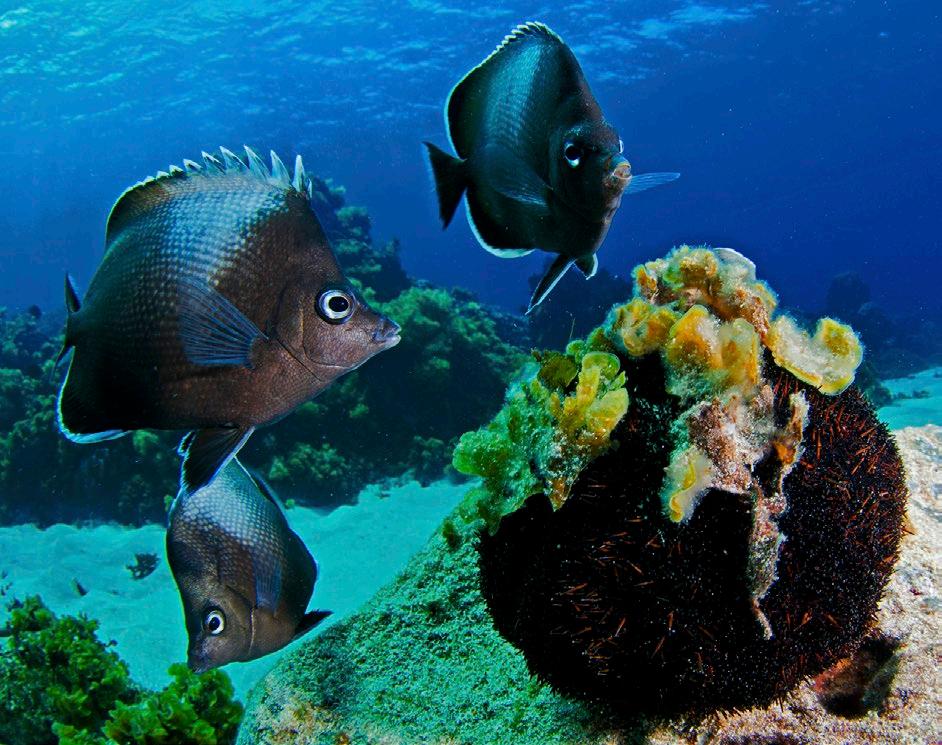
Jean Weiss
Weiss is a philanthropist with a business background in training and development. She worked for The American Funds, a member of The Capital Groups Companies. Weiss’s connection to Oceana began the day the BP Deepwater Horizon oil rig blew up and destroyed the marine life, fishing industries, and way of life in her hometown on the Louisiana Gulf Coast.
Antha Williams
Williams leads the Environment program at Bloomberg Philanthropies. Under Williams’ direction, Bloomberg Philanthropies supports environmental initiatives to improve sustainability and air quality in cities around the world, to advance clean energy, to protect the ocean, and to help mobilize the private sector to accelerate the global transition.
© Oceana/Eduardo Sorensen
E xecutive Committee
James F. Simon
Chief Executive Officer
Kathryn Matthews, Ph.D.
Chief Scientist and Senior Vice President
Liesbeth van der Meer, DVM Senior Vice President
Daniel Olivares Senior Vice President
Joshua Laughren Senior Vice President
Matthew Littlejohn Senior Vice President, Strategic Initiatives
Christopher Sharkey Chief Financial Officer
Janelle Chanona Vice President, Belize
Dustin Cranor Vice President, Global Marketing and Communications
Nancy Golden Vice President, Global Development
Beth Lowell Vice President, United States
Pascale Moehrle
Executive Director and Vice President, Europe (Retired 2025)
Gloria Estenzo Ramos, J.D. Vice President, Philippines (Retired 2025)
Hugo Tagholm
Executive Director and Vice President, United Kingdom
Renata Terrazas Vice President, Mexico
Ademilson Zamboni, Ph.D. Vice President, Brazil
Susan Murray Deputy Vice President, U.S. Pacific
Vera Coelho Deputy Vice President, Europe
Kathy A. Whelpley Chief of Staff
Michael Hirshfield, Ph.D. Senior Advisor
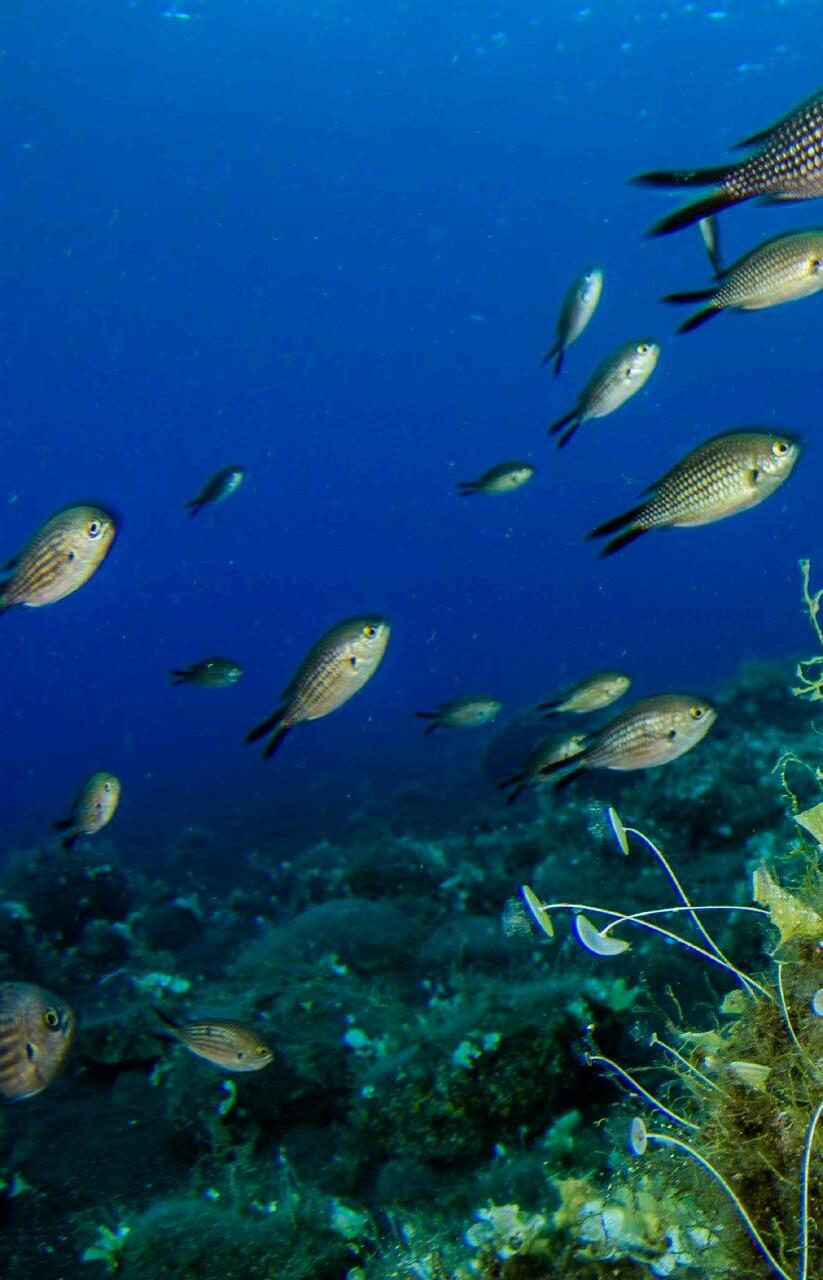
© Oceana/Juan Cuetos
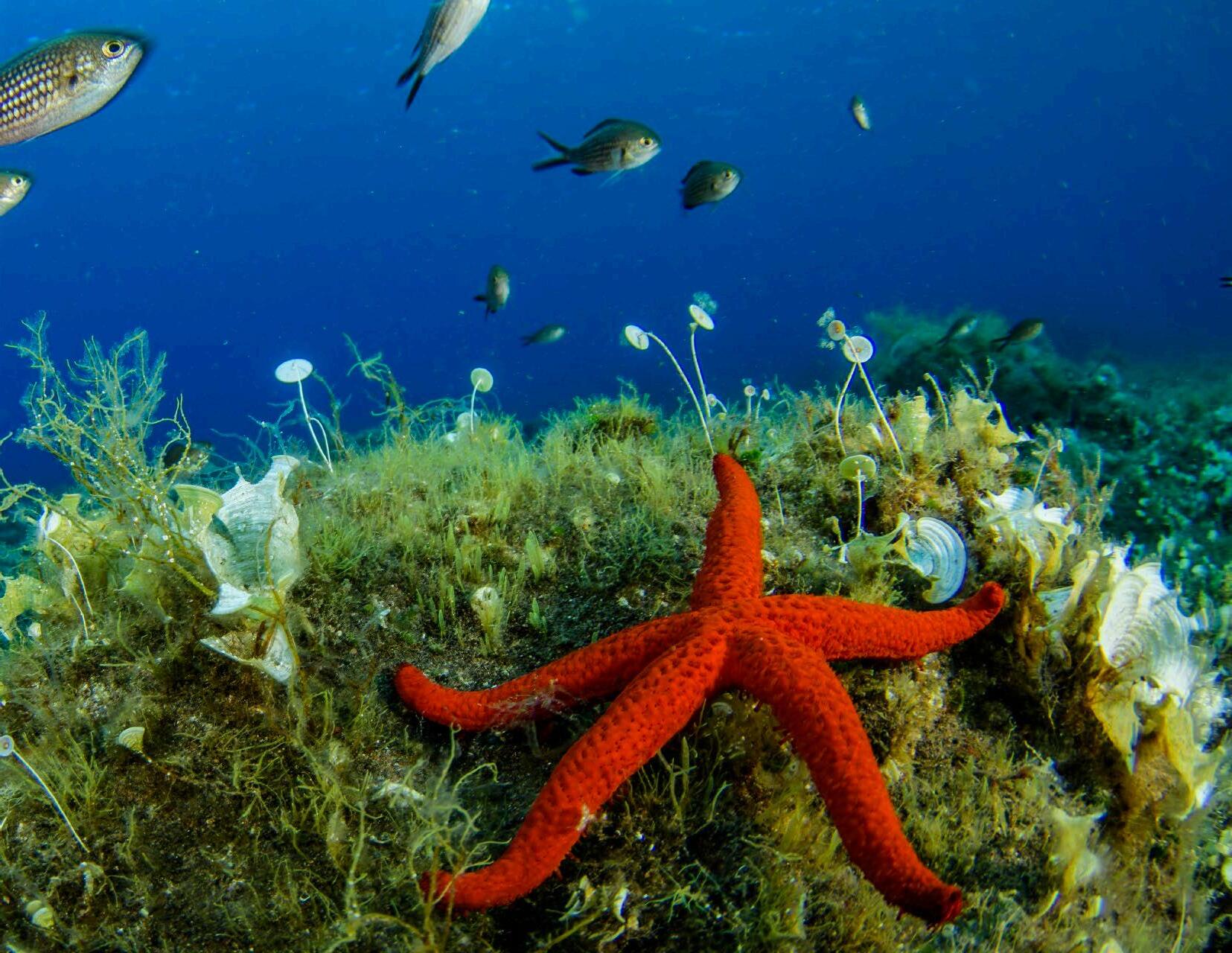
+1.202.833.3900 toll-free: +1.877.7.OCEANA

Oceana is the largest international advocacy organization dedicated solely to ocean conservation. Oceana is rebuilding abundant and biodiverse oceans by winning science-based policies in countries that control one-quarter of the world’s wild fish catch. With more than 325 victories that stop overfishing, habitat destruction, oil and plastic pollution, and the killing of threatened species like turtles, whales, and sharks, Oceana’s campaigns are delivering results. A restored ocean means that 1 billion people can enjoy a healthy seafood meal every day, forever. Together, we can save the oceans and help feed the world. Visit Oceana.org to learn more.
Editor Sarah Holcomb
Designer Addison Bauer
Asia: Manila Central America: Belmopan Europe: Brussels | Copenhagen | Cornwall | Geneva | London | Madrid North
